
Donald Trump
Donald John Trump is an American politician, media personality, and businessman who served as the 45th president of the United States from 2017 to 2021.
Donald Trump becomes the first sitting US President to visit the Democratic People's Republic of Korea (North Korea).

Donald John Trump is an American politician, media personality, and businessman who served as the 45th president of the United States from 2017 to 2021.

The 2019 Koreas–United States DMZ Summit was a one-day summit held at the Korean Demilitarized Zone between North Korean chairman Kim Jong-un, U.S. president Donald Trump, and South Korean president Moon Jae-in, following the 2019 G20 Osaka summit. Trump briefly stepped over the border at 3:45 PM (GMT+9) on June 30, marking the first time a sitting U.S. president had set foot on North Korean soil. It was also the second time since the end of the Korean War in 1953 that a North Korean leader entered the South's territory, following the April 2018 inter-Korean summit. Senior White House advisors Ivanka Trump and Jared Kushner also attended the summit, with Ivanka Trump and U.S. envoy to South Korea Harry B. Harris Jr. holding a meeting with Kim later broadcast on North Korean TV.

North Korea, officially the Democratic People's Republic of Korea (DPRK), is a country in East Asia. It constitutes the northern half of the Korean Peninsula and shares borders with China and Russia to the north, at the Yalu (Amnok) and Tumen rivers, and South Korea to the south at the Korean Demilitarized Zone. North Korea's border with South Korea is a disputed border as both countries claim the entirety of the Korean Peninsula. The country's western border is formed by the Yellow Sea, while its eastern border is defined by the Sea of Japan. North Korea, like its southern counterpart, claims to be the legitimate government of the entire peninsula and adjacent islands. Pyongyang is the capital and largest city.
An Indonesian Air Force military transport aircraft crashed near a residential neighborhood in Medan, killing 139 people.
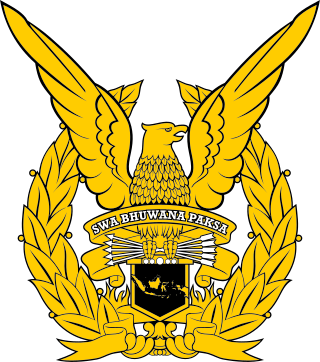
The Indonesian Air Force sometimes shortened as IDAF / IdAF, is the aerial branch of the Indonesian National Armed Forces. The Indonesian Air Force is headquartered in Jakarta, Indonesia and is headed by the Chief of Staff of the Air Force. Its order of battle is split into three Air Operations Commands. Most of its airbases are located on the island of Java. The Indonesian Air Force also has its ground force unit, called Air Force Quick Reaction Force Command (Kopasgat). The corps is also known as the "Orange Berets" due to the distinctive color of their service headgear.

On 30 June 2015, a Lockheed C-130B Hercules operated to the Indonesian Air Force with 12 crew and 110 passengers on board, crashed near a residential neighbourhood shortly after taking off from Medan, Indonesia, en route to Tanjung Pinang. All 122 people onboard were killed, along with 17 people on the ground.

Medan is the capital and largest city of the Indonesian province of North Sumatra, as well as a regional hub and financial centre of Sumatra. According to the National Development Planning Agency, Medan is one of the four main central cities of Indonesia, alongside Jakarta, Surabaya, and Makassar. As of the 2020 Census, Medan has a population of 2,435,252 within its city limits, and over 3.4 million in its built-up urban area, making it the fourth largest urban area in Indonesia. The Medan metropolitan area—which includes neighbouring Binjai, Deli Serdang Regency, and a part of Karo Regency—is the largest metropolitan area outside of Java, with 4,744,323 residents counted in the 2020 Census. Medan is a multicultural metropolis and a busy trading city bordered by the Strait of Malacca, making it one of the major economic cities in Indonesia. A gateway to the western part of Indonesia, Medan is supported by the Port of Belawan and Kualanamu International Airport, both of which are connected to the city centre via toll roads and railways.
A Hercules C-130 military aircraft with 113 people on board crashes in a residential area in Medan, Indonesia, resulting in at least 116 deaths.
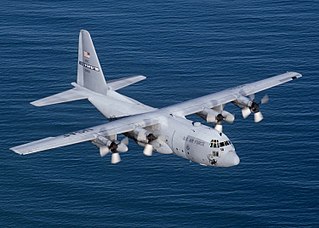
The Lockheed C-130 Hercules is an American four-engine turboprop military transport aircraft designed and built by Lockheed. Capable of using unprepared runways for takeoffs and landings, the C-130 was originally designed as a troop, medevac, and cargo transport aircraft. The versatile airframe has found uses in other roles, including as a gunship (AC-130), for airborne assault, search and rescue, scientific research support, weather reconnaissance, aerial refueling, maritime patrol, and aerial firefighting. It is now the main tactical airlifter for many military forces worldwide. More than 40 variants of the Hercules, including civilian versions marketed as the Lockheed L-100, operate in more than 60 nations.

On 30 June 2015, a Lockheed C-130B Hercules operated to the Indonesian Air Force with 12 crew and 110 passengers on board, crashed near a residential neighbourhood shortly after taking off from Medan, Indonesia, en route to Tanjung Pinang. All 122 people onboard were killed, along with 17 people on the ground.

Medan is the capital and largest city of the Indonesian province of North Sumatra, as well as a regional hub and financial centre of Sumatra. According to the National Development Planning Agency, Medan is one of the four main central cities of Indonesia, alongside Jakarta, Surabaya, and Makassar. As of the 2020 Census, Medan has a population of 2,435,252 within its city limits, and over 3.4 million in its built-up urban area, making it the fourth largest urban area in Indonesia. The Medan metropolitan area—which includes neighbouring Binjai, Deli Serdang Regency, and a part of Karo Regency—is the largest metropolitan area outside of Java, with 4,744,323 residents counted in the 2020 Census. Medan is a multicultural metropolis and a busy trading city bordered by the Strait of Malacca, making it one of the major economic cities in Indonesia. A gateway to the western part of Indonesia, Medan is supported by the Port of Belawan and Kualanamu International Airport, both of which are connected to the city centre via toll roads and railways.
Nineteen firefighters die controlling a wildfire near Yarnell, Arizona.

The Yarnell Hill Fire was a wildfire near Yarnell, Arizona, ignited by dry lightning on June 28, 2013. On June 30, it overran and killed 19 members of the Granite Mountain Hotshots. Just one of the hotshots on the crew survived—he was posted as a lookout on the fire and was not with the others when the fire overtook them. The Yarnell Hill Fire was one of the deadliest U.S. wildfires since the 1991 Oakland Hills fire, which killed 25 people, and the deadliest wildland fire for U.S. firefighters since the 1933 Griffith Park fire, which killed 29 "impromptu" civilian firefighters drafted on short notice to help battle that Los Angeles area fire.

Yarnell is a census-designated place (CDP) in Yavapai County, Arizona, United States. The population of Yarnell was 649 at the 2010 census. Yarnell's economy is based on ranching, mining and services to travelers and retirees. Peeples Valley, three miles north, is closely linked to Yarnell.
Protests begin around Egypt against President Mohamed Morsi and the ruling Freedom and Justice Party, leading to their overthrow during the 2013 Egyptian coup d'état.

The 30 June protests occurred in Egypt on 30 June 2013, marking the one-year anniversary of Mohamed Morsi's inauguration as president. The events ended with the 2013 Egyptian coup d'état after mass protests across Egypt demanding the immediate resignation of the president. The rallies were partly a response to Tamarod, an ostensibly grassroots movement that launched a petition in April 2013, calling for Morsi and his government to step down. Tamarod claimed to have collected more than 22 million signatures for their petition by June 30, although this figure was not verified by independent sources. A counter-campaign in support of Morsi's presidency, named Tagarod, claimed to have collected 26 million signatures by the same date, but this figure was also unverified and not mentioned in media nearly as much as Tamarod's, with no reliable sources repeating it. The movements in opposition to Morsi culminated in the June 30 protests that occurred across the country. According to the Egyptian military, which calculated the number of protesters via helicopter scans of demonstration perimeters across the country, the June 30 protests had 32 million protesters, making them "the biggest protests in Egypt's history." However, independent observers raised concerns that the Egyptian government exaggerated the actual number of anti-Morsi protestors, with some research determining that only around one to two million people protested across the country against Morsi.

Mohamed Mohamed Morsi Eissa al-Ayyat was an Egyptian politician, engineer and professor who served as the fifth president of Egypt, from 30 June 2012 to 3 July 2013, when General Abdel Fattah el-Sisi removed him from office in a coup d'état after protests in June. An Islamist affiliated with the Muslim Brotherhood organisation, Morsi led the Freedom and Justice Party from 2011 to 2012.

The Freedom and Justice Party is an Egyptian Islamist political party. The ex-president of the party, Mohamed Morsi, won the 2012 presidential election, and in the 2011 parliamentary election it won more seats than any other party. It is nominally independent, but has strong links to the Muslim Brotherhood of Egypt, the largest political group in Egypt. The party was banned and dissolved in 2014; however, it continues to function underground.
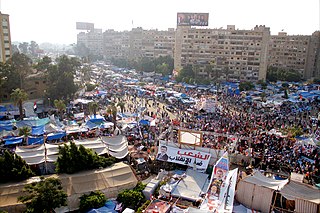
The 2013 Egyptian coup d'etat took place on 3 July 2013. Egyptian army chief General Abdel Fattah al-Sisi led a coalition to remove the democratically elected President of Egypt, Mohamed Morsi, from power and suspended the Egyptian constitution of 2012. The move came after the military's ultimatum for the government to "resolve its differences" with protesters during widespread national protests. The military arrested Morsi and Muslim Brotherhood leaders, and declared Chief Justice of the Supreme Constitutional Court Adly Mansour as the interim president of Egypt. The announcement was followed by demonstrations and clashes between supporters and opponents of the move throughout Egypt.
Yemenia Flight 626 crashed into the Indian Ocean near the Comoros, killing 152 people, with French schoolgirl Bahia Bakari the sole survivor.

Yemenia Flight 626 was an Airbus A310-324 twin-engine jet airliner operated by Yemenia that was flying a scheduled international service, from Sana'a in Yemen to Moroni in Comoros, when it crashed on 30 June 2009 at around 1:50 am local time while on approach to Prince Said Ibrahim International Airport, killing all but one of the 153 passengers and crew on board. The sole survivor, 12-year-old girl Bahia Bakari, was found clinging to wreckage after floating in the ocean for thirteen hours. Bakari was discharged from the hospital on 23 July 2009.

Bahia Bakari is a French woman who was the sole survivor of Yemenia Flight 626, an Airbus A310, which crashed into the Indian Ocean near the north coast of Grande Comore, Comoros on 30 June 2009, killing the 152 other people on board. 12-year-old Bakari, who had little swimming experience and had no life vest, clung to a piece of aircraft wreckage, floating in heavy seas for over nine hours, much of it in pitch darkness, before being rescued. Her mother, who had been traveling with her from Paris, France, for a summer vacation in Comoros, died in the crash.
This list includes sole survivors of aviation accidents and incidents that involved 10 or more onboard. Within this list, "sole survivor" refers to a person who survived an air accident in which all other aircraft occupants died as a direct consequence of the accident. This list does not include initial survivors who later died due to injuries sustained during the accident.
Yemenia Flight 626, an Airbus A310-300, crashes into the Indian Ocean near Comoros, killing 152 of the 153 people on board. A 14-year-old girl named Bahia Bakari survives the crash.

Yemenia Flight 626 was an Airbus A310-324 twin-engine jet airliner operated by Yemenia that was flying a scheduled international service, from Sana'a in Yemen to Moroni in Comoros, when it crashed on 30 June 2009 at around 1:50 am local time while on approach to Prince Said Ibrahim International Airport, killing all but one of the 153 passengers and crew on board. The sole survivor, 12-year-old girl Bahia Bakari, was found clinging to wreckage after floating in the ocean for thirteen hours. Bakari was discharged from the hospital on 23 July 2009.

The Airbus A310 is a wide-body aircraft, designed and manufactured by Airbus Industrie, then a consortium of European aerospace manufacturers. Airbus had identified a demand for an aircraft smaller than the A300, the first twin-jet wide-body. On 7 July 1978, the A310 was launched with orders from Swissair and Lufthansa. On 3 April 1982, the first prototype conducted its maiden flight, and the A310 received its type certification on 11 March 1983.
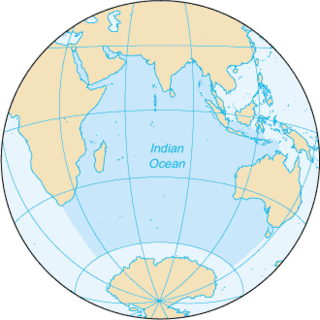
The Indian Ocean is the third-largest of the world's five oceanic divisions, covering 70,560,000 km2 (27,240,000 sq mi) or ~19.8% of the water on Earth's surface. It is bounded by Asia to the north, Africa to the west and Australia to the east. To the south it is bounded by the Southern Ocean or Antarctica, depending on the definition in use. Along its core, the Indian Ocean has some large marginal or regional seas such as the Arabian Sea, Laccadive Sea, Bay of Bengal, and Andaman Sea.
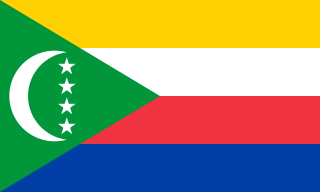
The Comoros, officially the Union of the Comoros, is an independent country made up of three islands in southeastern Africa, located at the northern end of the Mozambique Channel in the Indian Ocean. Its capital and largest city is Moroni. The religion of the majority of the population, and the official state religion, is Sunni Islam. As a member of the Arab League, it is the only country in the Arab world which is entirely in the Southern Hemisphere. Comoros proclaimed their independence on July 6, 1975. It is also a member state of the African Union, the Organisation internationale de la Francophonie, the Organisation of Islamic Cooperation, and the Indian Ocean Commission. The country has three official languages: Chi Comori, French and Arabic.

Bahia Bakari is a French woman who was the sole survivor of Yemenia Flight 626, an Airbus A310, which crashed into the Indian Ocean near the north coast of Grande Comore, Comoros on 30 June 2009, killing the 152 other people on board. 12-year-old Bakari, who had little swimming experience and had no life vest, clung to a piece of aircraft wreckage, floating in heavy seas for over nine hours, much of it in pitch darkness, before being rescued. Her mother, who had been traveling with her from Paris, France, for a summer vacation in Comoros, died in the crash.
A Jeep Cherokee filled with propane canisters drives into the entrance of Glasgow Airport, Scotland in a failed terrorist attack. This was linked to the 2007 London car bombs that had taken place the day before.

The Jeep Cherokee is a line of SUVs manufactured and marketed by Jeep over five generations. Originally marketed as a variant of the Jeep Wagoneer, the Cherokee has evolved from a full-size SUV to one of the first compact SUVs and into its current generation as a crossover SUV. Named after the Cherokee tribe of North American Indians, Jeep has used the nameplate in some capacity since 1974.

Glasgow Airport, also known as Glasgow International Airport, formerly Abbotsinch Airport, is an international airport in Scotland. It is located in Paisley, Renfrewshire, 8.6 nautical miles west of Glasgow city centre. In 2019, the airport handled 8.84 million passengers, an 8.4% annual decrease, making it the second-busiest in Scotland, after Edinburgh Airport, and the ninth-busiest airport in the United Kingdom.

Scotland is a country that is part of the United Kingdom. Covering the northern third of the island of Great Britain, mainland Scotland has a 96-mile (154-kilometre) border with England to the southeast and is otherwise surrounded by the Atlantic Ocean to the north and west, the North Sea to the northeast and east, and the Irish Sea to the south. It also contains more than 790 islands, principally in the archipelagos of the Hebrides and the Northern Isles. Most of the population, including the capital Edinburgh, is concentrated in the Central Belt—the plain between the Scottish Highlands and the Southern Uplands—in the Scottish Lowlands.

The Glasgow Airport attack was a terrorist ramming attack which occurred on 30 June 2007, at 15:11 BST, when a dark green Jeep Cherokee loaded with propane canisters was driven at the glass doors of the Glasgow Airport terminal and set ablaze. The car's driver was severely burnt in the ensuing fire, and five members of the public were injured, none seriously. Some injuries were sustained by those assisting the police in detaining the occupants. A close link was quickly established to the 2007 London car bombs the previous day.

On 29 June 2007, in London, two car bombs were discovered and disabled before they could be detonated. The first device was left near the Tiger Tiger nightclub in Haymarket at around 01:30, and the second was left in Cockspur Street, located in close proximity to the nightclub.
MTV Canada is rebranded as Razer

MTV2 is a Canadian pay television channel focused on lifestyle and general entertainment programming aimed at youth and teen audiences. The channel is owned by Bell Media, with the MTV2 name and branding used under an agreement with the Paramount Networks Americas division of Paramount Global.
The United Kingdom transfers sovereignty over Hong Kong to China.

Sovereignty of Hong Kong was transferred from the United Kingdom to the People's Republic of China (PRC) at midnight on 1 July 1997. This event ended 156 years of British rule in the former colony. Hong Kong was established as a special administrative region of China (SAR) for 50 years, maintaining its own economic and governing systems from those of mainland China during this time, although influence from the central government in Beijing increased after the passing of the Hong Kong national security law in 2020.
During a test flight of an Airbus A330-300 at Toulouse–Blagnac Airport, the aircraft crashes killing all seven people on board.

The Airbus A330 is a wide-body aircraft developed and produced by Airbus. Airbus conceived several derivatives of the A300, its first airliner in the mid-1970s. Then the company began development on the A330 twinjet in parallel with the A340 quadjet and launched both designs with their first orders in June 1987. The A330-300, the first variant, took its maiden flight in November 1992 and entered service with Air Inter in January 1994. The slightly shorter A330-200 variant followed in 1998.
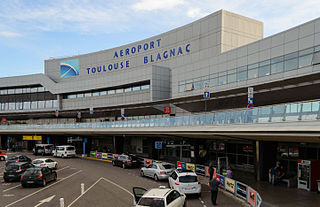
Toulouse–Blagnac Airport is an international airport located 3.6 nautical miles west northwest of Toulouse, partially in Blagnac, both communes of the Haute-Garonne department in the Occitanie region of France. In 2017, the airport served 9,264,611 passengers. As of April 2017, the airport features flights to 74 destinations, mostly in Europe and Northern Africa with a few additional seasonal long-haul connections.

Airbus Industrie Flight 129 was an Airbus Industrie A330-321 test flight that ended in a crash on 30 June 1994 at Toulouse-Blagnac Airport, killing all seven people aboard. The last test flown was to certify the plane's takeoff capability with a single engine failure. It was the first fatal accident involving an Airbus A330 as well as the first hull loss of the type. It remained the only fatal accident involving an A330 until the crash of Air France Flight 447 on 1 June 2009.
East Germany and West Germany merge their economies.
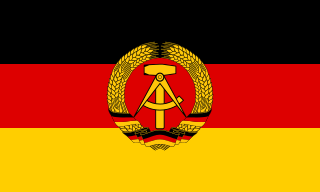
East Germany, officially the German Democratic Republic, was a country that existed from its creation on 7 October 1949 until its dissolution on 3 October 1990. In these years the state was a part of the Eastern Bloc in the Cold War. Commonly described as a communist state, it described itself as a socialist "workers' and peasants' state". Its territory was administered and occupied by Soviet forces following the end of World War II—the Soviet occupation zone of the Potsdam Agreement, bounded on the east by the Oder–Neisse line. The Soviet zone surrounded West Berlin but did not include it and West Berlin remained outside the jurisdiction of the GDR. Most scholars and academics describe the GDR as a totalitarian dictatorship.

West Germany is the common English name for the Federal Republic of Germany between its formation on 23 May 1949 and the German reunification through the accession of East Germany on 3 October 1990. During the Cold War, the western portion of Germany and the associated territory of West Berlin were parts of the Western Bloc. West Germany was formed as a political entity during the Allied occupation of Germany after World War II, established from eleven states formed in the three Allied zones of occupation/Trizone held by the United States, the United Kingdom, and France. The FRG's provisional capital was the city of Bonn, and the Cold War era country is retrospectively designated as the Bonn Republic.
A coup d'état in Sudan deposes the democratically elected government of Prime Minister Sadiq al-Mahdi and President Ahmed al-Mirghani.
The 1989 Sudanese coup d'état was a military coup that occurred in Sudan on 30 June 1989 against the democratically elected government of Prime Minister Sadiq al-Mahdi and President Ahmed al-Mirghani. The coup was led by military officer Omar al-Bashir who took power in its aftermath and would go on to rule the country for the next 30 years until he was overthrown in 2019.

Sadiq al-Mahdi, also known as Sadiq as-Siddiq, was a Sudanese political and religious figure who was Prime Minister of Sudan from 1966 to 1967 and again from 1986 to 1989. He was head of the National Umma Party and Imam of the Ansar, a Sufi order that pledges allegiance to Muhammad Ahmad (1844–1885), who claimed to be the Mahdi, the messianic saviour of Islam.
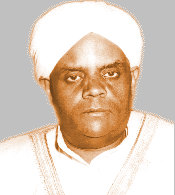
Ahmad Ali Al-Mirghani was the 6th President of Sudan from May 6, 1986, to June 30, 1989, when the democratically elected government was overthrown by a military coup led by Omar al-Bashir.
The U.S. Supreme Court rules in Bowers v. Hardwick that states can outlaw homosexual acts between consenting adults.

The Supreme Court of the United States (SCOTUS) is the highest court in the federal judiciary of the United States. It has ultimate appellate jurisdiction over all U.S. federal court cases, and over state court cases that involve a point of federal law. It also has original jurisdiction over a narrow range of cases, specifically "all Cases affecting Ambassadors, other public Ministers and Consuls, and those in which a State shall be Party." The court holds the power of judicial review, the ability to invalidate a statute for violating a provision of the Constitution. It is also able to strike down presidential directives for violating either the Constitution or statutory law. However, it may act only within the context of a case in an area of law over which it has jurisdiction. The court may decide cases having political overtones, but has ruled that it does not have power to decide non-justiciable political questions.
Bowers v. Hardwick, 478 U.S. 186 (1986), was a landmark decision of the U.S. Supreme Court that upheld, in a 5–4 ruling, the constitutionality of a Georgia sodomy law criminalizing oral and anal sex in private between consenting adults, in this case with respect to homosexual sodomy, though the law did not differentiate between homosexual sodomy and heterosexual sodomy. The case was overturned in 2003 in Lawrence v. Texas, though the statute had already been struck down by the Georgia Supreme Court in 1998. Bowers is today considered to be among the worst rulings ever penned by the Supreme Court, particularly for its perceived poor legal reasoning and vitriolic rhetoric against the LGBT community. Encyclopædia Britannica states "that scholarly commentary on the decision [has] overwhelmingly regarded the dissenters in Bowers as having made the better legal arguments." Several justices, including Lewis F. Powell, later expressed regrets joining the majority but stated that they considered the decision of little importance at the time.

Homosexuality is romantic attraction, sexual attraction, or sexual behavior between members of the same sex or gender. As a sexual orientation, homosexuality is "an enduring pattern of emotional, romantic, and/or sexual attractions" to people of the same sex. It "also refers to a person's sense of identity based on those attractions, related behaviors, and membership in a community of others who share those attractions."
Ryan White, a poster child for HIV/AIDS in the U.S., was denied re-admission to his school, having developed the disease due to treatment for hemophilia.
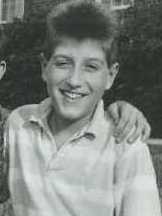
Ryan Wayne White was an American teenager from Kokomo, Indiana, who became a national poster child for HIV/AIDS in the United States after his school barred him from attending classes following a diagnosis of AIDS. As a hemophiliac, he became infected with HIV from a contaminated factor VIII blood treatment and, when diagnosed in December 1984, was given six months to live. Doctors said he posed no risk to other students, as AIDS is not an airborne disease and spreads solely through bodily fluids, but AIDS was poorly understood by the general public at the time. When White tried to return to school, many parents and teachers in Howard County rallied against his attendance due to unwarranted concerns of the disease spreading to other students and staff. A lengthy administrative appeal process ensued, and news of the conflict turned Ryan into a popular celebrity and advocate for AIDS research and public education. Surprising his doctors, Ryan White lived five years longer than predicted. He died on April 8, 1990, one month before his high school graduation.

A poster child is, according to the original meaning of the term, a child afflicted by some disease or deformity whose picture is used on posters or other media as part of a campaign to raise money or enlist volunteers for a cause or organization. Such campaigns may be part of an annual effort or event, and may include the name and age of a specific child along with other personally identifiable attributes.

The AIDS epidemic, caused by HIV, found its way to the United States between the 1970s and 1980s, but was first noticed after doctors discovered clusters of Kaposi's sarcoma and pneumocystis pneumonia in homosexual men in Los Angeles, New York City, and San Francisco in 1981. Treatment of HIV/AIDS is primarily via the use of multiple antiretroviral drugs, and education programs to help people avoid infection.
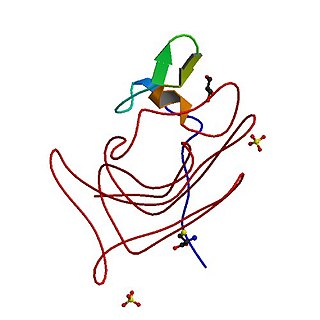
Haemophilia, or hemophilia, is a mostly inherited genetic disorder that impairs the body's ability to make blood clots, a process needed to stop bleeding. This results in people bleeding for a longer time after an injury, easy bruising, and an increased risk of bleeding inside joints or the brain. Those with a mild case of the disease may have symptoms only after an accident or during surgery. Bleeding into a joint can result in permanent damage while bleeding in the brain can result in long term headaches, seizures, or a decreased level of consciousness.
Thirty-nine American hostages from the hijacked TWA Flight 847 are freed in Beirut after being held for 17 days.

Trans World Airlines Flight 847 was a flight from Cairo to San Diego with en route stops in Athens, Rome, Boston, and Los Angeles. On the morning of June 14, 1985, Flight 847 was hijacked shortly after take off from Athens. The hijackers demanded the release of 700 Shia Muslims from Israeli custody and took the plane repeatedly to Beirut and Algiers. Later Western analysis considered them members of the Hezbollah group, an allegation Hezbollah rejects.

Beirut is the capital and largest city of Lebanon. As of 2014, Greater Beirut has a population of 2.5 million, which makes it the third-largest city in the Levant region. The city is situated on a peninsula at the midpoint of Lebanon's Mediterranean coast. Beirut has been inhabited for more than 5,000 years, and was one of Phoenicia's most prominent city states, making it one of the oldest cities in the world. The first historical mention of Beirut is found in the Amarna letters from the New Kingdom of Egypt, which date to the 14th century BC.
The Southeast Asia Treaty Organization disbands.

The Southeast Asia Treaty Organization (SEATO) was an international organization for collective defense in Southeast Asia created by the Southeast Asia Collective Defense Treaty, or Manila Pact, signed in September 1954 in Manila, the Philippines. The formal institution of SEATO was established on 19 February 1955 at a meeting of treaty partners in Bangkok, Thailand. The organization's headquarters was also in Bangkok. Eight members joined the organization.
Municipal workers in Baltimore, Maryland, went on strike seeking higher wages and better conditions.

Baltimore is the most populous city in the U.S. state of Maryland, fourth most populous city in the Mid-Atlantic, and the 30th most populous city in the United States with a population of 585,708 in 2020. Baltimore was designated an independent city by the Constitution of Maryland in 1851, and today is the most populous independent city in the United States. As of 2021, the population of the Baltimore metropolitan area was estimated to be 2,838,327, making it the 20th largest metropolitan area in the country. Baltimore is located about 40 miles (64 km) north northeast of Washington, D.C., making it a principal city in the Washington–Baltimore combined statistical area (CSA), the third-largest CSA in the nation, with a 2021 estimated population of 9,946,526.
The 1974 Baltimore municipal strike was a strike action undertaken by different groups of municipal workers in Baltimore, Maryland, United States. It was initiated by waste collectors seeking higher wages and better conditions. They were joined by sewer workers, zookeepers, prison guards, highway workers, recreation & parks workers, animal control workers, abandoned vehicles workers, and eventually by police officers. Trash piled up during the strike, and, especially with diminished police enforcement, many trash piles were set on fire. City jails were also a major site for unrest.
The Baltimore municipal strike of 1974 begins.
The 1974 Baltimore municipal strike was a strike action undertaken by different groups of municipal workers in Baltimore, Maryland, United States. It was initiated by waste collectors seeking higher wages and better conditions. They were joined by sewer workers, zookeepers, prison guards, highway workers, recreation & parks workers, animal control workers, abandoned vehicles workers, and eventually by police officers. Trash piled up during the strike, and, especially with diminished police enforcement, many trash piles were set on fire. City jails were also a major site for unrest.
The first leap second is added to the UTC time system.

A leap second is a one-second adjustment that is occasionally applied to Coordinated Universal Time (UTC), to accommodate the difference between precise time and imprecise observed solar time (UT1), which varies due to irregularities and long-term slowdown in the Earth's rotation. The UTC time standard, widely used for international timekeeping and as the reference for civil time in most countries, uses TAI and consequently would run ahead of observed solar time unless it is reset to UT1 as needed. The leap second facility exists to provide this adjustment. The leap second was introduced in 1972 and since then 27 leap seconds have been added to UTC.

Coordinated Universal Time or UTC is the primary time standard by which the world regulates clocks and time. It is within about one second of mean solar time at 0° longitude and is not adjusted for daylight saving time. It is effectively a successor to Greenwich Mean Time (GMT).
The crew of the Soviet Soyuz 11 spacecraft are killed when their air supply escapes through a faulty valve.

The Soviet Union, officially the Union of Soviet Socialist Republics (USSR), was a transcontinental country that spanned much of Eurasia from 1922 to 1991. A flagship communist state, it was nominally a federal union of fifteen national republics; in practice, both its government and its economy were highly centralized until its final years. It was a one-party state governed by the Communist Party of the Soviet Union, with the city of Moscow serving as its capital as well as that of its largest and most populous republic: the Russian SFSR. Other major cities included Leningrad, Kiev, Minsk, Tashkent, Alma-Ata, and Novosibirsk. It was the largest country in the world, covering over 22,402,200 square kilometres (8,649,500 sq mi) and spanning eleven time zones.

Soyuz 11 was the only crewed mission to board the world's first space station, Salyut 1. The crew, Georgy Dobrovolsky, Vladislav Volkov, and Viktor Patsayev, arrived at the space station on 7 June 1971, and departed on 29 June 1971. The mission ended in disaster when the crew capsule depressurised during preparations for re-entry, killing the three-man crew. The three crew members of Soyuz 11 are the only humans to have died in space.
Pope Paul VI issues the Credo of the People of God.

Pope Paul VI was head of the Catholic Church and sovereign of the Vatican City State from 21 June 1963 to his death in August 1978. Succeeding John XXIII, he continued the Second Vatican Council, which he closed in 1965, implementing its numerous reforms. He fostered improved ecumenical relations with Eastern Orthodox and Protestant churches, which resulted in many historic meetings and agreements.
Solemni hac liturgia is a motu proprio issued by Pope Paul VI on 30 June 1968. Its content substantially consists of a creed known as the Creed of the People of God.
The National Organization for Women, a leading United States feminist organization, was founded in Washington, D.C.

The National Organization for Women (NOW) is an American feminist organization. Founded in 1966, it is legally a 501(c)(4) social welfare organization. The organization consists of 550 chapters in all 50 U.S. states and in Washington, D.C. It is the largest feminist organization in the United States with around 500,000 members. NOW is regarded as one of the main liberal feminist organizations in the US, and primarily lobbies for gender equality within the existing political system. NOW campaigns for constitutional equality, economic justice, reproductive rights, LGBTQIA+ rights and racial justice, and against violence against women.
Feminism is a range of socio-political movements and ideologies that aim to define and establish the political, economic, personal, and social equality of the sexes. Feminism incorporates the position that society prioritizes the male point of view and that women are treated unjustly in these societies. Efforts to change this include fighting against gender stereotypes and improving educational, professional, and interpersonal opportunities and outcomes for women.

Washington, D.C., formally the District of Columbia, also known as just Washington or simply D.C., is the capital city and federal district of the United States. It is located on the east bank of the Potomac River, which forms its southwestern and southern border with the U.S. state of Virginia, and it shares a land border with the U.S. state of Maryland on its other sides. The city was named for George Washington, a Founding Father and the first president of the United States, and the federal district is named after Columbia, the female personification of the nation. As the seat of the U.S. federal government and several international organizations, the city is an important world political capital. It is one of the most visited cities in the U.S. with over 20 million annual visitors as of 2016.
The National Organization for Women, the United States' largest feminist organization, is founded.

The National Organization for Women (NOW) is an American feminist organization. Founded in 1966, it is legally a 501(c)(4) social welfare organization. The organization consists of 550 chapters in all 50 U.S. states and in Washington, D.C. It is the largest feminist organization in the United States with around 500,000 members. NOW is regarded as one of the main liberal feminist organizations in the US, and primarily lobbies for gender equality within the existing political system. NOW campaigns for constitutional equality, economic justice, reproductive rights, LGBTQIA+ rights and racial justice, and against violence against women.
Feminism is a range of socio-political movements and ideologies that aim to define and establish the political, economic, personal, and social equality of the sexes. Feminism incorporates the position that society prioritizes the male point of view and that women are treated unjustly in these societies. Efforts to change this include fighting against gender stereotypes and improving educational, professional, and interpersonal opportunities and outcomes for women.
A car bomb intended for Mafia boss Salvatore Greco killed seven police and military officers near Palermo, Sicily.
"Mafia" is an informal term that is used to describe criminal organizations that bear a strong similarity to the Italian Mafia. The central activity of such an organization would be the arbitration of disputes between criminals as well as the organization and enforcement of illicit agreements between criminals through the use of or threat of violence. Mafias often engage in secondary activities such as gambling, loan sharking, drug-trafficking, prostitution, and fraud.
Salvatore "Ciaschiteddu" Greco was a powerful mafioso and boss of the Sicilian Mafia Family in Ciaculli, an outlying suburb of Palermo famous for its citrus fruit groves, where he was born. His nickname was "Ciaschiteddu" or "Cicchiteddu", translated from the Sicilian alternatively as "little bird" or as "wine jug".
The Ciaculli massacre on 30 June 1963 was caused by a car bomb that exploded in Ciaculli, an outlying suburb of Palermo, killing seven police and military officers sent to defuse it after an anonymous phone call. The bomb was intended for Salvatore "Ciaschiteddu" Greco, head of the Sicilian Mafia Commission and the boss of the Ciaculli Mafia family. Mafia boss Pietro Torretta was considered to be the man behind the bomb attack.

Palermo is a city in southern Italy, the capital of both the autonomous region of Sicily and the Metropolitan City of Palermo, the city's surrounding metropolitan province. The city is noted for its history, culture, architecture and gastronomy, playing an important role throughout much of its existence; it is over 2,700 years old. Palermo is in the northwest of the island of Sicily, by the Gulf of Palermo in the Tyrrhenian Sea.
Ciaculli bombing: a car bomb, intended for Mafia boss Salvatore Greco, kills seven police officers and military personnel near Palermo.
The Ciaculli massacre on 30 June 1963 was caused by a car bomb that exploded in Ciaculli, an outlying suburb of Palermo, killing seven police and military officers sent to defuse it after an anonymous phone call. The bomb was intended for Salvatore "Ciaschiteddu" Greco, head of the Sicilian Mafia Commission and the boss of the Ciaculli Mafia family. Mafia boss Pietro Torretta was considered to be the man behind the bomb attack.

A car bomb, bus bomb, lorry bomb, or truck bomb, also known as a vehicle-borne improvised explosive device (VBIED), is an improvised explosive device designed to be detonated in an automobile or other vehicles.
The Sicilian Mafia, also simply known as the Mafia and frequently referred to as Cosa nostra by its members, is an Italian Mafia-terrorist-type organized crime syndicate and criminal society originating in the region of Sicily and dating to at least the 19th century. It is a loose association of criminal groups that share a common organisational structure and code of conduct and honor and present themselves to the public under a common brand. The basic group is known as a "family", "clan", or cosca. Each family claims sovereignty over a territory, usually a town or village or a neighbourhood (borgata) of a larger city, in which it operates its rackets. Its members call themselves "men of honour", although the public often refers to them as mafiosi. By the 20th century, following wide-scale emigration from Sicily, mafiosi established gangs in North and South America which replicate the traditions and methods of their Sicilian ancestors. The Mafia's core activities are protection racketeering, the arbitration of disputes between criminals, and the organizing and oversight of illegal agreements and transactions.
Salvatore "Ciaschiteddu" Greco was a powerful mafioso and boss of the Sicilian Mafia Family in Ciaculli, an outlying suburb of Palermo famous for its citrus fruit groves, where he was born. His nickname was "Ciaschiteddu" or "Cicchiteddu", translated from the Sicilian alternatively as "little bird" or as "wine jug".

The Polizia di Stato is one of the national police forces of Italy.
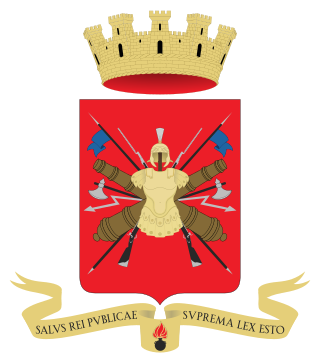
The Italian Army is the land-based component of the Italian Armed Forces. The army's history dates back to the Italian unification in the 1850s and 1860s. The army fought in colonial engagements in China, Libya, Northern Italy against the Austro-Hungarian Empire during World War I, Abyssinia before World War II and in World War II in Albania, Balkans, North Africa, the Soviet Union, and Italy itself. During the Cold War, the army prepared itself to defend against a Warsaw Pact invasion from the east. Since the end of the Cold War, the army has seen extensive peacekeeping service and combat in Afghanistan and Iraq. Its best-known combat vehicles are the Dardo infantry fighting vehicle, the Centauro tank destroyer and the Ariete tank and among its aircraft the Mangusta attack helicopter, recently deployed in UN missions. The headquarters of the Army General Staff are located in Rome opposite the Quirinal Palace, where the president of Italy resides. The army is an all-volunteer force of active-duty personnel.

Palermo is a city in southern Italy, the capital of both the autonomous region of Sicily and the Metropolitan City of Palermo, the city's surrounding metropolitan province. The city is noted for its history, culture, architecture and gastronomy, playing an important role throughout much of its existence; it is over 2,700 years old. Palermo is in the northwest of the island of Sicily, by the Gulf of Palermo in the Tyrrhenian Sea.
The Belgian Congo gained independence from colonial rule, beginning a period of instability that would lead to the dictatorship of Joseph-Désiré Mobutu.

The Belgian Congo was a Belgian colony in Central Africa from 1908 until independence in 1960. The former colony adopted its present name, the Democratic Republic of the Congo (DRC), in 1964.
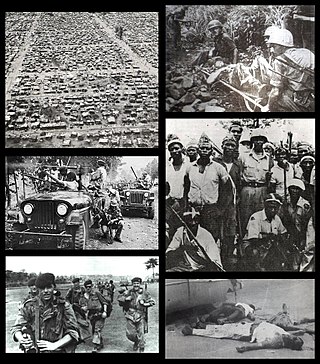
The Congo Crisis was a period of political upheaval and conflict between 1960 and 1965 in the Republic of the Congo. The crisis began almost immediately after the Congo became independent from Belgium and ended, unofficially, with the entire country under the rule of Joseph-Désiré Mobutu. Constituting a series of civil wars, the Congo Crisis was also a proxy conflict in the Cold War, in which the Soviet Union and the United States supported opposing factions. Around 100,000 people are believed to have been killed during the crisis.

Mobutu Sese Seko Kuku Ngbendu Wa Za Banga was a Congolese politician and military officer who was the president of Zaire from 1965 to 1997. He also served as Chairman of the Organisation of African Unity from 1967 to 1968. During the Congo Crisis, Mobutu, serving as Chief of Staff of the Army and supported by Belgium and the United States, deposed the democratically elected government of left-wing nationalist Patrice Lumumba in 1960. Mobutu installed a government that arranged for Lumumba's execution in 1961, and continued to lead the country's armed forces until he took power directly in a second coup in 1965.
Belgian Congo gains independence as Republic of the Congo (Léopoldville).

The Belgian Congo was a Belgian colony in Central Africa from 1908 until independence in 1960. The former colony adopted its present name, the Democratic Republic of the Congo (DRC), in 1964.
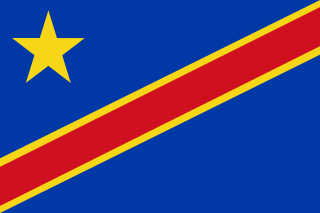
The Republic of the Congo was a sovereign state in Central Africa, created with the independence of the Belgian Congo in 1960. From 1960 to 1966, the country was also known as Congo-Léopoldville to distinguish it from its northwestern neighbor, which is also called the Republic of the Congo, alternatively known as "Congo-Brazzaville". In 1964, the state's official name was changed to the Democratic Republic of the Congo, but the two countries continued to be distinguished by their capitals; with the renaming of Léopoldville as Kinshasa in 1966, it became also known as Congo-Kinshasa. After Joseph Désiré Mobutu, renamed Mobutu Sese Seko in 1972, commander-in-chief of the national army, seized control of the country, it became the Republic of Zaire in 1971. It would again become the Democratic Republic of the Congo in 1997. The period between 1960 and 1964 is referred to as the First Congolese Republic.
A United States Air Force F-100 Super Sabre from Kadena Air Base, Okinawa, crashes into a nearby elementary school, killing 11 students plus six residents from the local neighborhood.

The North American F-100 Super Sabre is an American supersonic jet fighter aircraft that served with the United States Air Force (USAF) from 1954 to 1971 and with the Air National Guard (ANG) until 1979. The first of the Century Series of USAF jet fighters, it was the first USAF fighter capable of supersonic speed in level flight. The F‑100 was designed by North American Aviation as a higher-performance follow-on to the F-86 Sabre air-superiority fighter.

Kadena Air Base is a highly strategic United States Air Force base in the towns of Kadena and Chatan and the city of Okinawa, in Okinawa Prefecture, Japan. It is often referred to as the "Keystone of the Pacific" because of its highly strategic and geographic location. It is located just 650 km off the coast of China and at a distance of just 770 km from Shanghai, a major economic hub. It is home to the USAF's 18th Wing, the 353rd Special Operations Group, reconnaissance units, 1st Battalion, 1st Air Defense Artillery Regiment, and a variety of associated units. Over 20,000 American servicemembers, family members, and Japanese employees live or work aboard Kadena Air Base. It is the largest and most active U.S. Air Force base in East Asia.

Okinawa Prefecture is a prefecture of Japan. Okinawa Prefecture is the southernmost and westernmost prefecture of Japan, has a population of 1,457,162 and a geographic area of 2,281 km2.

The 1959 Okinawa F-100 crash, also known as the Miyamori Elementary School crash (宮森小学校米軍機墜落事故), occurred on June 30, 1959, when a North American F-100 Super Sabre of the United States Air Force crashed in Ishikawa, in United States-occupied Okinawa, killing 18 people.
A TWA Super Constellation and a United Airlines DC-7 collide above the Grand Canyon in Arizona and crash, killing all 128 on board both airliners.

Trans World Airlines (TWA) was a major American airline which operated from 1930 until 2001. It was formed as Transcontinental & Western Air to operate a route from New York City to Los Angeles via St. Louis, Kansas City, and other stops, with Ford Trimotors. With American, United, and Eastern, it was one of the "Big Four" domestic airlines in the United States formed by the Spoils Conference of 1930.

The Lockheed Constellation ("Connie") is a propeller-driven, four-engined airliner built by Lockheed Corporation starting in 1943. The Constellation series was the first pressurized-cabin civil airliner series to go into widespread use. Its pressurized cabin enabled commercial passengers to fly well above most bad weather for the first time, thus significantly improving the general safety and ease of air travel.
United Airlines, Inc., is a major American airline headquartered at the Willis Tower in Chicago, Illinois. United operates a large domestic and international route network spanning cities large and small across the United States and all six inhabited continents. Measured by fleet size and the number of routes, it is the third-largest airline in the world after its merger with Continental Airlines in 2010.
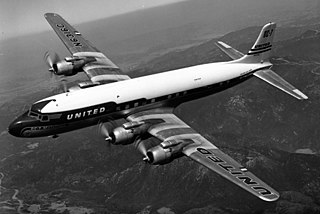
The Douglas DC-7 is an American transport aircraft built by the Douglas Aircraft Company from 1953 to 1958. A derivative of the DC-6, it was the last major piston engine-powered transport made by Douglas, being developed shortly after the earliest jet airliner—the de Havilland Comet—entered service and only a few years before the jet-powered Douglas DC-8 first flew in 1958. Unlike other aircraft in Douglas's line of propeller-driven aircraft, no examples remain in service in the present day, as compared to the far more successful DC-3 and DC-6.
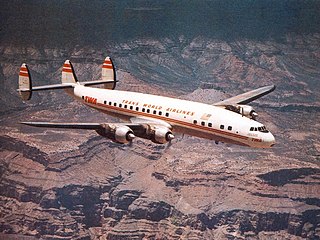
The Grand Canyon mid-air collision occurred in the western United States on Saturday, June 30, 1956, when a United Airlines Douglas DC-7 struck a Trans World Airlines Lockheed L-1049 Super Constellation over Grand Canyon National Park, Arizona. All 128 on board both airplanes perished, making it the first commercial airline incident to exceed one hundred fatalities. The airplanes had departed Los Angeles International Airport minutes apart for Chicago and Kansas City, respectively. The collision took place in uncontrolled airspace, where it was the pilots' responsibility to maintain separation. This highlighted the antiquated state of air traffic control, which became the focus of major aviation reforms.

The Grand Canyon is a steep-sided canyon carved by the Colorado River in Arizona, United States. The Grand Canyon is 277 miles (446 km) long, up to 18 miles (29 km) wide and attains a depth of over a mile.

Arizona is a state in the Southwestern United States. It is the 6th largest and the 14th most populous of the 50 states. Its capital and largest city is Phoenix. Arizona is part of the Four Corners region with Utah to the north, Colorado to the northeast, and New Mexico to the east; its other neighboring states are Nevada to the northwest, California to the west and the Mexican states of Sonora and Baja California to the south and southwest.
The first Chevrolet Corvette rolls off the assembly line in Flint, Michigan.

The Chevrolet Corvette is a two-door, two-passenger luxury sports car manufactured and marketed by Chevrolet since 1953. With eight design generations, noted sequentially from C1 to C8, the Corvette is noted for its performance and distinctive fiberglass or composite panels. It was front-engined through 2019 and mid-engined since.

Flint is the largest city and seat of Genesee County, Michigan, United States. Located along the Flint River, 66 miles (106 km) northwest of Detroit, it is a principal city within the region known as Mid Michigan. At the 2020 census, Flint had a population of 81,252, making it the twelfth largest city in Michigan. The Flint metropolitan area is located entirely within Genesee County. It is the fourth largest metropolitan area in Michigan with a population of 406,892 in 2020. The city was incorporated in 1855.
World War II: The Battle of Cherbourg ends with the fall of the strategically valuable port to American forces.

World War II or the Second World War, often abbreviated as WWII or WW2, was a world war that lasted from 1939 to 1945. It involved the vast majority of the world's countries—including all of the great powers—forming two opposing military alliances: the Allies and the Axis powers. World War II was a total war that directly involved more than 100 million personnel from more than 30 countries.
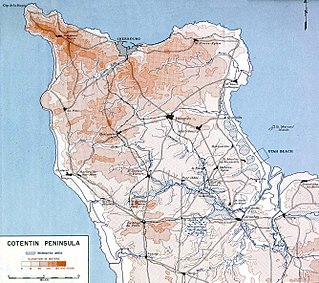
The Battle of Cherbourg was part of the Battle of Normandy during World War II. It was fought immediately after the successful Allied landings on 6 June 1944. Allied troops, mainly American, isolated and captured the fortified port, which was considered vital to the campaign in Western Europe, in a hard-fought, month-long campaign.
The world's first emergency telephone number, 999, is introduced in London.

Most public switched telephone networks have a single emergency telephone number that allows a caller to contact local emergency services for assistance. The emergency number differs from country to country; it is typically a three-digit number so that it can be easily remembered and dialed quickly. Some countries have a different emergency number for each of the different emergency services; these often differ only by the last digit.
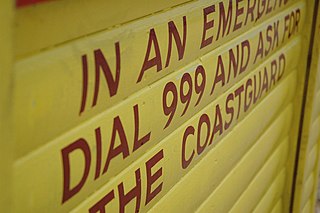
999 is an official emergency telephone number in a number of countries which allows the caller to contact emergency services for urgent assistance. Countries and territories using the number include Bahrain, Bangladesh, Botswana, Eswatini, Ghana, Guernsey, Hong Kong, Ireland, Isle of Man, Jersey, Kenya, Macau, Malaysia, Mauritius, Poland, Qatar, Sudan, Saudi Arabia, Singapore, Trinidad and Tobago, Seychelles, Uganda, the United Arab Emirates, the United Kingdom, and Zimbabwe.
Emperor Haile Selassie of Abyssinia appeals for aid to the League of Nations against Italy's invasion of his country.

Haile Selassie I was Emperor of Ethiopia from 1930 to 1974. He rose to power as Regent Plenipotentiary of Ethiopia (Enderase) for Empress Zewditu from 1916. Haile Selassie is widely considered a defining figure in modern Ethiopian history, and the key figure of Rastafari, a religious movement in Jamaica that emerged shortly after he became emperor in the 1930s. He was a member of the Solomonic dynasty, which claims to trace lineage to Emperor Menelik I, believed to be the son of King Solomon and Makeda the Queen of Sheba.

The Ethiopian Empire, also formerly known by the exonym Abyssinia, or just simply known as Ethiopia, was an empire that historically spanned the geographical area of present-day Ethiopia and Eritrea from the establishment of the Solomonic dynasty by Yekuno Amlak approximately in 1270 until the 1974 coup d'etat of Emperor Haile Selassie by the Derg. By 1896, the Empire incorporated other regions such as Hararghe, Gurage and Wolayita, and saw its largest expansion with the federation of Eritrea in 1952. Throughout much of its existence, it was surrounded by hostile forces in the African Horn; however, it managed to develop and preserve a kingdom based on its ancient form of Christianity.
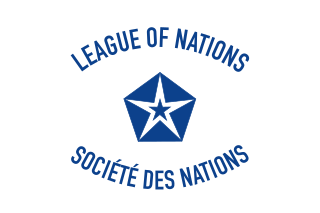
The League of Nations was the first worldwide intergovernmental organisation whose principal mission was to maintain world peace. It was founded on 10 January 1920 by the Paris Peace Conference that ended the First World War. The main organization ceased operations on 20 April 1946 but many of its components were relocated into the new United Nations.
German chancellor Adolf Hitler began a purge of the SA, the Nazi Party's paramilitary wing, and other political rivals in the Night of the Long Knives, executing at least 85 people.

Adolf Hitler was an Austrian-born German politician who was dictator of Germany from 1933 until his death in 1945. He rose to power as the leader of the Nazi Party, becoming the chancellor in 1933 and then taking the title of Führer und Reichskanzler in 1934. During his dictatorship, he initiated World War II in Europe by invading Poland on 1 September 1939. He was closely involved in military operations throughout the war and was central to the perpetration of the Holocaust: the genocide of about six million Jews and millions of other victims.
The Sturmabteilung was the original paramilitary wing of the Nazi Party. It played a significant role in Adolf Hitler's rise to power in the 1920s and 1930s. Its primary purposes were providing protection for Nazi rallies and assemblies, disrupting the meetings of opposing parties, fighting against the paramilitary units of the opposing parties, especially the Roter Frontkämpferbund of the Communist Party of Germany (KPD) and the Reichsbanner Schwarz-Rot-Gold of the Social Democratic Party of Germany (SPD), and intimidating Romani, trade unionists, and especially Jews.

The Nazi Party, officially the National Socialist German Workers' Party, was a far-right political party in Germany active between 1920 and 1945 that created and supported the ideology of Nazism. Its precursor, the German Workers' Party, existed from 1919 to 1920. The Nazi Party emerged from the extremist German nationalist, racist and populist Freikorps paramilitary culture, which fought against the communist uprisings in post–World War I Germany. The party was created to draw workers away from communism and into völkisch nationalism. Initially, Nazi political strategy focused on anti–big business, anti-bourgeois, and anti-capitalist rhetoric. This was later downplayed to gain the support of business leaders, and in the 1930s, the party's main focus shifted to antisemitic and anti-Marxist themes. The party had little popular support until the Great Depression.

The Night of the Long Knives, or the Röhm purge, also called Operation Hummingbird, was a purge that took place in Nazi Germany from 30 June to 2 July 1934. Chancellor Adolf Hitler, urged on by Hermann Göring and Heinrich Himmler, ordered a series of political extrajudicial executions intended to consolidate his power and alleviate the concerns of the German military about the role of Ernst Röhm and the Sturmabteilung (SA), the Nazis' paramilitary organization, known colloquially as "Brownshirts". Nazi propaganda presented the murders as a preventive measure against an alleged imminent coup by the SA under Röhm – the so-called Röhm Putsch.
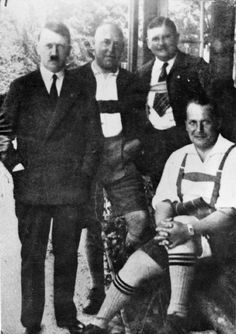
The Night of the Long Knives was a purge in which Adolf Hitler and the regime of Nazi Germany targeted members of the Sturmabteilung (SA), the paramilitary wing of the Nazi Party, as well as past opponents of the party. At least 85 people were murdered in the purge, which took place between 30 June and 2 July 1934.
The Night of the Long Knives, Adolf Hitler's violent purge of his political rivals in Germany, takes place.

The Night of the Long Knives, or the Röhm purge, also called Operation Hummingbird, was a purge that took place in Nazi Germany from 30 June to 2 July 1934. Chancellor Adolf Hitler, urged on by Hermann Göring and Heinrich Himmler, ordered a series of political extrajudicial executions intended to consolidate his power and alleviate the concerns of the German military about the role of Ernst Röhm and the Sturmabteilung (SA), the Nazis' paramilitary organization, known colloquially as "Brownshirts". Nazi propaganda presented the murders as a preventive measure against an alleged imminent coup by the SA under Röhm – the so-called Röhm Putsch.

Adolf Hitler was an Austrian-born German politician who was dictator of Germany from 1933 until his death in 1945. He rose to power as the leader of the Nazi Party, becoming the chancellor in 1933 and then taking the title of Führer und Reichskanzler in 1934. During his dictatorship, he initiated World War II in Europe by invading Poland on 1 September 1939. He was closely involved in military operations throughout the war and was central to the perpetration of the Holocaust: the genocide of about six million Jews and millions of other victims.
An agreement was signed to end the United States occupation of the Dominican Republic.

The first United States occupation of the Dominican Republic lasted from 1916 to 1924. It was one of the many interventions in Latin America undertaken by the military forces of the United States in the 20th century. On May 13, 1916, Rear Admiral William B. Caperton forced the Dominican Republic's Secretary of War Desiderio Arias, who had seized power from President Juan Isidro Jimenes Pereyra, to leave Santo Domingo by threatening the city with naval bombardment. The Marines landed three days later and established effective control of the country within two months. The U.S. occupations of Haiti and the Dominican Republic led to clashes that killed 290 U.S. Marines, over 3,000 Haitians, and hundreds of Dominicans. Despite having much greater firepower, it took the U.S. Marines five years to suppress an insurgency in the eastern provinces of El Seibo and San Pedro de Macorís.
In Washington D.C., U.S. Secretary of State Charles Evans Hughes and Dominican Ambassador Francisco J. Peynado sign the Hughes–Peynado agreement, which ends the United States occupation of the Dominican Republic.

Charles Evans Hughes Sr. was an American statesman, politician and jurist who served as the 11th Chief Justice of the United States from 1930 to 1941. A member of the Republican Party, he previously was the 36th Governor of New York (1907–1910), an associate justice of the Supreme Court (1910–1916), and 44th U.S. Secretary of State (1921–1925), as well as the Republican nominee for President of the United States who lost a very close 1916 presidential election to Woodrow Wilson.

The first United States occupation of the Dominican Republic lasted from 1916 to 1924. It was one of the many interventions in Latin America undertaken by the military forces of the United States in the 20th century. On May 13, 1916, Rear Admiral William B. Caperton forced the Dominican Republic's Secretary of War Desiderio Arias, who had seized power from President Juan Isidro Jimenes Pereyra, to leave Santo Domingo by threatening the city with naval bombardment. The Marines landed three days later and established effective control of the country within two months. The U.S. occupations of Haiti and the Dominican Republic led to clashes that killed 290 U.S. Marines, over 3,000 Haitians, and hundreds of Dominicans. Despite having much greater firepower, it took the U.S. Marines five years to suppress an insurgency in the eastern provinces of El Seibo and San Pedro de Macorís.
U.S. President Warren G. Harding appoints former President William Howard Taft as Chief Justice of the United States.

Warren Gamaliel Harding was the 29th president of the United States, serving from 1921 until his death in 1923. A member of the Republican Party, he was one of the most popular sitting U.S. presidents. After his death, a number of scandals were exposed, including Teapot Dome, as well as an extramarital affair with Nan Britton, which diminished his reputation.
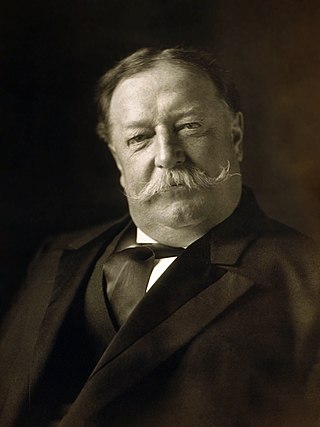
William Howard Taft was the 27th president of the United States (1909–1913) and the tenth chief justice of the United States (1921–1930), the only person to have held both offices. Taft was elected president in 1908, the chosen successor of Theodore Roosevelt, but was defeated for reelection in 1912 by Woodrow Wilson after Roosevelt split the Republican vote by running as a third-party candidate. In 1921, President Warren G. Harding appointed Taft to be chief justice, a position he held until a month before his death.

The chief justice of the United States is the chief judge of the Supreme Court of the United States and the highest-ranking officer of the U.S. federal judiciary. Article II, Section 2, Clause 2 of the U.S. Constitution grants plenary power to the president of the United States to nominate, and with the advice and consent of the United States Senate, appoint "Judges of the supreme Court", who serve until they resign, retire, are impeached and convicted, or die. The existence of a chief justice is explicit in Article One, Section 3, Clause 6 which states that the chief justice shall preside on the impeachment trial of the president.
World War I: In "the day Sussex died", elements of the Royal Sussex Regiment take heavy casualties in the Battle of the Boar's Head at Richebourg-l'Avoué in France.
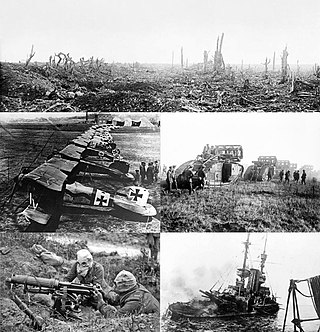
World War I or the First World War, often abbreviated as WWI or WW1, and referred to by some Anglophone authors as the "Great War" or the "War to End All Wars", was a global conflict which lasted from 1914 to 1918, and is considered one of the deadliest conflicts in history. Belligerents included much of Europe, the Russian Empire, the United States, and the Ottoman Empire, with fighting occurring throughout Europe, the Middle East, Africa, the Pacific, and parts of Asia. An estimated 9 million soldiers were killed in combat, plus another 23 million wounded, while 5 million civilians died as a result of military action, hunger, and disease. Millions more died in genocides within the Ottoman Empire and in the 1918 influenza pandemic, which was exacerbated by the movement of combatants during the war.

The Royal Sussex Regiment was a line infantry regiment of the British Army that was in existence from 1881 to 1966. The regiment was formed in 1881 as part of the Childers Reforms by the amalgamation of the 35th Regiment of Foot and the 107th Regiment of Foot. The regiment saw service in the Second Boer War, and both World War I and World War II.

The Battle of the Boar's Head was an attack on 30 June 1916 at Richebourg-l'Avoué in France, during the First World War. Troops of the 39th Division, XI Corps in the First Army of the British Expeditionary Force (BEF), advanced to capture the Boar's Head, a salient held by the German 6th Army. Two battalions of the 116th Brigade, with one battalion forming carrying parties, attacked the German front position before dawn on 30 June. The British took and held the German front line trench and the second trench for several hours, before retiring to their lines having lost 850–1,366 casualties.
Richebourg-l'Avoué is a village and former commune in the Pas-de-Calais region of France. It was merged with Richebourg-Saint-Vaast to form the commune of Richebourg on 21 February 1971.

France, officially the French Republic, is a transcontinental country predominantly located in Western Europe and spanning overseas regions and territories in the Americas and the Atlantic, Pacific and Indian Oceans. Its metropolitan area extends from the Rhine to the Atlantic Ocean and from the Mediterranean Sea to the English Channel and the North Sea; overseas territories include French Guiana in South America, Saint Pierre and Miquelon in the North Atlantic, the French West Indies, and many islands in Oceania and the Indian Ocean. Due to its several coastal territories, France has the largest exclusive economic zone in the world. France borders Belgium, Luxembourg, Germany, Switzerland, Monaco, Italy, Andorra, and Spain in continental Europe, as well as the Netherlands, Suriname, and Brazil in the Americas via its overseas territories in French Guiana and Saint Martin. Its eighteen integral regions span a combined area of 643,801 km2 (248,573 sq mi) and contain close to 68 million people. France is a unitary semi-presidential republic with its capital in Paris, the country's largest city and main cultural and commercial centre; other major urban areas include Marseille, Lyon, Toulouse, Lille, Bordeaux, and Nice.
The Regina Cyclone, Canada's deadliest tornado event, kills 28 people in Regina, Saskatchewan.
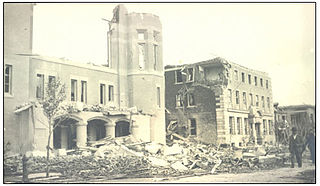
The Regina Cyclone, or Regina tornado of 1912, was a tornado that devastated the city of Regina, Saskatchewan, Canada, on Sunday, June 30, 1912. It remains the deadliest tornado in Canadian history with a total of 28 fatalities and about 300 people injured. At about 4:50 p.m., green funnel clouds formed and touched down south of the city, tearing through the residential area between Wascana Lake and Victoria Avenue, and continuing through the downtown business district, rail yards, warehouse district, and northern residential area.

Regina is the capital city of the Canadian province of Saskatchewan. The city is the second-largest in the province, after Saskatoon, and is a commercial centre for southern Saskatchewan. As of the 2016 census, Regina had a city population of 215,106, and a Metropolitan Area population of 236,481. Statistics Canada has estimated the CMA's population to be 263,184 as of 2020. It is governed by Regina City Council. The city is surrounded by the Rural Municipality of Sherwood No. 159.
A massive explosion, generally attributed to a meteor air burst, occurred near the Podkamennaya Tunguska river in Siberia, flattening more than 2,150 km2 (830 sq mi) of forest.

The Tunguska event was an approximately 12-megaton explosion that occurred near the Podkamennaya Tunguska River in Yeniseysk Governorate, Russia, on the morning of June 30, 1908. The explosion over the sparsely populated Eastern Siberian Taiga flattened an estimated 80 million trees over an area of 2,150 km2 (830 sq mi) of forest, and eyewitness reports suggest that at least three people may have died in the event. The explosion is generally attributed to a meteor air burst: the atmospheric explosion of a stony asteroid about 50–60 metres in size. The asteroid approached from the east-southeast, and likely with a relatively high speed of about 27 km/s (60,000 mph). It is classified as an impact event, even though no impact crater has been found; the object is thought to have disintegrated at an altitude of 5 to 10 kilometres rather than having hit the surface of the Earth.

A meteor air burst is a type of air burst in which a meteor explodes after entering a planetary body's atmosphere. This fate leads them to be called fireballs or bolides, with the brightest air bursts known as superbolides. Such meteoroids were originally asteroids and comets of a few to several tens of meters in diameter. This separates them from the much smaller and far more common "shooting stars", that usually burn up quickly upon atmospheric entry.

The Podkamennaya Tunguska also known as Middle Tunguska or Stony Tunguska, is a river in Krasnoyarsk Krai, Russia.

Siberia is an extensive geographical region, constituting all of North Asia, from the Ural Mountains in the west to the Pacific Ocean in the east. It has been a part of Russia since the latter half of the 16th century, after the Russians conquered lands east of the Ural Mountains. Siberia is vast and sparsely populated, covering an area of over 13.1 million square kilometres (5,100,000 sq mi), but home to merely one-fifth of Russia's population. Novosibirsk and Omsk are the largest cities in the region.
The Tunguska Event, the largest impact event on Earth in human recorded history, resulting in a massive explosion over Eastern Siberia.

The Tunguska event was an approximately 12-megaton explosion that occurred near the Podkamennaya Tunguska River in Yeniseysk Governorate, Russia, on the morning of June 30, 1908. The explosion over the sparsely populated Eastern Siberian Taiga flattened an estimated 80 million trees over an area of 2,150 km2 (830 sq mi) of forest, and eyewitness reports suggest that at least three people may have died in the event. The explosion is generally attributed to a meteor air burst: the atmospheric explosion of a stony asteroid about 50–60 metres in size. The asteroid approached from the east-southeast, and likely with a relatively high speed of about 27 km/s (60,000 mph). It is classified as an impact event, even though no impact crater has been found; the object is thought to have disintegrated at an altitude of 5 to 10 kilometres rather than having hit the surface of the Earth.

An impact event is a collision between astronomical objects causing measurable effects. Impact events have physical consequences and have been found to regularly occur in planetary systems, though the most frequent involve asteroids, comets or meteoroids and have minimal effect. When large objects impact terrestrial planets such as the Earth, there can be significant physical and biospheric consequences, though atmospheres mitigate many surface impacts through atmospheric entry. Impact craters and structures are dominant landforms on many of the Solar System's solid objects and present the strongest empirical evidence for their frequency and scale.

Earth is the third planet from the Sun and the only astronomical object known to harbor life. While large volumes of water can be found throughout the Solar System, only Earth sustains liquid surface water. About 71% of Earth's surface is made up of the ocean, dwarfing Earth's polar ice, lakes, and rivers. The remaining 29% of Earth's surface is land, consisting of continents and islands. Earth's surface layer is formed of several slowly moving tectonic plates, interacting to produce mountain ranges, volcanoes, and earthquakes. Earth's liquid outer core generates the magnetic field that shapes the magnetosphere of the Earth, deflecting destructive solar winds.

Siberia is an extensive geographical region, constituting all of North Asia, from the Ural Mountains in the west to the Pacific Ocean in the east. It has been a part of Russia since the latter half of the 16th century, after the Russians conquered lands east of the Ural Mountains. Siberia is vast and sparsely populated, covering an area of over 13.1 million square kilometres (5,100,000 sq mi), but home to merely one-fifth of Russia's population. Novosibirsk and Omsk are the largest cities in the region.
The United States Congress passes the Meat Inspection Act and Pure Food and Drug Act.

The Federal Meat Inspection Act of 1906 (FMIA) is an American law that makes it illegal to adulterate or misbrand meat and meat products being sold as food, and ensures that meat and meat products are slaughtered and processed under strictly regulated sanitary conditions. These requirements also apply to imported meat products, which must be inspected under equivalent foreign standards. United States Department of Agriculture (USDA) inspection of poultry was added by the Poultry Products Inspection Act of 1957 (PPIA). The Food, Drug, and Cosmetic Act authorizes the Food and Drug Administration (FDA) to provide inspection services for all livestock and poultry species not listed in the FMIA or PPIA, including venison and buffalo. The Agricultural Marketing Act authorizes the USDA to offer voluntary, fee-for-service inspection services for these same species.

The Pure Food and Drug Act of 1906 was the first of a series of significant consumer protection laws which was enacted by Congress in the 20th century and led to the creation of the Food and Drug Administration. Its main purpose was to ban foreign and interstate traffic in adulterated or mislabeled food and drug products, and it directed the U.S. Bureau of Chemistry to inspect products and refer offenders to prosecutors. It required that active ingredients be placed on the label of a drug's packaging and that drugs could not fall below purity levels established by the United States Pharmacopeia or the National Formulary.
Albert Einstein sends the article On the Electrodynamics of Moving Bodies, in which he introduces special relativity, for publication in Annalen der Physik.
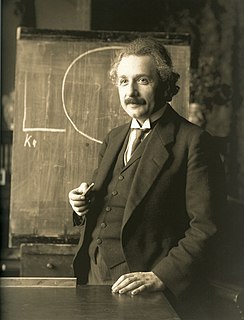
Albert Einstein was a German-born theoretical physicist, widely acknowledged to be one of the greatest and most influential physicists of all time. Einstein is best known for developing the theory of relativity, but he also made important contributions to the development of the theory of quantum mechanics. Relativity and quantum mechanics are the two pillars of modern physics. His mass–energy equivalence formula E = mc2, which arises from relativity theory, has been dubbed "the world's most famous equation". His work is also known for its influence on the philosophy of science. He received the 1921 Nobel Prize in Physics "for his services to theoretical physics, and especially for his discovery of the law of the photoelectric effect", a pivotal step in the development of quantum theory. His intellectual achievements and originality resulted in "Einstein" becoming synonymous with "genius".
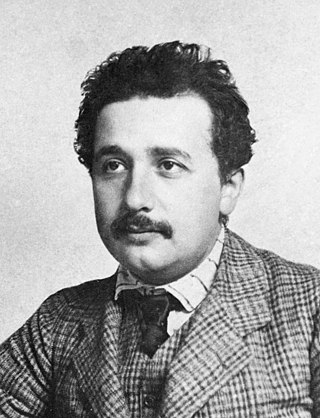
The annus mirabilis papers are the four papers that Albert Einstein published in Annalen der Physik, a scientific journal, in 1905. These four papers were major contributions to the foundation of modern physics. They revolutionized science's understanding of the fundamental concepts of space, time, mass, and energy. Because Einstein published these remarkable papers in a single year, 1905 is called his annus mirabilis.

In physics, the special theory of relativity, or special relativity for short, is a scientific theory regarding the relationship between space and time. In Albert Einstein's original treatment, the theory is based on two postulates:The laws of physics are invariant in all inertial frames of reference. The speed of light in vacuum is the same for all observers, regardless of the motion of the light source or the observer.

Annalen der Physik is one of the oldest scientific journals on physics; it has been published since 1799. The journal publishes original, peer-reviewed papers on experimental, theoretical, applied, and mathematical physics and related areas. The editor-in-chief is Stefan Hildebrandt. Prior to 2008, its ISO 4 abbreviation was Ann. Phys. (Leipzig), after 2008 it became Ann. Phys. (Berl.).
A savage fire wrecked three steamships docked at a pier in Hoboken, New Jersey. Over 200 crew members and passengers are killed, and hundreds injured.

Hoboken is a city in Hudson County, New Jersey, United States. As of the 2020 United States Census, the city's population was 60,417. Among cities with a population above 50,000, Hoboken was ranked as the third-most densely populated municipality in the United States, with more than 42,400 people per square mile. Hoboken is part of the New York metropolitan area and is the site of Hoboken Terminal, a major transportation hub for the tri-state region.
London's Tower Bridge (pictured), a combined bascule and suspension bridge over the River Thames, was inaugurated.
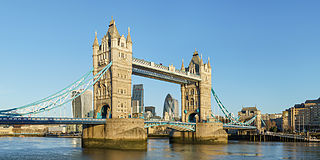
Tower Bridge is a Grade I listed combined bascule and suspension bridge in London, built between 1886 and 1894, designed by Horace Jones and engineered by John Wolfe Barry with the help of Henry Marc Brunel. It crosses the River Thames close to the Tower of London and is one of five London bridges owned and maintained by the Bridge House Estates, a charitable trust founded in 1282. The bridge was constructed to give better access to the East End of London, which had expanded its commercial potential in the 19th century. The bridge was opened by Edward, Prince of Wales and Alexandra, Princess of Wales in 1894.

A bascule bridge is a moveable bridge with a counterweight that continuously balances a span, or leaf, throughout its upward swing to provide clearance for boat traffic. It may be single- or double-leafed.

A suspension bridge is a type of bridge in which the deck is hung below suspension cables on vertical suspenders. The first modern examples of this type of bridge were built in the early 1800s. Simple suspension bridges, which lack vertical suspenders, have a long history in many mountainous parts of the world.
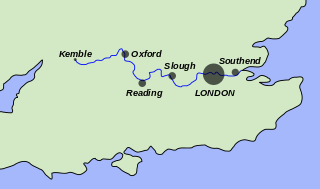
The River Thames, known alternatively in parts as the River Isis, is a river that flows through southern England including London. At 215 miles (346 km), it is the longest river entirely in England and the second-longest in the United Kingdom, after the River Severn.
The Homestead Strike begins near Pittsburgh, Pennsylvania.

The Homestead strike, also known as the Homestead steel strike, Homestead massacre, or Battle of Homestead, was an industrial lockout and strike that began on July 1, 1892, culminating in a battle in which strikers defeated private security agents on July 6, 1892. The governor responded by sending in the National Guard to protect strikebreakers. The dispute occurred at the Homestead Steel Works in the Pittsburgh-area town of Homestead, Pennsylvania, between the Amalgamated Association of Iron and Steel Workers and the Carnegie Steel Company. The final result was a major defeat for the union strikers and a setback of decades for their efforts to unionize steelworkers. The battle was a pivotal event in U.S. labor history.

Pittsburgh is a city in the Commonwealth of Pennsylvania and the county seat of Allegheny County. It is the second-most populous city in Pennsylvania, behind Philadelphia, and 68th-largest city in the U.S. with a population of 302,971 as of the 2020 census. The city anchors the Pittsburgh metropolitan area of Western Pennsylvania; its population of 2.37 million is the largest in both the Ohio Valley and Appalachia, the second-largest in Pennsylvania, and the 27th-largest in the U.S. It is the principal city of the greater Pittsburgh–New Castle–Weirton combined statistical area that extends into Ohio and West Virginia.

Pennsylvania, officially the Commonwealth of Pennsylvania, is a state spanning the Mid-Atlantic, Northeastern, Appalachian, and Great Lakes regions of the United States. It borders Delaware to the southeast, Maryland to the south, West Virginia to the southwest, Ohio to the west, Lake Erie and the Canadian province of Ontario to the northwest, New York to the north, and the Delaware River and New Jersey to the east.
The first transcontinental train trip across Canada departs from Montreal, Quebec. It arrives in Port Moody, British Columbia on July 4.

Montreal is the second-most populous city in Canada and most populous city in the Canadian province of Quebec. Founded in 1642 as Ville-Marie, or "City of Mary", it is named after Mount Royal, the triple-peaked hill around which the early city of Ville-Marie is built. The city is centred on the Island of Montreal, which obtained its name from the same origin as the city, and a few much smaller peripheral islands, the largest of which is Île Bizard. The city is 196 km (122 mi) east of the national capital Ottawa, and 258 km (160 mi) southwest of the provincial capital, Quebec City.

Port Moody is a city in British Columbia, Canada, and a member municipality of the Metro Vancouver Regional District. It envelops the east end of Burrard Inlet and is the smallest of the Tri-Cities, bordered by Coquitlam on the east and south and by Burnaby on the west. The villages of Belcarra and Anmore, along with the rugged Coast Mountains, lie to the northwest and north, respectively. It is named for Richard Clement Moody, the first lieutenant governor of the Colony of British Columbia.
Charles J. Guiteau is hanged in Washington, D.C. for the assassination of U.S. President James Garfield.
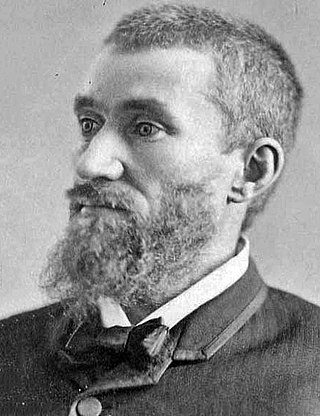
Charles Julius Guiteau was an American man who assassinated James A. Garfield, president of the United States, on July 2, 1881. Guiteau falsely believed he had played a major role in Garfield's election victory, for which he should have been rewarded with a consulship. He was so offended by the Garfield administration's rejections of his applications to serve in Vienna or Paris that he decided to kill Garfield, and shot him at the Baltimore and Potomac Railroad Station in Washington, D.C. Garfield died two months later from infections related to the wounds. In January 1882, Guiteau was sentenced to death for the crime, and was hanged five months later.

Washington, D.C., formally the District of Columbia, also known as just Washington or simply D.C., is the capital city and federal district of the United States. It is located on the east bank of the Potomac River, which forms its southwestern and southern border with the U.S. state of Virginia, and it shares a land border with the U.S. state of Maryland on its other sides. The city was named for George Washington, a Founding Father and the first president of the United States, and the federal district is named after Columbia, the female personification of the nation. As the seat of the U.S. federal government and several international organizations, the city is an important world political capital. It is one of the most visited cities in the U.S. with over 20 million annual visitors as of 2016.

James A. Garfield, the 20th president of the United States, was shot at the Baltimore and Potomac Railroad Station in Washington, D.C., at 9:30 am on Saturday, July 2, 1881. He died in Elberon, New Jersey, 79 days later on September 19, 1881. The shooting occurred less than four months into his term as president. Garfield's assassin was Charles J. Guiteau, whose motive was revenge against Garfield for an imagined political debt, and getting Chester A. Arthur elevated to president. Guiteau was convicted of Garfield's murder and executed by hanging one year after the shooting.

The president of the United States (POTUS) is the head of state and head of government of the United States of America. The president directs the executive branch of the federal government and is the commander-in-chief of the United States Armed Forces.

James Abram Garfield was the 20th president of the United States, serving from March 4, 1881, until his death six months later—two months after he was shot by an assassin. A lawyer and Civil War general, he served nine terms in the United States House of Representatives and was the only sitting member of the House to be elected president. Before his candidacy for the White House, he had been elected to the U.S. Senate by the Ohio General Assembly—a position he declined when he became president-elect.
U.S. President Abraham Lincoln grants Yosemite Valley to California for "public use, resort and recreation".

The president of the United States (POTUS) is the head of state and head of government of the United States of America. The president directs the executive branch of the federal government and is the commander-in-chief of the United States Armed Forces.

Abraham Lincoln was an American lawyer, politician, and statesman who served as the 16th president of the United States from 1861 until his assassination in 1865. Lincoln led the nation through the American Civil War and succeeded in preserving the Union, abolishing slavery, bolstering the federal government, and modernizing the U.S. economy.
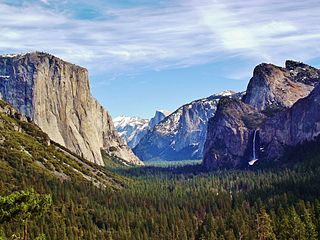
Yosemite Valley is a glacial valley in Yosemite National Park in the western Sierra Nevada mountains of Central California. The valley is about 7.5 mi (12.1 km) long and 3,000–3,500 ft (910–1,070 m) deep, surrounded by high granite summits such as Half Dome and El Capitan, and densely forested with pines. The valley is drained by the Merced River, and a multitude of streams and waterfalls flow into it, including Tenaya, Illilouette, Yosemite and Bridalveil Creeks. Yosemite Falls is the highest waterfall in North America and is a big attraction especially in the spring, when the water flow is at its peak. The valley is renowned for its natural environment and is regarded as the centerpiece of Yosemite National Park.

California is a state in the Western United States, located along the Pacific Coast. With nearly 39.2 million residents across a total area of approximately 163,696 square miles (423,970 km2), it is the most populous U.S. state and the 3rd largest by area. It is also the most populated subnational entity in North America and the 34th most populous in the world. The Greater Los Angeles area and the San Francisco Bay Area are the nation's second and fifth most populous urban regions respectively, with the former having more than 18.7 million residents and the latter having over 9.6 million. Sacramento is the state's capital, while Los Angeles is the most populous city in the state and the second most populous city in the country. San Francisco is the second most densely populated major city in the country. Los Angeles County is the country's most populous, while San Bernardino County is the largest county by area in the country. California borders Oregon to the north, Nevada and Arizona to the east, the Mexican state of Baja California to the south; and has a coastline along the Pacific Ocean to the west.
Seven months after the publication of Charles Darwin's On the Origin of Species, prominent British scientists and philosophers participated in an evolution debate at the Oxford University Museum of Natural History.

Charles Robert Darwin was an English naturalist, geologist, and biologist, widely known for contributing to the understanding of evolutionary biology. His proposition that all species of life have descended from a common ancestor is now generally accepted and considered a fundamental concept in science. In a joint publication with Alfred Russel Wallace, he introduced his scientific theory that this branching pattern of evolution resulted from a process that he called natural selection, in which the struggle for existence has a similar effect to the artificial selection involved in selective breeding. Darwin has been described as one of the most influential figures in human history, and he was honoured by burial in Westminster Abbey.

On the Origin of Species, published on 24 November 1859, is a work of scientific literature by Charles Darwin that is considered to be the foundation of evolutionary biology. Darwin's book introduced the scientific theory that populations evolve over the course of generations through a process of natural selection. The book presented a body of evidence that the diversity of life arose by common descent through a branching pattern of evolution. Darwin included evidence that he had collected on the Beagle expedition in the 1830s and his subsequent findings from research, correspondence, and experimentation.

The 1860 Oxford evolution debate took place at the Oxford University Museum in Oxford, England, on 30 June 1860, seven months after the publication of Charles Darwin's On the Origin of Species. Several prominent British scientists and philosophers participated, including Thomas Henry Huxley, Bishop Samuel Wilberforce, Benjamin Brodie, Joseph Dalton Hooker and Robert FitzRoy.

The Oxford University Museum of Natural History, sometimes known simply as the Oxford University Museum or OUMNH, is a museum displaying many of the University of Oxford's natural history specimens, located on Parks Road in Oxford, England. It also contains a lecture theatre which is used by the university's chemistry, zoology and mathematics departments. The museum provides the only public access into the adjoining Pitt Rivers Museum.
The 1860 Oxford evolution debate at the Oxford University Museum of Natural History takes place.

The 1860 Oxford evolution debate took place at the Oxford University Museum in Oxford, England, on 30 June 1860, seven months after the publication of Charles Darwin's On the Origin of Species. Several prominent British scientists and philosophers participated, including Thomas Henry Huxley, Bishop Samuel Wilberforce, Benjamin Brodie, Joseph Dalton Hooker and Robert FitzRoy.

The Oxford University Museum of Natural History, sometimes known simply as the Oxford University Museum or OUMNH, is a museum displaying many of the University of Oxford's natural history specimens, located on Parks Road in Oxford, England. It also contains a lecture theatre which is used by the university's chemistry, zoology and mathematics departments. The museum provides the only public access into the adjoining Pitt Rivers Museum.
French acrobat Charles Blondin crossed Niagara Gorge, making him one of the world's most famous tightrope walkers.

Charles Blondin was a French tightrope walker and acrobat. He toured the United States and was known for crossing the 1,100 ft (340 m) Niagara Gorge on a tightrope.

Niagara Gorge is an 11 km (6.8 mi) long canyon carved by the Niagara River along the Canada–United States border, between the U.S. state of New York and the Canadian province of Ontario. It begins at the base of Niagara Falls and ends downriver at the edge of the geological formation known as the Niagara Escarpment near Queenston, Ontario, where the falls originated about 12,500 years ago. The position of the falls has receded upstream toward Lake Erie because of the falling waters' slow erosion of the riverbed's hard Lockport dolomite, combined with rapid erosion of the relatively soft layers beneath it. This erosion has created the gorge.

Tightrope walking, also called funambulism, is the skill of walking along a thin wire or rope. It has a long tradition in various countries and is commonly associated with the circus. Other skills similar to tightrope walking include slack rope walking and slacklining.
French acrobat Charles Blondin crosses Niagara Falls on a tightrope.
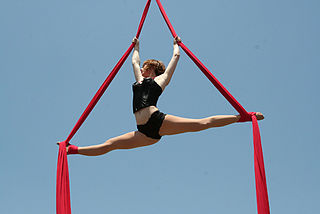
Acrobatics is the performance of human feats of balance, agility, and motor coordination. Acrobatic skills are used in performing arts, sporting events, and martial arts. Extensive use of acrobatic skills are most often performed in acro dance, circus, and gymnastics, and to a lesser extent in other athletic activities including ballet, slacklining and diving. Although acrobatics is most commonly associated with human body performance, the term is used to describe other types of performance, such as aerobatics.

Charles Blondin was a French tightrope walker and acrobat. He toured the United States and was known for crossing the 1,100 ft (340 m) Niagara Gorge on a tightrope.
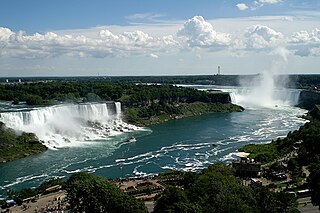
Niagara Falls is a group of three waterfalls at the southern end of Niagara Gorge, spanning the border between the province of Ontario in Canada and the state of New York in the United States. The largest of the three is Horseshoe Falls, which straddles the international border of the two countries. It is also known as the Canadian Falls. The smaller American Falls and Bridal Veil Falls lie within the United States. Bridal Veil Falls is separated from Horseshoe Falls by Goat Island and from American Falls by Luna Island, with both islands situated in New York.

Tightrope walking, also called funambulism, is the skill of walking along a thin wire or rope. It has a long tradition in various countries and is commonly associated with the circus. Other skills similar to tightrope walking include slack rope walking and slacklining.
Under An act to divide the Indiana Territory into two separate governments, adopted by the U.S. Congress on January 11, 1805, the Michigan Territory is organized.

The United States Congress is the legislature of the federal government of the United States. It is bicameral, composed of a lower body, the House of Representatives, and an upper body, the Senate. It meets in the United States Capitol in Washington, D.C. Senators and representatives are chosen through direct election, though vacancies in the Senate may be filled by a governor's appointment. Congress has 535 voting members: 100 senators and 435 representatives. The vice president of the United States has a vote in the Senate only when senators are evenly divided. The House of Representatives has six non-voting members.

The Territory of Michigan was an organized incorporated territory of the United States that existed from June 30, 1805, until January 26, 1837, when the final extent of the territory was admitted to the Union as the State of Michigan. Detroit was the territorial capital.
Northwest Indian War: Native American forces under Blue Jacket attack Fort Recovery.
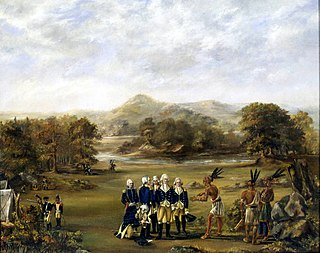
The Northwest Indian War (1786–1795), also known by other names, was an armed conflict for control of the Northwest Territory fought between the United States and a united group of Native American nations known today as the Northwestern Confederacy. The United States Army considers it the first of the American Indian Wars.
Blue Jacket, or Weyapiersenwah, was a war chief of the Shawnee people, known for his militant defense of Shawnee lands in the Ohio Country. Perhaps the preeminent American Indian leader in the Northwest Indian War, in which a pantribal confederacy fought several battles with the nascent United States, he was an important predecessor of the famous Shawnee leader Tecumseh.

The Battle of Fort Recovery, 30 June – 1 July 1794, was a battle of the Northwest Indian War, fought at the present-day village of Fort Recovery, Ohio. A large force of warriors in the Western Confederacy attacked a fort held by United States soldiers deep in Ohio Country. The United States suffered heavy losses, but maintained control of the fort. The battle exposed a division in the Western Confederacy's military strategy at a time when they seemed to hold the advantage, and the United States pressed farther into the Northwest Territory.
Seven Years' War: Habsburg Austrian forces destroy a Prussian reinforcement and supply convoy in the Battle of Domstadtl, helping to expel Prussian King Frederick the Great from Moravia.

The Seven Years' War (1756–1763) was a global conflict that involved most of the European Great Powers, and was fought primarily in Europe, the Americas, and Asia-Pacific. Other concurrent conflicts include the French and Indian War (1754–1763), the Carnatic Wars and the Anglo-Spanish War (1762–1763). The opposing alliances were led by Great Britain and France respectively, both seeking to establish global pre-eminence at the expense of the other. Along with Spain, France fought Britain both in Europe and overseas with land-based armies and naval forces, while Britain's ally Prussia sought territorial expansion in Europe and consolidation of its power. Long-standing colonial rivalries pitting Britain against France and Spain in North America and the West Indies were fought on a grand scale with consequential results. Prussia sought greater influence in the German states, while Austria wanted to regain Silesia, captured by Prussia in the previous war, and to contain Prussian influence.

The Habsburg monarchy, also known as the Danubian monarchy, or Habsburg Empire, was the collection of empires, kingdoms, duchies, counties and other polities that were ruled by the House of Habsburg, especially the dynasty's Austrian branch.
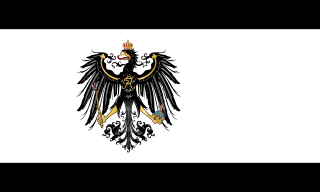
The Kingdom of Prussia was a German kingdom that constituted the state of Prussia between 1701 and 1918. It was the driving force behind the unification of Germany in 1871 and was the leading state of the German Empire until its dissolution in 1918. Although it took its name from the region called Prussia, it was based in the Margraviate of Brandenburg. Its capital was Berlin.

The Battle of Domstadtl was a battle between the Habsburg monarchy and the Kingdom of Prussia in the Moravian village of Domašov nad Bystřicí during the Third Silesian War on 30 June 1758, preceded by a minor clash at Guntramovice (Gundersdorf) on 28 June. Austrians under the command of Major General Ernst Gideon von Laudon and Major General Joseph von Siskovits attacked and destroyed a supply convoy bound for the Prussian army besieging Olomouc (Olmütz). The Austrian victory saved the city and the Prussian King Frederick the Great was forced to leave Moravia.

Frederick II was King in Prussia from 1740 until 1772, and King of Prussia from 1772 until his death in 1786. His most significant accomplishments include his military successes in the Silesian wars, his re-organisation of the Prussian Army, the First Partition of Poland, and his patronage of the arts and the Enlightenment. Frederick was the last Hohenzollern monarch titled King in Prussia, declaring himself King of Prussia after annexing Polish Prussia from the Polish–Lithuanian Commonwealth in 1772. Prussia greatly increased its territories and became a major military power in Europe under his rule. He became known as Frederick the Great and was nicknamed "Old Fritz".

Moravia is a historical region in the east of the Czech Republic and one of three historical Czech lands, with Bohemia and Czech Silesia.
The Immortal Seven issue the Invitation to William, which would culminate in the Glorious Revolution.
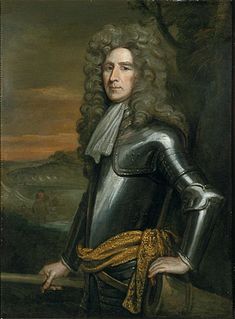
The Invitation to William was a letter sent by seven notable English nobles, later called "the Immortal Seven", to stadtholder William III, Prince of Orange, received by him on 30 June 1688. In England, the heir apparent to the throne, James Francis Edward Stuart, had just been born to the unpopular King James II of England, and baptised a Catholic. The letter asked William, who was a nephew and son-in-law of James II, to use military intervention to force the king to make his eldest daughter, Mary, William's Protestant wife, his heir. The letter alleged that the newborn prince was an impostor.

The Glorious Revolution, also known as the Glorieuze Overtocht or Glorious Crossing in the Netherlands, is the sequence of events leading to the deposition of King James II and VII of England and Scotland in November 1688, and his replacement by his daughter Mary II and her husband and James's nephew William III of Orange, de facto ruler of the Dutch Republic. A term first used by John Hampden in late 1689, it has been notable in the years since for having been described as the last successful invasion of England as well as an internal coup, with differing interpretations from the Dutch and English perspectives respectively.
The Deluge: Khmelnytsky Uprising: The Battle of Berestechko ends with a Polish victory.

The Deluge was a series of mid-17th-century military campaigns in the Polish–Lithuanian Commonwealth. In a wider sense it applies to the period between the Khmelnytsky Uprising of 1648 and the Truce of Andrusovo in 1667, thus comprising the Polish theatres of the Russo-Polish and Second Northern Wars. In a stricter sense, the term refers to the Swedish invasion and occupation of the Commonwealth as a theatre of the Second Northern War (1655–1660) only; in Poland and Lithuania this period is called the Swedish Deluge, or less commonly the Russo–Swedish Deluge due to the simultaneous Russo-Polish War. The term "deluge" was popularized by Henryk Sienkiewicz in his novel The Deluge (1886).

The Khmelnytsky Uprising, also known as the Cossack–Polish War, the Chmielnicki Uprising, the Khmelnytsky massacre or the Khmelnytsky insurrection, was a Cossack rebellion that took place between 1648 and 1657 in the eastern territories of the Polish–Lithuanian Commonwealth, which led to the creation of a Cossack Hetmanate in Ukraine. Under the command of Hetman Bohdan Khmelnytsky, the Zaporozhian Cossacks, allied with the Crimean Tatars and local Ukrainian peasantry, fought against Polish domination and Commonwealth forces. The insurgency was accompanied by mass atrocities committed by Cossacks against the civilian population, especially against the Roman Catholic clergy and the Jews, as well as savage reprisals by Jeremi Wiśniowiecki, Voivode of Ruthenia.

The Battle of Berestechko was fought between the Ukrainian Cossacks, led by Hetman Bohdan Khmelnytsky, aided by their Crimean Tatar allies, and a Polish army under King John II Casimir. It was a battle of a Cossack rebellion in Ukraine that took place in the years 1648–1657 after the expiration of a two-year truce. Fought from 28 to 30 June 1651, the battle took place in the province of Volhynia, on the hilly plain south of the Styr River. The Polish camp was on the river opposite Berestechko and faced south, towards the Cossack army about two kilometers away, whose right flank was against the River Pliashivka (Pliashova) and the Tatar army on their left flank. It is considered to have been among the largest European land battles of the 17th century.
The University of Tartu is founded.

The University of Tartu is a university in the city of Tartu in Estonia. It is the national university of Estonia. It is the only classical university in the country, and also its biggest and most prestigious university. It was founded under the name of Academia Gustaviana in 1632 by Baron Johan Skytte, the Governor-General (1629–1634) of Swedish Livonia, Ingria, and Karelia, with the required ratification provided by his long-time friend and former student – from age 7 –, King Gustavus Adolphus, shortly before the king's death on 6 November in the Battle of Lützen (1632), during the Thirty Years' War (1618–1648).
The Spanish held Castillo San Felipe del Morro in San Juan, Puerto Rico having been besieged for fifteen days, surrenders to an English force under Sir George Clifford, Earl of Cumberland.

Castillo San Felipe del Morro, also known as El Morro, is a citadel built between 16th and 18th centuries in San Juan, Puerto Rico.
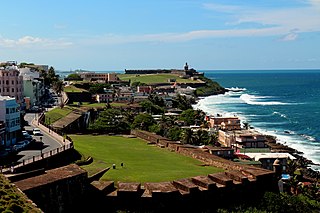
San Juan is the capital city and most populous municipality in the Commonwealth of Puerto Rico, an unincorporated territory of the United States. As of the 2020 census, it is the 57th-largest city under the jurisdiction of the United States, with a population of 342,259. San Juan was founded by Spanish colonists in 1521, who called it Ciudad de Puerto Rico.

Puerto Rico, officially the Commonwealth of Puerto Rico, is a Caribbean island and unincorporated territory of the United States. It is located in the northeast Caribbean Sea, approximately 1,000 miles (1,600 km) southeast of Miami, Florida, between the Dominican Republic and the U.S. Virgin Islands, and includes the eponymous main island and several smaller islands, such as Mona, Culebra, and Vieques. It has roughly 3.2 million residents, and its capital and most populous city is San Juan. Spanish and English are the official languages of the executive branch of government, though Spanish predominates.

The Battle of San Juan was a military and naval action on June 15, 1598 when an English force of 20 ships and 1,700 men under Sir George Clifford, Earl of Cumberland, overwhelmed and took the Spanish fortress Castillo San Felipe del Morro and thus took the city of San Juan, Puerto Rico. They were able to hold the castle for 65 days but disease took its toll and the English forces left, but not before sacking and burning San Juan to the ground. It was this attack that proved to be the only one to ever break through and capture El Morro castle.

Sir George Clifford, 3rd Earl of Cumberland, 13th Baron de Clifford, 13th Lord of Skipton,, was an English peer, naval commander, and courtier of Queen Elizabeth I of England. He was notable at court for his jousting, at the Accession Day Tilts, which were highlights of the year at court. Two famous survivals, his portrait miniature by Nicholas Hilliard and a garniture of Greenwich armour, reflect this important part of his life. In contrast, he neglected his estates in the far north of England, and left a long succession dispute between his heirs.
During a jousting match, King Henry II of France was mortally wounded when fragments of Gabriel Montgomery's lance pierced his eye.

Jousting is a martial game or hastilude between two horse riders wielding lances with blunted tips, often as part of a tournament. The primary aim was to replicate a clash of heavy cavalry, with each participant trying to strike the opponent while riding towards him at high speed, breaking the lance on the opponent's shield or jousting armour if possible, or unhorsing him. The joust became an iconic characteristic of the knight in Romantic medievalism. The participants experience close to three and a quarter times their body weight in G-forces when the lances collide with their armour.
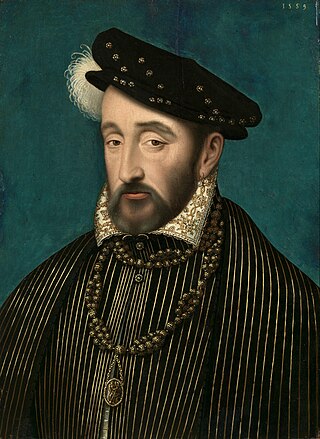
Henry II was King of France from 31 March 1547 until his death in 1559. The second son of Francis I and Duchess Claude of Brittany, he became Dauphin of France upon the death of his elder brother Francis in 1536.
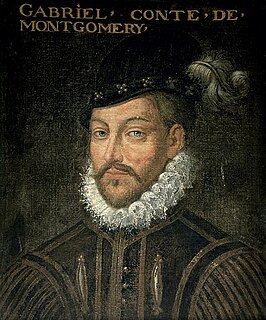
Gabriel de Lorges, Count of Montgomery, Lord of Lorges and Ducey, was a French nobleman of Scottish extraction and captain of the Scots Guard of King Henry II of France. He is remembered for mortally injuring Henry II in a jousting accident and subsequently converting to Protestantism, the faith that the Scots Guard sought to suppress. He became a leader of the Huguenots. In French-language contexts, his name is spelled Montgommery.
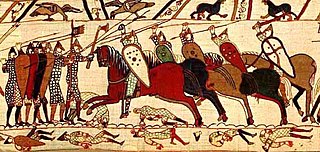
A lance is a spear designed to be used by a mounted warrior or cavalry soldier (lancer). In ancient and medieval warfare, it evolved into the leading weapon in cavalry charges, and was unsuited for throwing or for repeated thrusting, unlike similar weapons of the javelin and pike family typically used by infantry. Lances were often equipped with a vamplate, a small circular plate to prevent the hand sliding up the shaft upon impact, and beginning in the late 14th century were used in conjunction with a lance rest attached to the breastplate. Though best known as a military and sporting weapon carried by European knights and men-at-arms, the use of lances was widespread throughout Asia, the Middle East, and North Africa wherever suitable mounts were available. Lancers of the medieval period also carried secondary weapons such as swords, battle axes, war hammers, maces and daggers for use in hand-to-hand combat, since the lance was often a one-use-per-engagement weapon; assuming the lance survived the initial impact without breaking, it was often too long, heavy, and slow to be effective against opponents in a melee.
King Henry II of France is mortally wounded in a jousting match against Gabriel, comte de Montgomery.

Henry II was King of France from 31 March 1547 until his death in 1559. The second son of Francis I and Duchess Claude of Brittany, he became Dauphin of France upon the death of his elder brother Francis in 1536.

Jousting is a martial game or hastilude between two horse riders wielding lances with blunted tips, often as part of a tournament. The primary aim was to replicate a clash of heavy cavalry, with each participant trying to strike the opponent while riding towards him at high speed, breaking the lance on the opponent's shield or jousting armour if possible, or unhorsing him. The joust became an iconic characteristic of the knight in Romantic medievalism. The participants experience close to three and a quarter times their body weight in G-forces when the lances collide with their armour.

Gabriel de Lorges, Count of Montgomery, Lord of Lorges and Ducey, was a French nobleman of Scottish extraction and captain of the Scots Guard of King Henry II of France. He is remembered for mortally injuring Henry II in a jousting accident and subsequently converting to Protestantism, the faith that the Scots Guard sought to suppress. He became a leader of the Huguenots. In French-language contexts, his name is spelled Montgommery.
Spanish forces defeat a combined French and Navarrese army at the Battle of Noáin during the Spanish conquest of Iberian Navarre.

The Kingdom of France is the historiographical name or umbrella term given to various political entities of France in the medieval and early modern period. It was one of the most powerful states in Europe since the High Middle Ages. It was also an early colonial power, with possessions around the world.

The Kingdom of Navarre, originally the Kingdom of Pamplona, was a Basque kingdom that occupied lands on both sides of the western Pyrenees, alongside the Atlantic Ocean between present-day Spain and France.
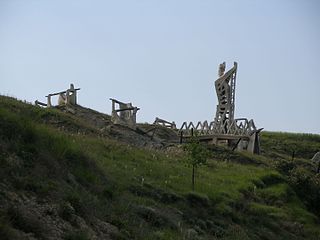
The Battle of Noáin or the Battle of Esquiroz, fought on 30 June 1521 was the only open field battle in the Spanish conquest of Iberian Navarre. It was a decisive victory for the Spanish against the Franco-Navarrese army.

The Spanish conquest of the Iberian part of Navarre was initiated by Ferdinand II of Aragon and completed by his grandson and successor Charles V in a series of military campaigns lasting from 1512 to 1524. Ferdinand was both the king of Aragon and regent of Castile in 1512. When Pope Julius II declared a Holy League against France in late 1511, Navarre attempted to remain neutral. Ferdinand used this as an excuse to attack Navarre, conquering it while its potential protector, France, was beset by England, Venice, and Ferdinand's own Italian armies.
Battle of Arbedo between the duke of Milan and the Swiss cantons.

The Battle of Arbedo was fought on 30 June 1422 between the Duchy of Milan and the Swiss Confederation, and ended with a Milanese victory.

Milan is a city in northern Italy, capital of Lombardy, and the second-most populous city proper in Italy after Rome. The city proper has a population of about 1.4 million, while its metropolitan city has 3.26 million inhabitants. Its continuously built-up urban area is the fourth largest in the EU with 5.27 million inhabitants. According to national sources, the population within the wider Milan metropolitan area, is estimated between 8.2 million and 12.5 million making it by far the largest metropolitan area in Italy and one of the largest in the EU.

Switzerland, officially the Swiss Confederation;, is a landlocked country located at the confluence of Western, Central and Southern Europe. It is a federal republic composed of 26 cantons, with federal authorities based in Bern.

The 26 cantons of Switzerland are the member states of the Swiss Confederation. The nucleus of the Swiss Confederacy in the form of the first three confederate allies used to be referred to as the Waldstätte. Two important periods in the development of the Old Swiss Confederacy are summarized by the terms Acht Orte and Dreizehn Orte.
The Byzantine army of emperor Constantine V defeats the Bulgarian forces in the Battle of Anchialus.
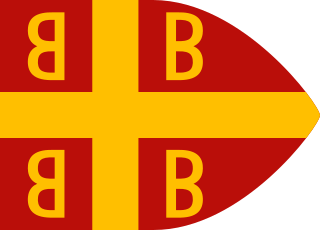
The Byzantine Empire, also referred to as the Eastern Roman Empire or Byzantium, was the continuation of the Roman Empire in its eastern provinces during Late Antiquity and the Middle Ages, when its capital city was Constantinople. It survived the fragmentation and fall of the Western Roman Empire in the 5th century AD and continued to exist for an additional thousand years until the fall of Constantinople to the Ottoman Empire in 1453. During most of its existence, the empire remained the most powerful economic, cultural, and military force in Europe. The terms "Byzantine Empire" and "Eastern Roman Empire" were coined after the end of the realm; its citizens continued to refer to their empire as the Roman Empire, and to themselves as Romans—a term which Greeks continued to use for themselves into Ottoman times. Although the Roman state continued and its traditions were maintained, modern historians distinguish Byzantium from its earlier incarnation because it was centered on Constantinople, oriented towards Greek rather than Latin culture, and characterised by Eastern Orthodox Christianity.

Constantine V, was Byzantine emperor from 741 to 775. His reign saw a consolidation of Byzantine security from external threats. As an able military leader, Constantine took advantage of civil war in the Muslim world to make limited offensives on the Arab frontier. With this eastern frontier secure, he undertook repeated campaigns against the Bulgars in the Balkans. His military activity, and policy of settling Christian populations from the Arab frontier in Thrace, made Byzantium's hold on its Balkan territories more secure.
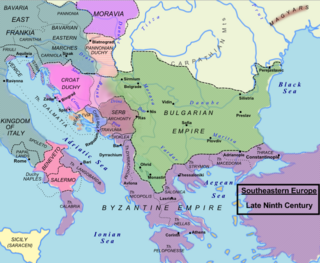
The First Bulgarian Empire was a medieval Bulgar-Slavic and later Bulgarian state that existed in Southeastern Europe between the 7th and 11th centuries AD. It was founded in 680–681 after part of the Bulgars, led by Asparuh, moved south to the northeastern Balkans. There they secured Byzantine recognition of their right to settle south of the Danube by defeating – possibly with the help of local South Slavic tribes – the Byzantine army led by Constantine IV. During the 9th and 10th century, Bulgaria at the height of its power spread from the Danube Bend to the Black Sea and from the Dnieper River to the Adriatic Sea and became an important power in the region competing with the Byzantine Empire. It became the foremost cultural and spiritual centre of south Slavic Europe throughout most of the Middle Ages.
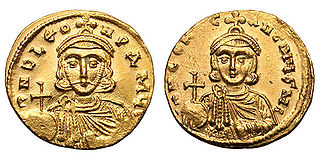
The battle of Anchialus occurred in 763, near the town of Pomorie on the Bulgarian Black Sea Coast. The result was a Byzantine victory.
Pope Marcellinus begins his papacy.
Pope Marcellinus was the bishop of Rome from 30 June 296 to his death in 304. A historical accusation was levelled at him by some sources to the effect that he might have renounced Christianity during Emperor Diocletian's persecution of Christians before repenting afterwards, which would explain why he is omitted from lists of martyrs. The accusation is rejected, among others, by Augustine of Hippo. He is today venerated as a saint in the Catholic Church and in the Serbian Orthodox Church.
Technoblade, American YouTuber and streamer (b. 1999) deaths

Alexander, known online as Technoblade, was an American YouTuber known for his Minecraft videos, livestreams, and involvement in the Dream SMP. Technoblade registered his main channel on YouTube in 2013. His content focused on Minecraft gameplay, particularly on the minigame server Hypixel. After rising to popularity in 2019 for his performances in player versus player events, Technoblade was invited to the Dream SMP Minecraft server in 2020, further increasing his following. He is widely regarded by the game's community as one of the best Minecraft players.
Raj Kaushal, Indian Film Director and Producer (b. 1971) deaths

Raj Kaushal was an Indian director, producer who was active during the 1990s and mid 2000s. He was married to actress and TV presenter Mandira Bedi. He died on 30 June 2021 due to a heart attack.
Smoke Dawg, Canadian rapper (b. 1996) deaths
Jahvante Jahqwane Sheldon Smart, known professionally as Smoke Dawg, was a Canadian rapper, singer and songwriter from Toronto, Ontario. Smoke Dawg was a part of hip hop collective Halal Gang alongside Mustafa the Poet, Puffy L'z, Safe and Mo-G who come together with the Prime Boys to make the supergroup Full Circle. His debut and only studio album Struggle Before Glory was released posthumously in 2018.
Barry Norman, English television presenter (b. 1933) deaths

Barry Leslie Norman was a British film critic, television presenter and journalist. He presented the BBC's cinema review programme, Film..., from 1972 to 1998.
Simone Veil, French lawyer and politician (b. 1927) deaths

Simone Veil was a French magistrate and politician who served as Health Minister in several governments and was President of the European Parliament from 1979 to 1982, the first woman to hold that office. As health minister, she is best remembered for advancing women's rights in France, in particular for the 1975 law that legalized abortion, today known as Veil Act. From 1998 to 2007, she was a member of the Constitutional Council, France’s highest legal authority.
Charles W. Bagnal, American general (b. 1934) deaths
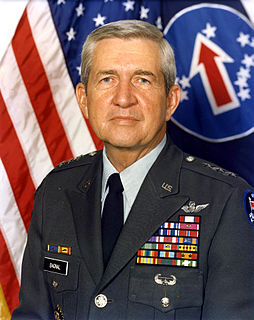
Lieutenant General Charles Wilson Bagnal was a United States Army officer. He was commander of the United States Army Western Command, from 1985 to 1989. Previously he was Deputy Commanding General for Training of the United States Army Training and Doctrine Command (TRADOC), Deputy Superintendent at the United States Military Academy, Commander of the 101st Airborne Division (1981-1983), Commander of the Officer Personnel Management Directorate for the United States Army Military Personnel Center, and Special Assistant to the Deputy Chief of Staff for Personnel. He is an alumnus of the United States Military Academy, United States Army Command & General Staff College, Georgia Tech, the United States Army War College and McLenaghan High School in Florence, South Carolina. He retired August 31, 1989, and later obtained his juris doctor from the University of South Carolina and practiced law. He resided in Columbia with his wife Patsy. Bagnal died on June 30, 2015 after a battle with leukemia. He was interred at the U.S. Military Academy Cemetery on July 14, 2015.
Robert Dewar, English-American computer scientist and academic (b. 1945) deaths

Robert Berriedale Keith Dewar was an American computer scientist and educator. He helped to develop programming languages and compilers and was an outspoken advocate of freely licensed open-source software. He was a cofounder, CEO, and president of the AdaCore software company. He was also an enthusiastic amateur performer and musician, especially with the Village Light Opera Group in New York City.
Arthur Porter, Canadian physician and academic (b. 1956) deaths
Arthur Thomas Porter IV was a Canadian physician and hospital administrator.
Leonard Starr, American author and illustrator (b. 1925) deaths
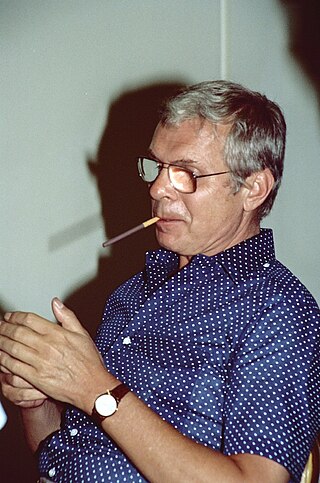
Leonard Starr was an American cartoonist, comic book artist, and advertising artist, best known for creating the newspaper comic strip On Stage and reviving Little Orphan Annie.
Frank Cashen, American businessman (b. 1925) deaths

John Francis "Frank" Cashen was a Major League Baseball general manager. He was an executive when the Baltimore Orioles won the 1966 World Series, and 1970 World Series while winning three consecutive AL pennants from 1969 to 1971. Later he became General Manager of the New York Mets from 1980 to 1991, and the club won the 1986 World Series during his tenure.
Paul Mazursky, American actor, director, producer, and screenwriter (b. 1930) deaths

Irwin Lawrence "Paul" Mazursky was an American film director, screenwriter, and actor. Known for his dramatic comedies that often dealt with modern social issues, he was nominated for five Academy Awards: three times for Best Original Screenplay, once for Best Adapted Screenplay, and once for Best Picture for An Unmarried Woman (1978). His other films include Bob & Carol & Ted & Alice (1969), Blume in Love (1973), Harry and Tonto (1974), Moscow on the Hudson (1984), and Down and Out in Beverly Hills (1986).
Željko Šturanović, Montenegrin lawyer and politician, 31st Prime Minister of Montenegro (b. 1960) deaths

Željko Šturanović was a Montenegrin politician who was the Prime Minister of Montenegro from 2006 until his resignation in 2008.
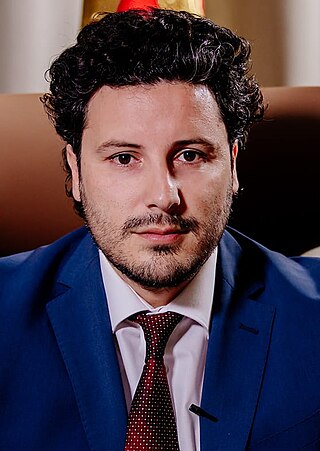
The prime minister of Montenegro, officially the president of the Government of Montenegro, is the head of the government of Montenegro. The role of the prime minister is to direct the work of the government, and to submit to the Parliament the government's program, which includes a list of proposed ministers. The resignation of the prime minister would cause the dissolution of his government.
Alan Campbell, Baron Campbell of Alloway, English lawyer and judge (b. 1917) deaths

Alan Robertson Campbell, Baron Campbell of Alloway ERD QC was a British judge, barrister and author who sat in the House of Lords as a life peer.
Akpor Pius Ewherido, Nigerian politician (b. 1963) deaths
Akpor Pius Ewherido was a Nigerian politician. He was elected Senator for Delta Central Senatorial District in the April 2011 national elections, running on the Democratic People's Party (DPP) platform.
Kathryn Morrison, American educator and politician (b. 1942) deaths
Kathryn Morrison was an American educator and Democratic Party politician who was the first woman to be elected to serve in the Wisconsin Senate. Morrison was born in Madison, Wisconsin, and graduated from Madison East High School. Morrison was elected November 1974, seated January 1975 and served one term representing the 17th District.
Thompson Oliha, Nigerian footballer (b. 1968) deaths
Thompson Oliha was a Nigerian professional footballer who played as a midfielder for clubs in Africa and Europe during an injury-shortened career.
Keith Seaman, Australian politician, 29th Governor of South Australia (b. 1920) deaths
Sir Keith Douglas Seaman was Governor of South Australia from 1 September 1977 until 28 March 1982. He was the second successive governor to have been a minister of religion, Seaman being a minister in then recently merged Uniting Church in Australia.
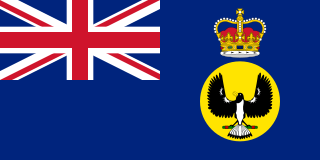
The governor of South Australia is the representative in South Australia of the Monarch of Australia, currently King Charles III. The governor performs the same constitutional and ceremonial functions at the state level as does the governor-general of Australia at the national level. In accordance with the conventions of the Westminster system of parliamentary government, the governor nearly always acts solely on the advice of the head of the elected government, the Premier of South Australia. Nevertheless, the governor retains the reserve powers of the Crown, and has the right to dismiss the Premier. As from June 2014, the Queen, upon the recommendation of the Premier, accorded all current, future and living former governors the title 'The Honourable' for life. The first six governors oversaw the colony from proclamation in 1836, until self-government and an elected Parliament of South Australia was granted in the year prior to the inaugural 1857 election.
Michael Abney-Hastings, 14th Earl of Loudoun, English-Australian politician (b. 1942) deaths

Michael Edward Abney-Hastings, 14th Earl of Loudoun, was a British-Australian farmer, who is most noted because of the 2004 documentary Britain's Real Monarch, which alleged he was the rightful monarch of England instead of Queen Elizabeth II. From February 1960 until November 2002, he held the courtesy title Lord Mauchline.
Yitzhak Shamir, Israeli politician, 7th Prime Minister of Israel (b. 1915) deaths

Yitzhak Shamir was an Israeli politician and the seventh Prime Minister of Israel, serving two terms, 1983–1984 and 1986–1992. Before the establishment of the State of Israel, Shamir was a leader of the Zionist paramilitary and terrorist organisation Lehi. After the establishment of the Israeli state he served in the Mossad between 1955 and 1965 and as a Knesset member. He served as the sixth Speaker of the Knesset, and as foreign affairs minister. Shamir was the country's third-longest-serving prime minister, after Benjamin Netanyahu and David Ben-Gurion.

This article lists the prime ministers of Israel since the adoption of the Israeli Declaration of Independence in 1948.
Michael J. Ybarra, American journalist and author (b. 1966) deaths
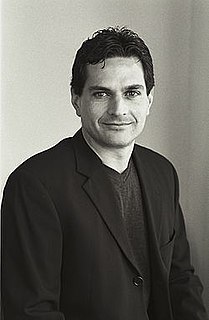
Michael Jay Ybarra was an American journalist, author and adventurer whose non-fiction work appeared in various national publications. In 2004, his book about McCarthyism, Washington Gone Crazy: Senator Pat McCarran and the Great American Communist Hunt, won the D.B. Hardeman Prize. As the extreme sports correspondent for The Wall Street Journal, Ybarra wrote articles about outdoor adventure, providing the genre with a wider audience than it typically receives.
Pina Bausch, German dancer, choreographer, and director (b. 1940) deaths
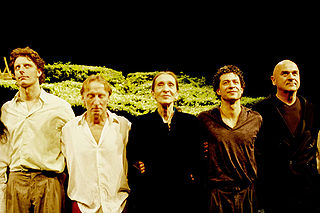
Philippine "Pina" Bausch was a German dancer and choreographer who was a significant contributor to a neo-expressionist dance tradition now known as Tanztheater. Bausch's approach was noted for a stylized blend of dance movement, prominent sound design, and involved stage sets, as well as for engaging the dancers under her to help in the development of a piece, and her work had an influence on modern dance from the 1970s forward. Her work, regarded as a continuation of the European and American expressionist movements, incorporated many expressly dramatic elements and often explored themes connected to trauma, particularly trauma arising out of relationships. She created the company Tanztheater Wuppertal Pina Bausch, which performs internationally.
Harve Presnell, American actor and singer (b. 1933) deaths

George Harvey Presnell was an American actor and singer. He began his career in the mid-1950s as a classical baritone, singing with orchestras and opera companies throughout the United States.
Sahib Singh Verma, Indian librarian and politician, 4th Chief Minister of Delhi (b. 1943) deaths
Sahib Singh Verma was an Indian politician and the former senior vice-president of the Bharatiya Janata Party. He served as Chief Minister of Delhi (1996–1998) and was member of 13th Lok Sabha, Parliament of India (1999–2004). He served as the Union Labour Minister of India.

The chief minister of the National Capital Territory of Delhi is the head of government of the National Capital Territory of Delhi. According to the Constitution of India, the lieutenant governor is the National Capital Territory of Delhi's de jure head, but de facto executive authority rests with its chief minister. Following elections to the Delhi Legislative Assembly, the lieutenant governor usually invites the party with a majority of seats to form the government. The president of India, on the advice of the lieutenant governor, appoints the chief minister, whose council of ministers are collectively responsible to the assembly. Given that the person has the confidence of the assembly, the chief minister's term is for five years and is subject to no term limits.
Eddie Burns, Australian rugby league player (b. 1916) deaths

Eddie Burns was an Australian rugby league footballer and coach of the mid 20th century. A New South Wales representative prop-forward, he played for the Canterbury-Bankstown club of the NSWRFL Premiership, later becoming their coach.
Buddy Hackett, American actor and comedian (b. 1924) deaths

Buddy Hackett was an American actor, comedian and singer. His best remembered roles include Marcellus Washburn in The Music Man (1962), Benjy Benjamin in It's a Mad, Mad, Mad, Mad World (1963), Tennessee Steinmetz in The Love Bug (1968), and the voice of Scuttle in The Little Mermaid (1989).
Robert McCloskey, American author and illustrator (b. 1915) deaths
John Robert McCloskey was an American writer and illustrator of children's books. He both wrote and illustrated eight picture books, and won two Caldecott Medals from the American Library Association for the year's best-illustrated picture book. Four of the eight books were set in Maine: Blueberries for Sal, One Morning in Maine, Time of Wonder, and Burt Dow, Deep-water Man. His best-known work is Make Way For Ducklings, set in Boston. In longer works, he both wrote and illustrated Homer Price and he illustrated Keith Robertson's Henry Reed series.
Chico Xavier, Brazilian medium and author (b. 1910) deaths
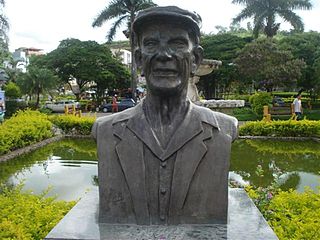
Chico Xavier or Francisco Cândido Xavier, born Francisco de Paula Cândido, was a popular Brazilian philanthropist and spiritist medium. During a period of 60 years he wrote over 490 books and several thousand letters claiming to use a process known as "psychography". Books based on old letters and manuscripts were published posthumously, bringing the total number of books to 496.
Chet Atkins, American singer-songwriter, guitarist, and producer (b. 1924) deaths

Chester Burton Atkins, known as "Mr. Guitar" and "The Country Gentleman", was an American musician who, along with Owen Bradley and Bob Ferguson, helped create the Nashville sound, the country music style which expanded its appeal to adult pop music fans. He was primarily a guitarist, but he also played the mandolin, fiddle, banjo, and ukulele, and occasionally sang.
Joe Henderson, American saxophonist and composer (b. 1937) deaths
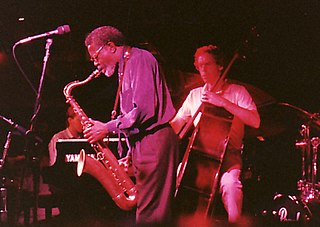
Joe Henderson was an American jazz tenor saxophonist. In a career spanning more than four decades, Henderson played with many of the leading American players of his day and recorded for several prominent labels, including Blue Note, Milestone, and Verve.
Tom Davies, English footballer births

Thomas Davies is an English professional footballer who plays as a central midfielder for Premier League club Everton. He was a former England national under-21 team player. Davies is an academy graduate of Everton and made his first-team debut in April 2016 at the age of 17. Two years later, he became the youngest player to captain the side, doing so at the age of 20 years and 60 days.
Reuben Garrick, Australian rugby league player births
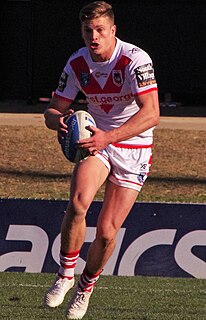
Reuben Garrick is an Australian rugby league footballer who plays as a winger and fullback for the Manly Warringah Sea Eagles in the NRL.
Lakis Petropoulos, Greek footballer and manager (b. 1932) deaths
Lakis Petropoulos was a Greek football player and manager. He played for Panathinaikos and capped 3 times for Greece. He was also member of the national side for the 1952 Olympic Games, but he did not play in any matches.
Georgy Beregovoy, Ukrainian general and astronaut (b. 1921) deaths

Georgy Timofeyevich Beregovoy was a Soviet cosmonaut who commanded the space mission Soyuz 3 in 1968. At the time of his flight, Beregovoy was 47 years of age: he was the earliest-born human to go to orbit, being born three months and three days earlier than the second earliest-born man in orbit – John Glenn, but later than X-15 pilot Joe Walker who made 2 suborbital space flights.
Gale Gordon, American actor and voice artist (b. 1906) deaths

Gale Gordon was an American character actor perhaps best remembered as Lucille Ball's longtime television foil—and particularly as cantankerously combustible, tightfisted bank executive Theodore J. Mooney, on Ball's second television situation comedy, The Lucy Show. Gordon also appeared in I Love Lucy and had starring roles in Ball's successful third series Here's Lucy and her short-lived fourth and final series Life with Lucy.
Asbel Kiprop, Kenyan runner births
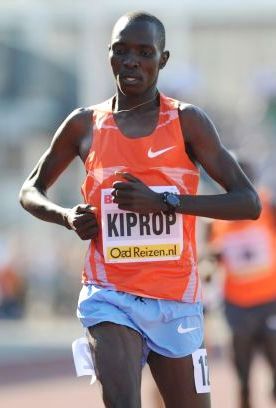
Asbel Kipruto Kiprop is a Kenyan middle-distance runner, who specialises in the 1500 metres. He was awarded the 1500 m gold medal at the 2008 Summer Olympics after the original winner, Rashid Ramzi, tested positive for doping. Kiprop has won three World Championship titles in the event, in 2011, 2013 and 2015. Kiprop failed his own doping test in November 2017 and received a four-year doping ban.
Steffen Liebig, German rugby player births
Steffen Liebig is a German international rugby union player, playing for the Heidelberger RK in the Rugby-Bundesliga and the German national rugby union team.
David Myers, Australian footballer births

David Myers is a former professional Australian rules footballer who played for the Essendon Football Club in the Australian Football League (AFL).
Elisa Jordana, American singer-songwriter, radio and TV personality births

Elisa Ann Schwartz, mostly known by her stage name Elisa Jordana, is an American radio and TV personality, musician, writer, and online talk-show host. She is best known for her appearances on The Howard Stern Show and as a former member of the dance-pop band Cobra Starship.
Ryan Cook, American baseball player births

Ryan William Cook, nicknamed "Cookie", is an American former professional baseball pitcher. He played for the Arizona Diamondbacks, Oakland Athletics, Boston Red Sox and Seattle Mariners of Major League Baseball (MLB) and for the Yomiuri Giants of Nippon Professional Baseball (NPB). He was an MLB All-Star in 2012.
Andrew Hedgman, New Zealand runner births
Andrew Hedgman is a New Zealand born ultramarathon runner who resides in Brisbane, Australia. He is also a licensed Skydiver and Scuba diver.
Alicia Fox, American wrestler, model, and actress births

Victoria Crawford is an American retired professional wrestler and former model known for her time with WWE under the ring name Alicia Fox.
Fredy Guarín, Colombian footballer births

Fredy Alejandro Guarín Vásquez is a Colombian former professional footballer. A versatile player, he was comfortable as a central, defensive or right midfielder.
Nicola Pozzi, Italian footballer births

Nicola Pozzi is an Italian professional footballer who currently plays as a striker for San Donato.
Allegra Versace, Italian-American businesswoman births
Allegra Versace Beck, commonly known as Allegra Versace, is an Italian-American heiress and socialite. Since 2011 Allegra has been a director of Gianni Versace S.p.A. and has worked in New York City as a theatrical dresser.
Trevor Ariza, American basketball player births

Trevor Anthony Ariza is an American professional basketball player who last played for the Los Angeles Lakers of the National Basketball Association (NBA). He won an NBA championship in his first stint with the Lakers in 2009. He played college basketball for one season with the UCLA Bruins before being selected as the 43rd pick of the 2004 NBA draft by the New York Knicks. He also previously played for the Orlando Magic, Houston Rockets, New Orleans Hornets, Washington Wizards, Phoenix Suns, Sacramento Kings, Portland Trail Blazers, and Miami Heat.
Michael Phelps, American swimmer births

Michael Fred Phelps II is an American former competitive swimmer. He is the most successful and most decorated Olympian of all time with a total of 28 medals. Phelps also holds the all-time records for Olympic gold medals (23), Olympic gold medals in individual events (13), and Olympic medals in individual events (16). When Phelps won eight gold medals at the 2008 Beijing Games, he broke fellow American swimmer Mark Spitz's 1972 record of seven first-place finishes at any single Olympic Games. At the 2004 Summer Olympics in Athens, Phelps already tied the record of eight medals of any color at a single Games by winning six gold and two bronze medals. At the 2012 Summer Olympics in London, Phelps won four gold and two silver medals, and at the 2016 Summer Olympics in Rio de Janeiro, he won five gold medals and one silver. This made him the most successful athlete of the Games for the fourth Olympics in a row.
Cody Rhodes, American wrestler births

Cody Garrett Runnels Rhodes is an American professional wrestler and actor. He is currently signed to WWE, where he performs on the Raw brand. Rhodes is also known for his time in All Elite Wrestling (AEW), where he served as an executive vice president and was the inaugural and three-time AEW TNT Champion.
Fabiana Vallejos, Argentinian footballer births

Fabiana Gisela Vallejos is an Argentine footballer who plays for Boca Juniors as a midfielder.
Haruo Remeliik, Palauan politician, 1st President of Palau (b. 1933) deaths

Haruo Ignacio Remeliik was a politician from Palau. He served as the first President of Palau from 2 March 1981 until his assassination on 30 June 1985. He is buried at Kloulklubed in his home state of Peleliu. Remeliik was of mixed Japanese and Palauan descent.

The president of the Republic of Palau is the head of state and head of government of Palau. The president is directly elected to a four-year term, and can be reelected once in a consecutive manner.
Fantasia Barrino, American singer-songwriter and actress births

Fantasia Monique Barrino-Taylor, known professionally by her mononym Fantasia, is an American R&B singer and actress. She rose to fame as the winner of the third season of the reality television series American Idol in 2004. Following her victory, she released her debut single, "I Believe", which debuted at number one on the Billboard Hot 100. Subsequently, she released her debut album, Free Yourself, which went on to be certified Platinum by the RIAA and earned Barrino three Grammy nominations in 2006.
Tunku Ismail Idris, Crown Prince of Johor, Malaysia births

Tunku Ismail Idris Abdul Majid Abu Bakar Iskandar ibni Sultan Ibrahim Ismail is the Tunku Mahkota of Johor, heir apparent and first in line of succession to the throne of Johor. He is the eldest son of the current Sultan of Johor, Sultan Ibrahim Ismail and his consort Permaisuri (Queen) of Johor, Raja Zarith Sofiah. He is the grandson of both Sultan Iskandar of Johor and Sultan Idris Shah II of Perak.
Lillian Hellman, American author and playwright (b. 1905) deaths
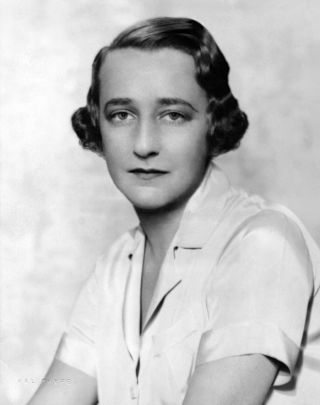
Lillian Florence Hellman was an American playwright, prose writer, memoirist and screenwriter known for her success on Broadway, as well as her communist sympathies and political activism. She was blacklisted after her appearance before the House Committee on Un-American Activities (HUAC) at the height of the anti-communist campaigns of 1947–1952. Although she continued to work on Broadway in the 1950s, her blacklisting by the American film industry caused a drop in her income. Many praised Hellman for refusing to answer questions by HUAC, but others believed, despite her denial, that she had belonged to the Communist Party.
Marcus Burghardt, German cyclist births

Marcus Burghardt is a former German professional road bicycle racer, who has retired from professional racing as a result of a severe wrist injury suffered at the Tour of Poland in 2021, where he crashed at a roundabout close to the finish of the first stage.
Katherine Ryan, UK-based Canadian comedian and presenter births

Katherine Louisa Ryan is a Canadian comedian, writer, presenter, and actress based in the United Kingdom.
Cheryl, English singer and TV personality births

Cheryl Ann Tweedy is an English singer and television personality. Born and raised in Newcastle upon Tyne, she rose to fame in late 2002 upon winning a place in Girls Aloud, a girl group created through ITV's Popstars: The Rivals. While still in the group, she began a solo career in April 2009, and between then and 2014, she released four studio albums – 3 Words (2009), Messy Little Raindrops (2010), A Million Lights (2012) and Only Human (2014). Collectively, the albums included ten singles, five of which – "Fight for This Love", "Promise This", "Call My Name", "Crazy Stupid Love" and "I Don't Care" – reached the top position on the UK Singles Chart. Cheryl was the first British female solo artist to have five number-one singles in the UK, and she held the record for the British female solo artist with the most UK number-one singles until Jess Glynne overtook her in 2018.
Lizzy Caplan, American actress births

Elizabeth Anne Caplan is an American actress. Her first acting role was on the television series Freaks and Geeks (1999–2000). She received wider recognition with roles in the films Mean Girls (2004) and Cloverfield (2008), the latter of which earned her a nomination for the Saturn Award for Best Supporting Actress. Caplan also starred on the television shows Related (2005–2006), The Class (2006–2007), and Party Down (2009–2010).
Ignacio Carrasco, Mexican footballer births
Oscar Ignacio Carrasco Sotelo is a Mexican footballer who last played as a midfielder for Venados F.C. in Ascenso MX. He had previously played for a number of teams in the Mexican second tier after having played for Monarcas Morelia in Liga MX.
Can Artam, Turkish race car driver births
Can Artam is a Turkish race car driver born into a car racing family. He raced in the 2005 GP2 Series for the iSport team and was the 2001 US Barber Formula Dodge champion.
Matt Kirk, Canadian football player births
Matt Kirk is a Canadian football defensive tackle who is currently a free agent. He most recently played for the Hamilton Tiger-Cats of the Canadian Football League. He was drafted by the Ottawa Renegades in the 2004 CFL Draft. He played CIS Football at Queen's.
Barbora Špotáková, Czech javelin thrower births

Barbora Špotáková is a former Czech track and field athlete who competed in the javelin throw. She is a two-time Olympic Champion and three-time World Champion, as well as the current world record holder with a throw of 72.28 m.
Ben Utecht, American football player births

Benjamin Jeffrey Utecht is a former American football player and current singer. Utecht was a tight end for the Indianapolis Colts and the Cincinnati Bengals. He was signed by the Indianapolis Colts as an undrafted free agent in 2004. He played college football at Minnesota. Utecht has also played for the Cincinnati Bengals. He earned a Super Bowl ring with the Colts in Super Bowl XLI over the Chicago Bears.
Rade Prica, Swedish footballer births
Rade Stanislav Prica is a Swedish former professional footballer who played as a striker. He is the only player who has won league championships in the three Scandinavian countries – Sweden, Denmark and Norway. He also played in the Bundesliga, the Premier League, and the Israeli Premier League during a career that spanned between 1995 and 2016. A full international between 2001 and 2008, he won 14 caps and scored two goals for the Sweden national team.
Seyi Olofinjana, Nigerian footballer births

Seyi George Olofinjana is a Nigerian former footballer who played as a midfielder.
Ryan ten Doeschate, Dutch cricketer births
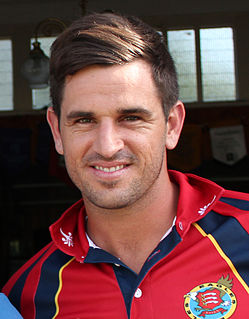
Ryan Neil ten Doeschate is a former Dutch–South African cricketer who played for the Netherlands national cricket team in One Day International (ODI) and Twenty20 International (T20I) cricket. Ten Doeschate was named ICC Associate Player of the Year on a record three occasions, in 2008, 2010, and 2011.
Sylvain Chavanel, French cyclist births

Sylvain Chavanel is a French former professional road bicycle racer, who rode professionally between 2000 and 2018 for the Cofidis, Omega Pharma–Quick-Step, IAM Cycling and two spells with the Brioches La Boulangère/Direct Énergie team. His brother Sébastien Chavanel also rode as a professional cyclist. Sylvain Chavanel was noted as a strong all-rounder who won both sprints and time-trials, and was a good northern classics rider, taking 45 wins during his professional career.
Ben Cousins, Australian footballer births

Benjamin Luke Cousins is a former professional Australian rules footballer who played for West Coast and Richmond in the Australian Football League (AFL).
Patrick Ivuti, Kenyan runner births

Patrick Mukutu Ivuti is a Kenyan long distance athlete, who currently resides in Nairobi, Kenya. A two-time silver medallist at the IAAF World Cross Country Championships, he made his marathon debut in 2005 and had his first major victory at the Chicago Marathon in 2007. He had back-to-back wins at the Honolulu Marathon in 2008–2009 and was the 2009 winner of the Prague Marathon.
Claudio Rivalta, Italian footballer births
Claudio Rivalta is a retired Italian football defender. He represented Italy at the 2000 Summer Olympics.
Firpo Marberry, American baseball player and umpire (b. 1898) deaths

Frederick "Firpo" Marberry was an American right-handed starting and relief pitcher in Major League Baseball from 1923 to 1936, most notably with the Washington Senators. The sport's first prominent reliever, he has been retroactively credited as having been the first pitcher to record 20 saves in a season, the first to make 50 relief appearances in a season or 300 in a career, and the only pitcher to lead the major leagues in saves six times. Since relief pitching was still seen as a lesser calling in a time when starters were only removed when clearly ineffective, Marberry also started 187 games in his career, posting a 94–52 record as a starter for a .644 winning percentage. He pitched in later years for the Detroit Tigers (1933–1935) and New York Giants (1936) before ending his career in Washington.
James Bannatyne, New Zealand footballer births
James Bannatyne is a former New Zealand association football goalkeeper. He last played for Team Wellington in the New Zealand Football Championship. Bannatyne is currently the assistant coach for Western Springs AFC in Auckland. He represented New Zealand at international level, generally as backup to Glen Moss and Mark Paston.
Ralf Schumacher, German race car driver births

Ralf Schumacher is a German former racing driver. He is the younger brother of seven-time Formula One World Champion Michael Schumacher, and the pair are the only siblings to each win Formula One races.
Hezekiél Sepeng, South African runner births
Hezekiél Sello Sepeng, is a South African middle distance runner who won silver in the Olympic 800 metres final in Atlanta 1996, the 1998 Commonwealth Games and the World Championships' final in Seville 1999. He was banned from competition from May 2005 to May 2007 after a positive doping test for nandrolone.
Alberta Williams King, Civil rights activist (b. 1904) deaths

Alberta Christine Williams King was Martin Luther King Jr.'s mother, married to Martin Luther King Sr. She played a significant role in the affairs of the Ebenezer Baptist Church. She was shot and killed in the church by Marcus Wayne Chenault, a 23-year-old Black Hebrew Israelite six years after the assassination of Martin Luther King Jr.
Chan Ho Park, South Korean baseball player births

Chan Ho Park is a South Korean former professional baseball pitcher. He played for the Los Angeles Dodgers, Texas Rangers, San Diego Padres, New York Mets, Philadelphia Phillies, New York Yankees, and Pittsburgh Pirates of Major League Baseball (MLB), the Orix Buffaloes of Nippon Professional Baseball (NPB), and the Hanwha Eagles of the KBO League. Park was the first South Korea-born player in MLB history. Through 2021 he has the most career wins of any Asia-born pitcher in history (124), having passed Hideo Nomo for that distinction in 2010. During his playing days, Park stood 6 feet 2 inches (188 cm) tall, weighing 210 pounds (95 kg).
Frank Rost, German footballer and manager births

Frank Rost is a German former professional footballer who played as a goalkeeper.
Nancy Mitford, English journalist and author (b. 1904) deaths

Nancy Freeman-Mitford, known as Nancy Mitford, was an English novelist, biographer, and journalist. The eldest of the Mitford sisters, she was regarded as one of the "bright young things" on the London social scene in the inter-war period. She wrote several novels about upper-class life in England and France, and is considered a sharp and often provocative wit. She also has a reputation as a writer of popular historical biographies.
Vasyl Velychkovsky, Ukrainian-Canadian bishop and martyr (b. 1903) deaths

Vasyl Vsevolod Velychkovsky was a priest, and later bishop, of the Ukrainian Greek Catholic Church, one of the Eastern Catholic Churches in communion with Rome. He is a martyr of the Catholic Church, dying in 1973 of his injuries sustained while imprisoned by the Soviet Union for his Christian faith.
Sandra Cam, Belgian swimmer births

Sandra Cam is a Belgian retired freestyle swimmer who represented her country in two consecutive Summer Olympics, in Barcelona, Spain (1992) and Atlanta, United States (1996). She is best known for winning two medals at the 1993 Summer Universiade in Buffalo, United States.
Monica Potter, American actress births

Monica Gregg Potter is an American actress. She is known for her starring roles in the films Con Air (1997), Patch Adams (1998), and Along Came a Spider (2001). She also appeared in the horror films Saw (2004) and The Last House on the Left, a 2009 remake film.
Georgi Asparuhov, Bulgarian footballer (b. 1943) deaths
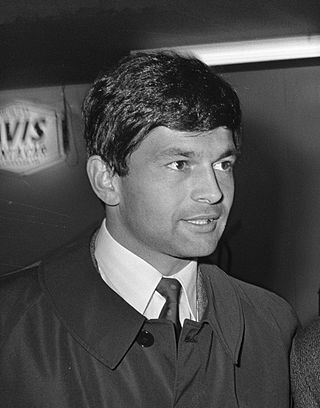
Georgi Asparuhov Rangelov, nicknamed Gundi, was a Bulgarian footballer who played as a striker.
Herbert Biberman, American director and screenwriter (b. 1900) deaths
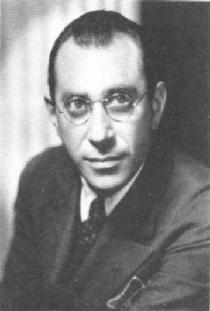
Herbert J. Biberman was an American screenwriter and film director. He was one of the Hollywood Ten and directed Salt of the Earth (1954), a film barely released in the United States, about a zinc miners' strike in Grant County, New Mexico. His membership in the Directors Guild of America was posthumously restored in 1997; he had been expelled in 1950.
Georgy Dobrovolsky Ukrainian pilot and astronaut (b. 1928) deaths

Georgy Timofeyevich Dobrovolsky was a Soviet cosmonaut who commanded the three-man crew of the Soyuz 11 spacecraft. They became the world's first space station crew aboard Salyut 1, but died of asphyxiation because of an accidentally opened valve. They were the first and only humans to have died in space.
Nikola Kotkov, Bulgarian footballer (b. 1938) deaths

Nikola Todorov Kotkov, nicknamed Koteto was a Bulgarian footballer who played as a striker.
Viktor Patsayev, Kazakh engineer and astronaut (b. 1933) deaths

Viktor Ivanovich Patsayev was a Soviet cosmonaut who flew on the Soyuz 11 mission and was part of the third space crew to die during a space flight. On board the space station Salyut 1 he operated the Orion 1 Space Observatory ; he became the first man to operate a telescope outside the Earth's atmosphere.
Vladislav Volkov, Russian engineer and astronaut (b. 1935) deaths

Vladislav Nikolayevich Volkov was a Soviet cosmonaut who flew on the Soyuz 7 and Soyuz 11 missions. The second mission terminated fatally. Volkov and the two other crew members were asphyxiated on reentry, the only three people to have died in outer space.
Brian Bloom, American actor and screenwriter births
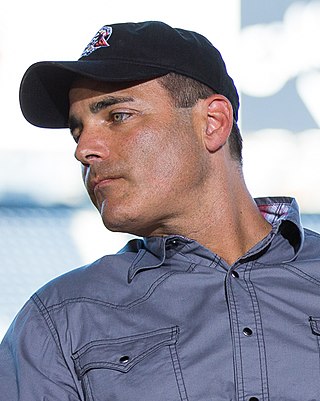
Brian Keith Bloom is an American actor and screenwriter. He co-wrote the screenplay and starred in The A-Team, produced by brothers Tony and Ridley Scott. Bloom is the voice of Captain America in The Avengers: Earth's Mightiest Heroes and multiple subsequent Marvel titles. He is the voice of Varric Tethras in BioWare's Dragon Age franchise, B.J. Blazkowicz in MachineGames' Wolfenstein series, as well as multiple Call of Duty performances including Nick Reyes in Call of Duty: Infinite Warfare, the latter of which he co-wrote. He was also a co-writer of Call of Duty: Modern Warfare. He starred as The Punisher in Avengers Confidential: Black Widow and Punisher.
Antonio Chimenti, Italian footballer and manager births
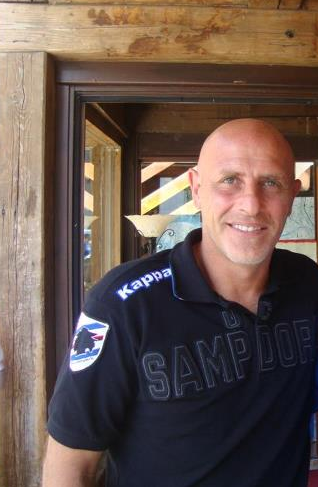
Antonio Chimenti is an Italian retired professional footballer who played as a goalkeeper, and current goalkeeping coach of SPAL.
Mark Grudzielanek, American baseball player and manager births

Mark James Grudzielanek is a former Major League Baseball second baseman and shortstop. Grudzielanek played for six different teams during his 15-season career. He batted and threw right-handed. He was most recently the manager of the Charlotte Knights, the Triple-A affiliate of the Chicago White Sox.
Sanath Jayasuriya, Sri Lankan cricketer and politician births
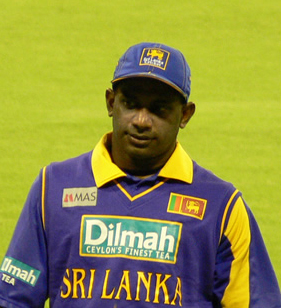
Deshabandu Sanath Teran Jayasuriya, is a former Sri Lankan cricketer and a captain. He is credited for having revolutionized one-day international cricket with his explosive batting with Romesh Kaluwitharana in the mid-1990s, which initiated the hard-hitting modern-day batting strategy of all nations.
Uta Rohländer, German sprinter births
Uta Rohländer, married Fromm is a retired German sprinter who specialised in the 400 metres.
Sébastien Rose, Canadian director and screenwriter births
Sébastien Rose is a Canadian film director and screenwriter. His debut film, How My Mother Gave Birth to Me During Menopause , won the Claude Jutra Award for the best Canadian film by a first-time director in 2003.
Phil Anselmo, American singer-songwriter and producer births
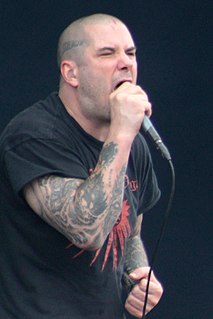
Philip Hansen Anselmo is an American heavy metal vocalist best known as the lead singer for Pantera, Down, and Superjoint, amongst other musical projects. He is the owner of Housecore Records.
Ernst Marcus, German zoologist (b. 1893) deaths

Ernst Gustav Gotthelf Marcus was a German zoologist, former occupant of the chair of zoology at the University of São Paulo from 1936 to 1963, and co-founder of the Oceanographic Institute of the University of São Paulo.
Patrik Bodén, Swedish javelin thrower births
Lars Patrik Bodén is a retired Swedish track and field athlete who competed in the javelin throw. He holds the Swedish national record at 89.10 m, which he set on 24 March 1990. He briefly held the world record with this throw until Steve Backley set a new record later the same year.
David Busst, English footballer and manager births
David John Busst is an English football manager and formerly professional player who played as a centre-back from 1991 until 1996.
Victoria Kaspi, American-Canadian astrophysicist and academic births
Victoria Michelle Kaspi is a Canadian astrophysicist and a professor at McGill University. Her research primarily concerns neutron stars and pulsars.
Mike Tyson, American boxer and actor births

Michael Gerard Tyson is an American former professional boxer who competed from 1985 to 2005. Nicknamed "Iron Mike" and "Kid Dynamite" in his early career, and later known as "The Baddest Man on the Planet", Tyson is considered to be one of the greatest heavyweight boxers of all time. He reigned as the undisputed world heavyweight champion from 1987 to 1990. Tyson won his first 19 professional fights by knockout, 12 of them in the first round. Claiming his first belt at 20 years, four months, and 22 days old, Tyson holds the record as the youngest boxer ever to win a heavyweight title. He was the first heavyweight boxer to simultaneously hold the WBA, WBC and IBF titles, as well as the only heavyweight to unify them in succession. The following year, Tyson became the lineal champion when he knocked out Michael Spinks in 91 seconds of the first round. In 1990, Tyson was knocked out by underdog Buster Douglas in one of the biggest upsets in history.
Giuseppe Farina, Italian race car driver (b. 1906) deaths

Emilio Giuseppe Farina, also known as Giuseppe Antonio "Nino" Farina, was an Italian racing driver and first official Formula One World Champion. He gained the title in 1950. He was the Italian Champion in 1937, 1938 and 1939.
Margery Allingham, English author of detective fiction (b. 1904) deaths

Margery Louise Allingham was an English novelist from the "Golden Age of Detective Fiction", and considered one of its four "Queens of Crime", alongside Agatha Christie, Dorothy L. Sayers and Ngaio Marsh.
Steve Duchesne, Canadian-American ice hockey player and coach births
Steve Duchesne is a Canadian former professional ice hockey defenceman who played in the National Hockey League with several teams from 1986 until 2002. He was a three-time NHL All-Star and was a member of the Stanley Cup champion Detroit Red Wings in 2002.
Cho Jae-hyun, South Korean actor births

Cho Jae-hyun is a South Korean film, stage, and TV actor. He is commonly dubbed "director Kim Ki-duk's persona" since Cho has starred as leading and supporting characters in a number of films directed by Kim.
Anna Levandi, Russian figure skater and coach births

Anna Anatolevna Levandi is a Russian former competitive figure skater who represented the Soviet Union in international competition. She was the 1984 World silver medalist and four-time European bronze medalist. She competed at two Winter Olympic Games.
Gary Pallister, English footballer and sportscaster births
Gary Andrew Pallister is an English former professional footballer and sports television pundit.
Mitch Richmond, American basketball player births

Mitchell James Richmond III is an American former professional basketball player. He played collegiately at Moberly Area Community College and Kansas State University. He was a six-time NBA All-Star, a five-time All-NBA Team member, and a former NBA Rookie of the Year. In 976 NBA games, Richmond averaged 21.0 points per game and 3.5 assists per game. Richmond was voted into the Naismith Memorial Basketball Hall of Fame in 2014. His jersey No. 2 was retired in his honor by the Sacramento Kings, for whom he played seven seasons.
Alexandra, Countess of Frederiksborg births
Alexandra, Countess of Frederiksborg,, formerly Princess Alexandra of Denmark, is the former wife of Prince Joachim of Denmark, the younger son of Margrethe II of Denmark.
Mark Waters, American director and producer births
Mark Stephen Waters is an American filmmaker who directed the comedy films Freaky Friday, Mean Girls, Ghosts of Girlfriends Past, Mr. Popper's Penguins, and Vampire Academy.
Olha Bryzhina, Ukrainian sprinter births
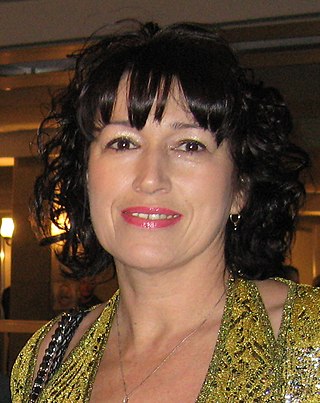
Olha Bryzhina is a retired athlete who represented Soviet Union and later Ukraine.
Rupert Graves, English actor, director, and screenwriter births
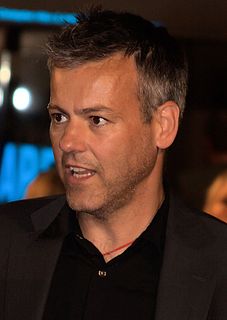
Rupert Simeon Graves is an English film, television, and theatre actor. He is known for his roles in A Room with a View, Maurice, The Madness of King George and The Forsyte Saga. From 2010 to 2017 he starred as DI Lestrade in the BBC television series Sherlock.
Yngwie Malmsteen, Swedish guitarist and songwriter births
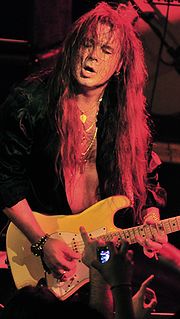
Yngwie Johan Malmsteen is a Swedish guitarist. He first became known in the 1980s for his neoclassical playing style in heavy metal, and has released 22 studio albums in a career spanning over 40 years. In 2009, Time magazine rated Malmsteen as number 9 among the 11 greatest electric guitar players of all time.
Tony Fernández, Dominican baseball player (d. 2020) births

Octavio Antonio Fernández Castro, better known as Tony Fernández, was a Dominican baseball player who played as a shortstop in Major League Baseball (MLB) for seven teams from 1983 to 2001, most notably the Toronto Blue Jays. A five-time All-Star, Fernández was known for his defensive skills, winning four consecutive Gold Glove Awards (1986–1989). He batted over .300 four times, led the major leagues with 17 triples in 1990, collected 30 doubles six times and 20 stolen bases seven times. He also led American League shortstops in assists three times, and in putouts and fielding average twice each. After moving to the National League in a blockbuster trade following the 1990 season, he returned to the Blue Jays in a mid-season trade in 1993, and played a major role in helping the club repeat as World Series champions, batting .333 with nine runs batted in during the series.
Julianne Regan, English singer-songwriter and guitarist births
Julie-Ann "Julianne" Regan is an English-Irish singer, songwriter, and musician. She achieved success in the late 1980s and early 1990s as the lead singer of the band All About Eve. AllMusic describes Regan as "certainly one of the more talented singers of the late eighties British goth rock scene".
Lynne Jolitz, American computer scientist and programmer births
Lynne Greer Jolitz is a figure in free software and founder of many startups in Silicon Valley. Together with her husband William, she created 386BSD, the first open-source Unix-based operating system for personal computers to be distributed over the Internet.
Clive Nolan, English musician, composer and producer births

Clive Nolan is a British musician, composer and producer who has played a prominent role in the development of progressive rock. He has been the regular keyboard player in Pendragon (1986–present), Shadowland (1992–present), Strangers on a Train (1993–1994) and Arena (1995–present), as well as writing lyrics for Arena and producing or co-producing several other bands' albums.
Lee de Forest, American inventor, invented the audion tube (b. 1873) deaths
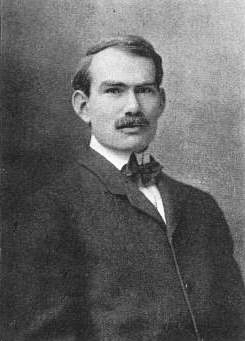
Lee de Forest was an American inventor and a fundamentally important early pioneer in electronics. He invented the first electronic device for controlling current flow; the three-element "Audion" triode vacuum tube in 1906. This started the Electronic Age, and enabled the development of the electronic amplifier and oscillator. These made radio broadcasting and long distance telephone lines possible, and led to the development of talking motion pictures, among countless other applications.

The Audion was an electronic detecting or amplifying vacuum tube invented by American electrical engineer Lee de Forest in 1906. It was the first triode, consisting of an evacuated glass tube containing three electrodes: a heated filament, a grid, and a plate. It is important in the history of technology because it was the first widely used electronic device which could amplify. A low power signal at the grid could control much more power in the plate circuit.
Jack McConnell, Scottish educator and politician, 3rd First Minister of Scotland births

Jack Wilson McConnell, Baron McConnell of Glenscorrodale, is a Scottish politician who served as First Minister of Scotland and Leader of the Labour Party in Scotland from 2001 to 2007. McConnell served as the Minister for Finance from 1999 to 2000 and Minister for Education, Europe and External Affairs from 2000 to 2001. He has been a Labour life peer in the House of Lords since 2010 and previously served as a Member of the Scottish Parliament (MSP) for Motherwell and Wishaw from 1999 to 2011.

The first minister of Scotland is the leader of the Scottish Government and keeper of the Great Seal of Scotland. The first minister chairs the Scottish Cabinet and is primarily responsible for the formulation, development and presentation of Scottish Government policy. Additional functions of the first minister include promoting and representing Scotland in an official capacity, at home and abroad.
Murray Cook, Australian musician, actor, songwriter and producer births

Murray James Cook, AM is an Australian musician, actor, and Disc jockey. Cook was one of the founding members of the children's band the Wiggles from 1991 to 2012. Cook provided guitar, vocals, and songwriting in the group, and remained involved with its creative and production aspects after his retirement. In 2013, Cook served as the Wiggles' tour manager. He also remained active in many music projects, including, after 2015, writing and performing with the Sydney soul-rock band The Soul Movers.
Vincent D'Onofrio, American actor births

Vincent Philip D'Onofrio is an American actor and filmmaker. He is known for his supporting and leading roles in both film and television. He has been nominated for a Primetime Emmy Award.
Daniel Goldhagen, American political scientist, author, and academic births

Daniel Jonah Goldhagen is an American author, and former associate professor of government and social studies at Harvard University. Goldhagen reached international attention and broad criticism as the author of two controversial books about the Holocaust: Hitler's Willing Executioners (1996), and A Moral Reckoning (2002). He is also the author of Worse Than War (2009), which examines the phenomenon of genocide, and The Devil That Never Dies (2013), in which he traces a worldwide rise in virulent antisemitism.
Brendan Perry, English singer-songwriter, guitarist, and producer births
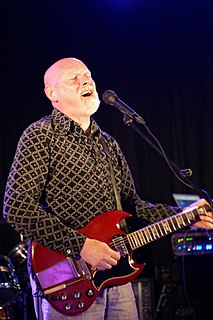
Brendan Michael Perry is a British singer and multi-instrumentalist best known for his work as half of the duo Dead Can Dance with Lisa Gerrard.
Sakis Tsiolis, Greek footballer and manager births
Sakis Tsiolis is a Greek professional football manager and former player.
Sandip Verma, Baroness Verma, Indian-English businesswoman and politician births

Sandip K. Verma, Baroness Verma known until 1977 as Sandip K. Rana, is an Indian-British politician in the United Kingdom. An appointed member of the House of Lords, she is Ministerial Champion for Tackling Violence Against Women and Girls Overseas, a role who chairs the UN Women's national committee. Verma has been the Parliamentary Under-Secretary of State for International Development, from 2015 to 2016.
José Vasconcelos, Mexican philosopher and politician (b. 1882) deaths

José Vasconcelos Calderón, called the "cultural caudillo" of the Mexican Revolution, was an important Mexican writer, philosopher, and politician. He is one of the most influential and controversial personalities in the development of modern Mexico. His philosophy of the "cosmic race" affected all aspects of Mexican sociocultural, political, and economic policies.
Pam Royle, British television presenter, journalist and voice coach births
Pamela “Pam” June Royle is a British television journalist and presenter.
Esa-Pekka Salonen, Finnish conductor and composer births

Esa-Pekka Salonen is a Finnish orchestral conductor and composer. He is principal conductor and artistic advisor of the Philharmonia Orchestra in London, conductor laureate of the Los Angeles Philharmonic, and music director of the San Francisco Symphony.
Bud Black, American baseball player and manager births
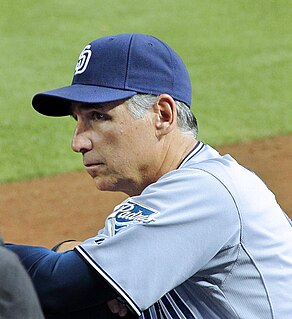
Harry Ralston "Bud" Black is an American professional baseball manager and former player who is the manager of the Colorado Rockies. He played in Major League Baseball (MLB) as a pitcher from 1981 through 1995, most notably for the Kansas City Royals and Cleveland Indians. He coached the Anaheim Angels / Los Angeles Angels of Anaheim from 2000 through 2006, and managed the San Diego Padres from 2007 through 2015. He was named the National League Manager of the Year in 2010.
Sterling Marlin, American race car driver births

Sterling Burton Marlin is an American semi-retired, professional stock car racing driver. He currently competes part-time JEGS/CRA All-Stars Tour, driving the No. 114 for Sterling Marlin Racing. He formerly competed in the NASCAR Cup Series, winning the Daytona 500 in 1994 and 1995. He is the son of late NASCAR driver Coo Coo Marlin. He is married to Paula and has a daughter, Sutherlin, a son, Steadman, a former NASCAR Xfinity Series driver, and a grandson Stirlin who splits a schedule with Sterling in Sterling’s No. 114 Super Late Model.
Volker Beck, German hurdler and coach births
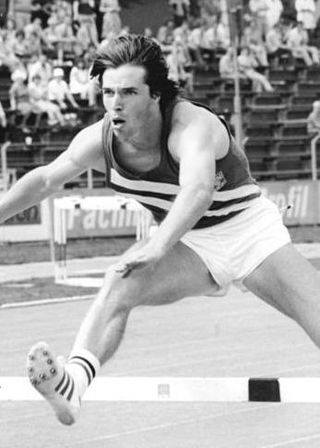
Volker Beck is a former East German athlete, winner of 400 m hurdles at the 1980 Summer Olympics.
David Lidington, English historian, academic, and politician, Minister of State for Europe births

Sir David Roy Lidington is a British politician who was the Member of Parliament (MP) for Aylesbury from 1992 until 2019. A member of the Conservative Party, he served as Chancellor of the Duchy of Lancaster and Minister for the Cabinet Office from 2018 to 2019 and was frequently described as being Theresa May's de facto Deputy Prime Minister.

The Parliamentary Under-Secretary of State for Europe, formerly the Minister of State for Europe is a ministerial position within the Government of the United Kingdom, in charge of affairs with Europe. The Minister can also be responsible for government policy towards European security; defence and international security; the Falkland Islands; polar regions; migration; protocol; human resources; OSCE and Council of Europe; relations with Parliament; British Overseas Territories of Gibraltar and Sovereign Base Areas in Cyprus; and FCO finance, knowledge and technology.
David Alan Grier, American actor, singer, and comedian births

David Alan Grier is an American actor and comedian. He is best known for his work as Bernard on Damon (1998), as David Bellows on Life with Bonnie (2002–2004), as Joe Carmichael on The Carmichael Show (2015–2017), as Hal on A Series of Unfortunate Events (2018), and for his movie roles such as Roger in Streamers (1983), Carl Bentley in Jumanji (1995), and Jim Fields in Bewitched (2005).
Thorleif Lund, Norwegian actor (b. 1880) deaths
Thorleif Brinck Lund was a Norwegian stage and film actor of the silent film era.
Brian Vollmer, Canadian singer births
Brian Vollmer is the lead singer and only remaining original member of Canadian hard rock group Helix. Since the band's inception in 1974, Vollmer had gone from lead singer to de facto leader of the band, weathering numerous lineup changes. Vollmer was born in Listowel, Ontario before relocating to Kitchener. He currently resides in London, Ontario with his wife, Lynda.
Egils Levits, Latvian judge, jurist, 10th President of Latvia births

Egils Levits is a Latvian politician, lawyer, political scientist and jurist who has served as the tenth president of Latvia since 8 July 2019. He was a member of the European Court of Justice from 2004 to 2019.

Latvia, officially the Republic of Latvia, is a country in the Baltic region of Northern Europe. It is one of the Baltic states; and is bordered by Estonia to the north, Lithuania to the south, Russia to the east, Belarus to the southeast, and shares a maritime border with Sweden to the west. Latvia covers an area of 64,589 km2 (24,938 sq mi), with a population of 1.9 million. The country has a temperate seasonal climate. Its capital and largest city is Riga. Latvians belong to the ethno-linguistic group of the Balts; and speak Latvian, one of the only two surviving Baltic languages. Russians are the most prominent minority in the country, at almost a quarter of the population.

The president of Latvia is head of state and commander-in-chief of the National Armed Forces of the Republic of Latvia.
Stephen Barlow, English organist, composer, and conductor births
Stephen William Barlow is an English conductor, principally of opera. He was Artistic Director of the Buxton Festival from 2012 to 2018.
Pierre Charles, Dominican educator and politician, 5th Prime Minister of Dominica (d. 2004) births

Pierre Charles was Prime Minister of Dominica from 2000 to 2004 as well as Member of Parliament for Grand Bay, Dominica, from 1985 until his death.

The prime minister of Dominica is the head of government in the Commonwealth of Dominica. Nominally, the position was created on November 3, 1978 when Dominica gained independence from the United Kingdom. Hitherto, the position existed de facto as Premier. Roosevelt Skerrit is the incumbent prime minister. He took office on 8 January 2004
Serzh Sargsyan, Armenian politician, 3rd President of Armenia births

Serzh Azati Sargsyan is an Armenian politician who served as the third President of Armenia from 2008 to 2018, and twice as the Prime Minister of Armenia from 2007 to 2008 and again from 17 to 23 April 2018, when he was forced to resign in the 2018 Armenian revolution.
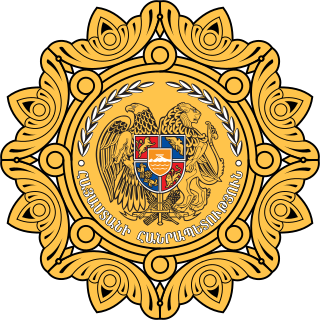
The president of Armenia is the head of state and the guarantor of independence and territorial integrity of Armenia elected to a single seven-year term by the National Assembly of Armenia. Under Armenia's parliamentary system, the president is simply a figurehead and holds ceremonial duties, with most of the political power vested in the Parliament and prime minister.
Wayne Swan, Australian academic and politician, 14th Deputy Prime Minister of Australia births

Wayne Maxwell Swan, often colloquially referred to as Swanny, is an Australian politician who is National President of the Labor Party. He was previously the Deputy Prime Minister of Australia and Deputy Leader of the Labor Party from 2010 to 2013, and the Treasurer of Australia from 2007 to 2013.

The deputy prime minister of Australia is the deputy chief executive and the second highest ranking officer of the Australian Government. The office of deputy prime minister was officially created as a ministerial portfolio in 1968, although the title had been used informally for many years previously. The deputy prime minister is appointed by the governor-general on the advice of the prime minister. When Australia has a Labor government, the deputy leader of the parliamentary party holds the position of deputy prime minister. When Australia has a Coalition government, the Coalition Agreement mandates that all Coalition members support the leader of the Liberal Party becoming prime minister and mandates that the leader of the National Party be selected as deputy prime minister.
Andrass Samuelsen, Faroese politician, 1st Prime Minister of the Faroe Islands (b. 1873) deaths
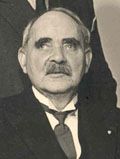
Andrass Samuelsen was a Faroese politician and member of the Union Party. He was the first Prime Minister of the Faroe Islands after the autonomy of the Faroe Islands in 1948 (Heimastýrislógin).

The prime minister of the Faroe Islands is the head of government of the Faroe Islands
Hal Lindes, American-English guitarist and film score composer births

Hal Andrew Lindes is an American–English guitarist and film score composer.
Elsa Beskow, Swedish author and illustrator (b. 1874) deaths

Elsa Beskow was a famous Swedish author and illustrator of children's books. Among her better known books are Tale of the Little Little Old Woman and Aunt Green, Aunt Brown and Aunt Lavender.
Charles William Miller, Brazilian footballer and civil servant (b. 1874) deaths

Charles William Miller was a Brazilian sportsman, who is considered to be the father of football in Brazil.
Athanassios S. Fokas, Greek mathematician and academic births
Athanassios Spyridon Fokas is a Greek mathematician, with degrees in Aeronautical Engineering and Medicine. Since 2002, he is Professor of Nonlinear Mathematical Science in the Department of Applied Mathematics and Theoretical Physics (DAMTP) at the University of Cambridge.
David Garrison, American actor and singer births
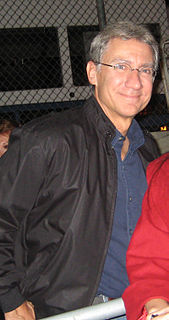
David Earl Garrison is an American actor. His primary venue is live theatre, but he is best known as the character Steve Rhoades in the television series, Married... with Children. He has also appeared in numerous theatrical roles, particularly that of The Wizard on both Broadway and in many tours of the musical Wicked.
Stanley Clarke, American bass player and composer births

Stanley Clarke is an American bassist, film composer and founding member of Return to Forever, one of the first jazz fusion bands. Clarke gave the bass guitar a prominence it lacked in jazz-related music. He is the first jazz-fusion bassist to headline tours, sell out shows worldwide and have recordings reach gold status.
Yrjö Saarela, Finnish wrestler and coach (b. 1884) deaths

Yrjö Erik Mikael Saarela was a Finnish wrestler, who won an Olympic gold and a world championship.
Uwe Kliemann, German footballer, coach, and manager births
Uwe Kliemann is a retired German football player and coach. As a player, he spent 11 seasons in the Bundesliga with Rot-Weiß Oberhausen, Eintracht Frankfurt, Hertha BSC and Arminia Bielefeld. He represented Germany once, in a friendly against Netherlands.
Andy Scott, Welsh singer-songwriter, guitarist, and producer births

Andrew David Scott is a Welsh musician and songwriter. He is best known for being the lead guitarist and a backing vocalist in the band Sweet. Following bassist Steve Priest's death in June 2020, Scott is the last surviving member of the band's classic lineup.
Édouard Alphonse James de Rothschild, French financier and polo player (b. 1868) deaths
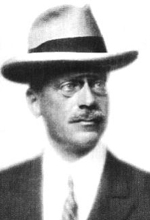
Édouard Alphonse James de Rothschild, also known as Baron Édouard de Rothschild was an aristocrat, French financier and a member of the prominent Rothschild banking family of France.
Prince Sabahaddin, Turkish-Swiss sociologist and academic (b. 1879) deaths
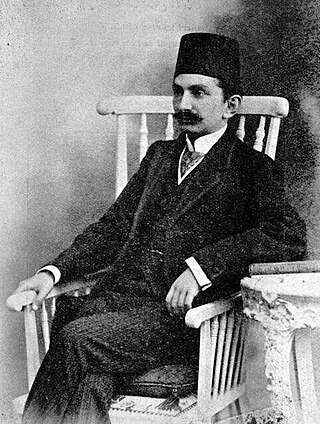
Prince Sabahaddin de Neuchâtel was an Ottoman sociologist and thinker. Because of his threat to the ruling House of Osman, of which he was a member, in the late 19th and early 20th centuries due to his political activity and push for democracy in the Empire, he was exiled. He was one of the founders of the short-lived Ottoman Liberty Party.
Raymond Moody, American parapsychologist and author births
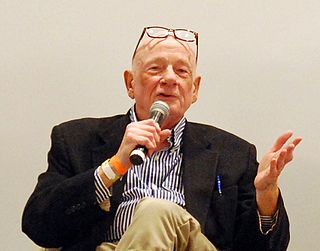
Raymond A. Moody Jr. is an American philosopher, psychiatrist, physician and author, most widely known for his books about afterlife and near-death experiences (NDE), a term that he coined in 1975 in his best-selling book Life After Life. His research purports to explore what happens when a person dies. He has widely published his views on what he terms near-death-experience psychology.
Glenn Shorrock, English-Australian singer-songwriter births

Glenn Barrie Shorrock is an English-born Australian singer-songwriter. He was a founding member of rock bands the Twilights, Axiom, Little River Band and post LRB spin-off trio Birtles Shorrock Goble, as well as being a solo performer.
Ron Swoboda, American baseball player and sportscaster births

Ronald Alan Swoboda is an American former professional baseball player and television sports color commentator. He played in Major League Baseball as an outfielder from 1965 through 1973, most notably as a member of the New York Mets team that became known as the Miracle Mets when they rose from being perennial losers to defeat the favored Baltimore Orioles in the 1969 World Series for one of the most improbable upsets in World Series history. Swoboda performed one of the most impressive defensive plays of the series in the ninth inning of Game 4 to help preserve a Mets victory. He also played for the Montreal Expos and the New York Yankees.
Florence Ballard, American pop/soul singer (d. 1976) births

Florence Glenda Chapman was an American singer and a founding member of the Motown vocal female group the Supremes. She sang on 16 top 40 singles with the group, including ten number-one hits. After being removed from the Supremes in 1967, Ballard tried an unsuccessful solo career with ABC Records before she was dropped from the label at the end of the decade.
Saeed Akhtar Mirza, Indian director and screenwriter births

Saeed Akhtar Mirza is an Indian screenwriter and director in Hindi films and television. He is the maker of notable parallel films such as Mohan Joshi Hazir Ho! (1984), Albert Pinto Ko Gussa Kyoon Aata Hai (1980), Salim Langde Pe Mat Ro (1989) and Naseem (1995), which won two National Film Awards in 1996. Saeed Mirza Was Honored with Lifetime Achievement Award at ICA - International Cultural Artifact Film Festival in 2020.
Robert Ballard, American lieutenant and oceanographer births
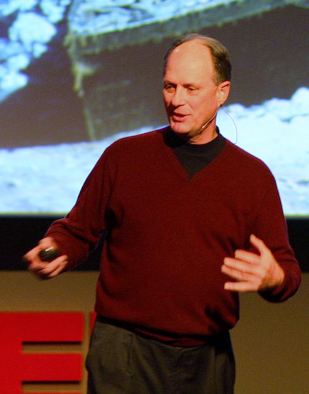
Robert Duane Ballard is an American retired Navy officer and a professor of oceanography at the University of Rhode Island who is most noted for his work in underwater archaeology: maritime archaeology and archaeology of shipwrecks. He is best known for the discoveries of the wrecks of the RMS Titanic in 1985, the battleship Bismarck in 1989, and the aircraft carrier USS Yorktown in 1998. He discovered the wreck of John F. Kennedy's PT-109 in 2002 and visited Biuku Gasa and Eroni Kumana, who saved its crew.
Ron Harris, Canadian ice hockey player and coach births

Ronald Thomas Harris is a Canadian former professional ice hockey player who played 476 games in the National Hockey League. He played for the Detroit Red Wings, Oakland Seals, Atlanta Flames, and New York Rangers.
Peter Pollock, South African cricketer and author births
Peter Maclean Pollock is a retired South African cricketer. He has played a continuing role in the South Africa cricket team as a player and selector. He was voted a Wisden Cricketer of the Year in 1966. He was primarily a fast bowler, but was also a useful late-order batsman.
Yefim Fomin, Belarusian politician (b. 1909) deaths

Yefim Moiseyevich Fomin, , was a Soviet political commissar. He is known for his part in the 1941 Defense of Brest Fortress, during which the German Army captured and immediately executed him.
Aleksander Tõnisson, Estonian general and politician, 5th Estonian Minister of War (b. 1875) deaths

Aleksander Tõnisson VR I/1 was an Estonian military commander during the Estonian War of Independence.

The Minister of Defence is the senior minister at the Ministry of Defence (Kaitseministeerium) in the Estonian Government. The minister is one of the most important members of the Estonian government, with responsibility for coordinating the governments policies on national defence and the military forces. The defence minister is chosen by the prime minister as a part of the government.
Mark Spoelstra, American singer-songwriter and guitarist (d. 2007) births
Mark Warren Spoelstra was an American singer-songwriter and folk and blues guitarist.
Tony Hatch, English pianist, composer, and producer births
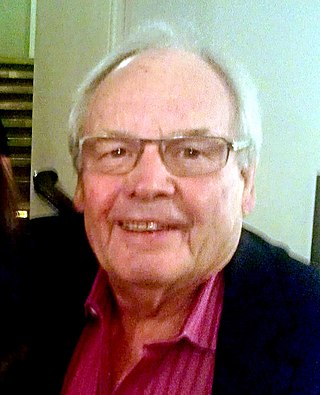
Anthony Peter Hatch is an English composer for musical theatre and television. He is also a songwriter, pianist, arranger and producer.
Barry Hines, English author and screenwriter (d. 2016) births
Melvin Barry Hines, FRSL was an English author, playwright and screenwriter. His novels and screenplays explore the political and economic struggles of working-class Northern England, particularly in his native West Riding/South Yorkshire.
José Emilio Pacheco, Mexican poet and author (d. 2014) births

José Emilio Pacheco Berny audio (help·info) was a Mexican poet, essayist, novelist and short story writer. He is regarded as one of the major Mexican poets of the second half of the 20th century. The Berlin International Literature Festival has praised him as "one of the most significant contemporary Latin American poets". In 2009 he was awarded the Cervantes Prize for his literary oeuvre.
Billy Mills, American sprinter births

William Mervin Mills, also known as Tamakoce Te'Hila, is an Oglala Lakota former track and field athlete who won a gold medal in the 10,000 metre run (6.2 mi) at the 1964 Tokyo Olympics. His 1964 victory is considered one of the greatest Olympic upsets because he was a virtual unknown going into the event. He was the first non-European to win the Olympic event and remains the only winner from the Americas. A United States Marine, Mills is a member of the Oglala Sioux Tribe.
Larry Henley, American singer-songwriter (d. 2014) births
Larry Joel Henley was an American singer and songwriter, best known for co-writing the 1989 hit record "Wind Beneath My Wings".
Assia Djebar, Algerian-French author and translator (d. 2015) births

Fatima-Zohra Imalayen, known by her pen name Assia Djebar, was an Algerian novelist, translator and filmmaker. Most of her works deal with obstacles faced by women, and she is noted for her feminist stance. She is "frequently associated with women's writing movements, her novels are clearly focused on the creation of a genealogy of Algerian women, and her political stance is virulently anti-patriarchal as much as it is anti-colonial." Djebar is considered to be one of North Africa's pre-eminent and most influential writers. She was elected to the Académie française on 16 June 2005, the first writer from the Maghreb to achieve such recognition. For the entire body of her work she was awarded the 1996 Neustadt International Prize for Literature. She was often named as a contender for the Nobel Prize for Literature.
Nancy Dussault, American actress and singer births
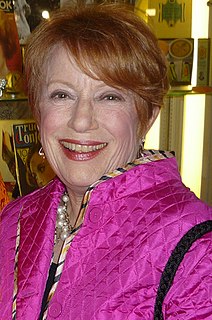
Nancy Dussault is an American actress and singer.
Tony Musante, American actor and screenwriter (d. 2013) births

Anthony Peter Musante Jr. was an American actor, best known for the TV series Toma as Detective David Toma, Nino Schibetta in Oz (1997), and Joe D'Angelo in As the World Turns (2000-2003). In movies, he achieved fame relatively early in his career, starring or having significant roles in such films as Once a Thief (1965), The Incident (1967), The Detective (1968) and The Last Run (1971), and also in a number of Italian productions, including The Mercenary (1968), Metti, una sera a cena (1969) and The Bird with the Crystal Plumage (1970).
Dave Van Ronk, American singer-songwriter and guitarist (d. 2002) births

David Kenneth Ritz Van Ronk was an American folk singer. An important figure in the American folk music revival and New York City's Greenwich Village scene in the 1960s, he was nicknamed the "Mayor of MacDougal Street".
John Harlin, American pilot and mountaineer (d. 1966) births
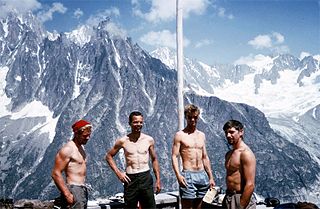
John Elvis Harlin II was an American mountaineer and US Air Force pilot who was killed while making an ascent of the north face of the Eiger.
Harry Blackstone Jr., American magician and author (d. 1997) births

Harry Bouton Blackstone Jr. was an American stage magician, author, and television performer. He is estimated to have pulled 80,000 rabbits from his sleeves and hats.
Karl Ernst, German soldier (b. 1904) deaths

Karl Ernst was an SA-Gruppenführer who, in early 1933, was the SA leader in Berlin. Prior to joining the Nazi Party, he had been a hotel bellboy and a bouncer at a gay nightclub.
Erich Klausener, German soldier and politician (b. 1885) deaths

Erich Klausener was a German Catholic politician and Catholic martyr in the "Night of the Long Knives", a purge that took place in Nazi Germany from 30 June to 2 July 1934, when the Nazi regime carried out a series of political murders.
Gustav Ritter von Kahr, German lawyer and politician, Minister-President of Bavaria (b. 1862) deaths
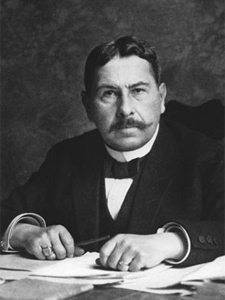
Gustav Ritter von Kahr was a German right-wing politician, active in the state of Bavaria. He helped turn post–World War I Bavaria into Germany's center of radical-nationalism but was then instrumental in the collapse and suppression of Adolf Hitler's Beer Hall Putsch in 1923. In revenge for the latter, he was murdered later in the 1934 Night of the Long Knives.

Below is a list of the men who have served in the capacity of Minister-President or equivalent office in the German state of Bavaria from the 17th century to the present.
Gregor Strasser, German lieutenant and politician (b. 1892) deaths
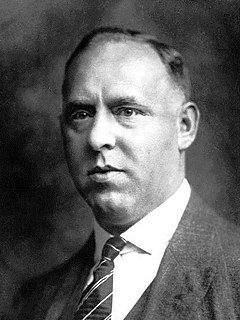
Gregor Strasser was an early prominent German Nazi official and politician who was murdered during the Night of the Long Knives in 1934. Born in 1892 in Bavaria, Strasser served in World War I in an artillery regiment, rising to the rank of first lieutenant. He joined the Nazi Party (NSDAP) in 1920 and quickly became an influential and important figure. In 1923, he took part in the abortive Beer Hall Putsch in Munich and was imprisoned, but released early for political reasons. Strasser joined a revived NSDAP in 1925 and once again established himself as a powerful and dominant member, hugely increasing the party's membership and reputation in northern Germany. Personal and political conflicts with Adolf Hitler led to his death in 1934 during the Night of the Long Knives.
Kurt von Schleicher, German general and politician, 23rd Chancellor of Germany (b. 1882) deaths

Kurt Ferdinand Friedrich Hermann von Schleicher was a German general and the last chancellor of Germany during the Weimar Republic. A rival for power with Hitler, Schleicher was murdered by Hitler's SS during the Night of the Long Knives in 1934.

The chancellor of Germany, officially the federal chancellor of the Federal Republic of Germany, is the head of the federal government of Germany and the commander in chief of the German Armed Forces during wartime. The chancellor is the chief executive of the Federal Cabinet and heads the executive branch. The chancellor is elected by the Bundestag on the proposal of the federal president and without debate.
Tomislav Ivić, Croatian football coach and manager (d. 2011) births

Tomislav Ivić was a Croatian professional football player and manager. Often described as a brilliant strategist, Ivić is credited with helping develop the modern style of the game. In April 2007, Italian sports daily La Gazzetta dello Sport proclaimed him as the most successful football manager in history, due to his seven league titles won in five countries.
M. J. K. Smith, English cricketer and rugby player births
Michael John Knight Smith, better known as M. J. K. Smith or Mike Smith, is an English former cricketer who was captain of Oxford University Cricket Club (1956), Warwickshire County Cricket Club (1957–1967) and the England cricket team (1963–1966). He was one of England's most popular cricket captains and, as he also played rugby union, Smith was England's last double international.
Orval Tessier, Canadian ice hockey player and coach (d. 2022) births
Orval Roy Tessier was a Canadian professional ice hockey centre and coach who played parts of three seasons in the National Hockey League for the Montreal Canadiens and Boston Bruins between 1954 and 1960, appearing in a total of 59 regular season games. The rest of his career, which lasted from 1953 to 1965, was spent in the minor leagues, where he was a solid offensive player. He won two scoring titles with the Eastern Professional Hockey League's Kingston Frontenacs, and was voted the league's most valuable player and most sportsmanlike player in the 1961–62 season.
Joan Murrell Owens, American educator and marine biologist (d. 2011) births
Joan Murrell Owens was an American educator and marine biologist specializing in corals. She received degrees in geology, fine art, and guidance counseling. She described a new genus, Rhombopsammia, and three new species of button corals, R. niphada, R. squiresi, and Letepsammia franki.
Bruno Kastner, German actor, producer, and screenwriter (b. 1890) deaths
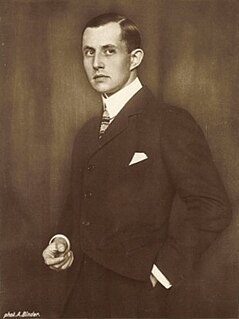
Richard Otto Bruno Kastner was a German stage and film actor, screenwriter, and film producer whose career was most prominent in the 1910s and 1920s during the silent film era. Kastner was one of the most popular leading men in German films during his career's peak in the 1920s.
Yo-Yo Davalillo, Venezuelan baseball player and manager (d. 2013) births

Pompeyo Antonio Davalillo Romero [da-va-LEE-yo] was a Venezuelan professional baseball player and minor league manager. He played in Major League Baseball as a shortstop for the Washington Senators. Nicknamed "Yo-Yo" by his teammates, he was listed at 5' 3", 140 lb. Davalillo batted and threw right-handed.
Andrew Hill, American pianist and composer (d. 2007) births

Andrew Hill was an American jazz pianist and composer.
Ronald Rene Lagueux, American judge births
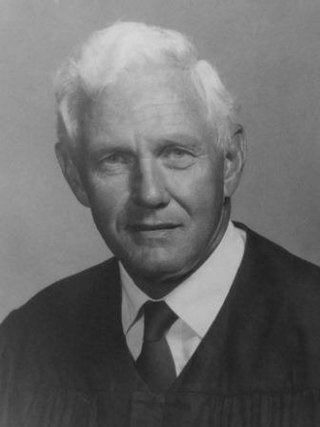
Ronald Rene Lagueux is an inactive Senior United States district judge of the United States District Court for the District of Rhode Island.
Kaye Vaughan, American football player births
Charles Kaye Vaughan is a former professional football player, a lineman with the Ottawa Rough Riders of the Canadian Football League for twelve seasons. He won the CFL's Outstanding Lineman Award in 1956 and 1957 and is a member of the Canadian Football Hall of Fame.
Ben Atchley, American politician (d. 2018) births
Curtis Bentley Atchley Jr., known as Ben Atchley, was an American politician in the state of Tennessee. He served in the Tennessee House of Representatives from 1972 to 1976 and the Tennessee State Senate from 1977 to 2005, as a Republican. He was a majority leader and caucus chairman in the senate. He was an alumnus of the University of Tennessee, Knoxville and veteran of the United States Naval Reserve. He was married with two children.
Ahmed Zaki Yamani, Saudi Arabian politician (d. 2021) births
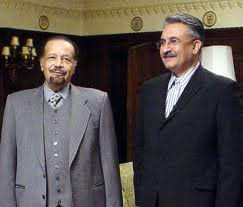
Ahmed Zaki Yamani was a Saudi Arabian politician who served as Minister of Petroleum and Mineral Resources from 1962 to 1986, and a minister in the Organization of the Petroleum Exporting Countries (OPEC) for 25 years. With degrees from institutions including New York University School of Law, Harvard Law School, and a doctorate from the University of Exeter, Yamani became a close adviser to the Saudi government in 1958 and then became oil minister in 1962. He is known for his role during the 1973 oil embargo, when he spurred OPEC to quadruple the price of crude oil.
Ignatius Peter VIII Abdalahad, Syrian bishop (d. 2018) births
Ignatius Peter VIII Abdalahad was patriarch of Antioch and all the East of the Syriac Catholic Church. He served as patriarch from 2001 to 2008, when he resigned and retired.
Yang Ti-liang, Chinese judge births
Sir Ti-liang Yang, is a retired senior Hong Kong judge. He was the Chief Justice of Hong Kong from 1988–1996, the only ethnic Chinese person to hold this office during British colonial rule.
Hassan Hassanzadeh Amoli, Islamic philosopher, theologian, mathematician and mystic (d. 2021) births

Hassan Hasanzadeh Amoli was an Iranian Shi'ite theologian known for his mystical tendencies and Islamic philosophy. He was among clerics who overcomed the traditional opposition to teaching philosophy courses at Shi'ite seminaries. He wrote many books in philosophy, mysticism, mathematics, astronomy, Persian and Arabic literature.He interpreted the Islamic philosophical tradition in a similar way to Mulla Sadra, which is a reconciliation of religion, reason and mysticism. His books include Sharh fusus al-hikam, Tashih nahj al-balagha, Insan dar 'urf-i 'irfan, Tashih kalila wa dimna.
Nathaniel Tarn, American poet, essayist, anthropologist, and translator births
Nathaniel Tarn is a French-American poet, essayist, anthropologist, and translator. He was born in Paris to a French-Romanian mother and a British-Lithuanian father. He lived in Paris until the age of seven, then in Belgium until age 11; when World War II began, the family moved to England. He emigrated to the United States in 1970 and taught at several American universities, primarily Rutgers, where he was a professor from 1972 until 1985. He has lived outside Santa Fe, New Mexico, since his retirement from Rutgers.
Shirley Fry Irvin, American tennis player (d. 2021) births
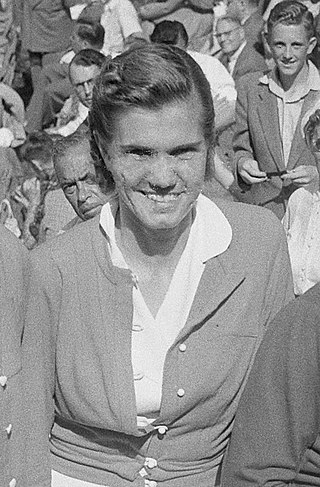
Shirley June Fry Irvin was an American tennis player. During her career, which lasted from the early 1940s until the mid-1950s, she won the singles title at all four Grand Slam events, as well as 13 doubles titles, and was ranked No. 1 in the world in 1956.
James Goldman, American screenwriter and playwright (d. 1998) births
James Goldman was an American playwright and screenwriter. He won an Academy Award for his screenplay The Lion in Winter (1968). His younger brother was novelist and screenwriter William Goldman.
Mario Lanfranchi, Italian director, screenwriter, producer, collector and actor (d. 2022) births

Mario Lanfranchi was an Italian film, theatre, and television director, screenwriter, producer, collector, and actor.
Frank McCabe, American basketball player (d. 2021) births

Frank Reilly McCabe was an American basketball player who competed in the 1952 Summer Olympics. Born in Grand Rapids, Michigan, McCabe played collegiately at Marquette University. He was part of the American basketball team, which won the gold medal. He played six matches.
Paul Berg, American biochemist and academic, Nobel Prize laureate births

Paul Berg is an American biochemist and professor emeritus at Stanford University. He was the recipient of the Nobel Prize in Chemistry in 1980, along with Walter Gilbert and Frederick Sanger. The award recognized their contributions to basic research involving nucleic acids. Berg received his undergraduate education at Penn State University, where he majored in biochemistry. He received his Ph.D. in biochemistry from Case Western Reserve University in 1952. Berg worked as a professor at Washington University School of Medicine and Stanford University School of Medicine, in addition to serving as the director of the Beckman Center for Molecular and Genetic Medicine. In addition to the Nobel Prize, Berg was presented with the National Medal of Science in 1983 and the National Library of Medicine Medal in 1986. Berg is a member of the Board of Sponsors for the Bulletin of the Atomic Scientists.

The Nobel Prize in Chemistry is awarded annually by the Royal Swedish Academy of Sciences to scientists in the various fields of chemistry. It is one of the five Nobel Prizes established by the will of Alfred Nobel in 1895, awarded for outstanding contributions in chemistry, physics, literature, peace, and physiology or medicine. This award is administered by the Nobel Foundation, and awarded by the Royal Swedish Academy of Sciences on proposal of the Nobel Committee for Chemistry which consists of five members elected by the Academy. The award is presented in Stockholm at an annual ceremony on 10 December, the anniversary of Nobel's death.
David Berglas, American magician and mentalist births

David Berglas is a British magician and mentalist of German-Jewish descent. His secret technique of locating a particular card within a pack has been described as the Holy Grail of card magic. He was one of the first magicians to appear on UK television.
Fred Schaus, American basketball player and coach (d. 2010) births
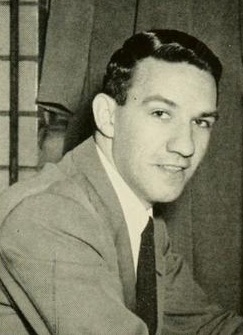
Frederick Appleton Schaus was an American basketball player, head coach and athletic director for the West Virginia University Mountaineers, player for the National Basketball Association's Fort Wayne Pistons and New York Knicks, general manager and head coach for the Los Angeles Lakers, head coach of Purdue University basketball, and a member of the NCAA Basketball Committee. He was born in Newark, Ohio.
Ebrahim Amini, Iranian politician (d. 2020) births

Ayatollah Ebrahim Amini was an Iranian conservative politician who was a member of the Assembly of Experts. He was also a member of the Expediency Discernment Council, and was previously identified as a possible candidate to become the next Iranian Supreme Leader. Ayatollah Amini was a jurist and a moderate supporter of jurisprudential Islam. He was a member of the Council for the Revision of the Second Constitution in 1989 and was a supporter of the maximum ruling term of a Supreme Leader being ten years.
Max Trepp, Swiss sprinter (d. 1990) births
Max Trepp was a Swiss sprinter. He competed in the men's 400 metres at the 1948 Summer Olympics.
Andy Jack, English footballer births
Andrew Mackintosh Jack is a Scottish former footballer who played as a centre forward in the Football League for Tranmere Rovers.
Washington SyCip, American-Filipino accountant (d. 2017) births
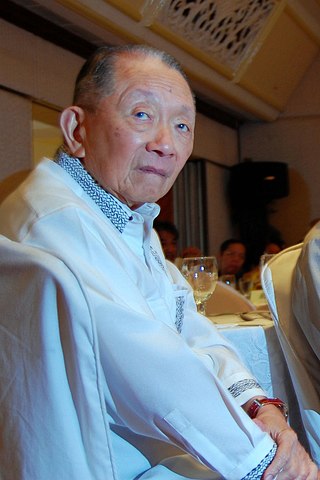
Washington Z. SyCip, PLH BOLk RNO1kl was a Chinese-Filipino-American accountant. He was the founder of the accounting firm EY SGV & Company and the Asian Institute of Management.
Eleanor Ross Taylor, American poet and educator (d. 2011) births

Eleanor Ross Taylor was an American poet who published six collections of verse from 1960 to 2009. Her work received little recognition until 1998, but thereafter received several major poetry prizes. Describing her most recent poetry collection, Kevin Prufer writes, "I cannot imagine the serious reader — poet or not — who could leave Captive Voices unmoved by the work of this supremely gifted poet who skips so nimbly around our sadnesses and fears, never directly addressing them, suggesting, instead, their complex resistance to summary."
Ed Yost, American inventor of the modern hot air balloon (d. 2007) births
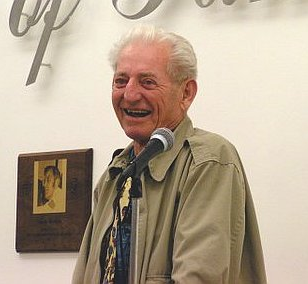
Paul Edward Yost was the American inventor of the modern hot air balloon and is referred to as the "Father of the Modern Day Hot-Air Balloon." He worked for a high-altitude research division of General Mills in the early 1950s until he left to establish Raven Industries in 1956, along with several colleagues from General Mills.

A hot air balloon is a lighter-than-air aircraft consisting of a bag, called an envelope, which contains heated air. Suspended beneath is a gondola or wicker basket, which carries passengers and a source of heat, in most cases an open flame caused by burning liquid propane. The heated air inside the envelope makes it buoyant, since it has a lower density than the colder air outside the envelope. As with all aircraft, hot air balloons cannot fly beyond the atmosphere. The envelope does not have to be sealed at the bottom, since the air inside the envelope is at about the same pressure as the surrounding air. In modern sport balloons the envelope is generally made from nylon fabric, and the inlet of the balloon is made from a fire-resistant material such as Nomex. Modern balloons have been made in many shapes, such as rocket ships and the shapes of various commercial products, though the traditional shape is used for most non-commercial and many commercial applications.
John William Strutt, 3rd Baron Rayleigh, English physicist and academic, Nobel Prize laureate (b. 1842) deaths

John William Strutt, 3rd Baron Rayleigh, was an English mathematician and physicist who made extensive contributions to science. He spent all of his academic career at the University of Cambridge. Among many honors, he received the 1904 Nobel Prize in Physics "for his investigations of the densities of the most important gases and for his discovery of argon in connection with these studies." He served as president of the Royal Society from 1905 to 1908 and as chancellor of the University of Cambridge from 1908 to 1919.

The Nobel Prize in Physics is a yearly award given by the Royal Swedish Academy of Sciences for those who have made the most outstanding contributions for humankind in the field of physics. It is one of the five Nobel Prizes established by the will of Alfred Nobel in 1895 and awarded since 1901, the others being the Nobel Prize in Chemistry, Nobel Prize in Literature, Nobel Peace Prize, and Nobel Prize in Physiology or Medicine. Physics is traditionally the first award presented in the Nobel Prize ceremony.
Susan Hayward, American actress (d. 1975) births
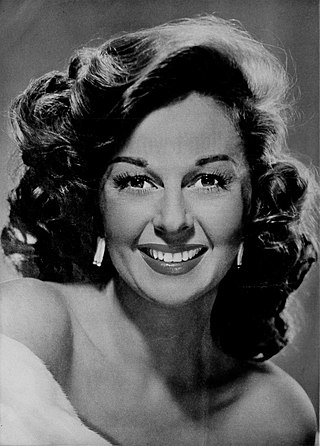
Susan Hayward was an American film actress, best known for her film portrayals of women that were based on true stories.
Lena Horne, American actress, singer, and activist (d. 2010) births

Lena Mary Calhoun Horne was an American dancer, actress, singer, and civil rights activist. Horne's career spanned more than seventy years, appearing in film, television, and theatre. Horne joined the chorus of the Cotton Club at the age of sixteen and became a nightclub performer before moving to Hollywood.
Willa Kim, American costume designer (d. 2016) births
Wullah Mei Ok Kim, known as Willa Kim, was an American costume designer for stage, dance, and film.
Antonio de La Gándara, French painter and illustrator (b. 1861) deaths

Antonio de La Gándara was a French painter, pastellist and draughtsman. La Gándara was born in Paris, France, but his father was of Spanish ancestry, born in San Luis Potosí, Mexico, and his mother was from England. La Gándara's talent was strongly influenced by both cultures. At only 15 years of age, La Gándara was admitted as a student of Jean-Léon Gérôme and Cabanel at the École des Beaux-Arts. Soon, he was recognized by the jury of the 1883 Salon des Champs-Élysées, who singled out the first work he ever exhibited: a portrait of Saint Sebastian.
Dadabhai Naoroji, Parsi intellectual, educator, cotton trader, and an early Indian political and social leader (b. 1825) deaths

Dadabhai Naoroji also known as the "Grand Old Man of India" and "Unofficial Ambassador of India", was an Indian political leader, merchant, scholar and writer who served as 2nd, 9th, and 22nd President of the Indian National Congress from 1886 to 1887, 1893 to 1894 & 1906 to 1907. He was a Liberal Party Member of Parliament in the British House of Commons, representing Finsbury Central between 1892 and 1895. He was the second person of Asian descent to be a British MP, the first being Anglo-Indian MP David Ochterlony Dyce Sombre, who was disenfranchised for corruption after nine months in office.
Eunice Eloisae Gibbs Allyn, American correspondent, author, and poet (b. 1847) deaths
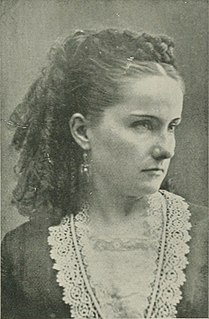
Eunice Gibbs Allyn was an American correspondent, author, songwriter, illustrator, and painter. She intended to become a teacher, but her mother dissuaded her so she remained at home, entering into society, and writing in a quiet way for the local papers while using various pen names in order to avoid displeasing one of her brothers, who did not wish to have a "bluestocking" in the family.
Francisco da Costa Gomes, Portuguese general and politician, 15th President of Portugal (d. 2001) births
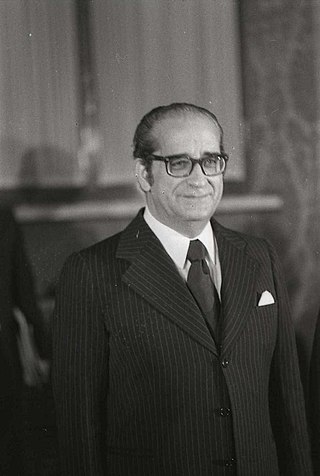
Francisco da Costa Gomes, ComTE, GOA was a Portuguese military officer and politician, the 15th president of Portugal.
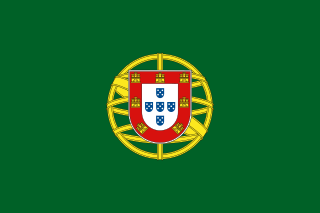
The president of Portugal, officially the president of the Portuguese Republic, is the head of state and highest office of Portugal.
Allan Houser, American sculptor and painter (d. 1994) births
Allan Capron Houser or Haozous was a Chiricahua Apache sculptor, painter and book illustrator born in Oklahoma. He was one of the most renowned Native American painters and Modernist sculptors of the 20th century.
Alfonso López Michelsen, Colombian lawyer and politician, 24th President of Colombia (d. 2007) births
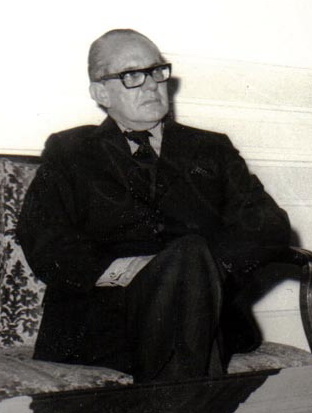
Alfonso López Michelsen was a Colombian politician and lawyer who served as the 24th President of Colombia from 1974 to 1978. He was nicknamed "El Pollo", a popular Colombian idiom for people with precocious careers.
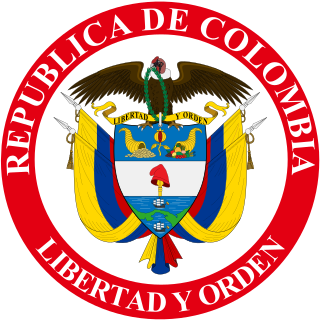
The president of Colombia, officially known as the president of the Republic of Colombia or president of the nation is the head of state and head of government of Colombia. The office of president was established upon the ratification of the Constitution of 1819, by the Congress of Angostura, convened in December 1819, when Colombia was the "Gran Colombia". The first president, General Simón Bolívar, took office in 1819. His position, initially self-proclaimed, was subsequently ratified by Congress.
Harry Wismer, American sportscaster (d. 1967) births

Harry Wismer was an American sports broadcaster and the charter owner of the New York Titans franchise in the American Football League (AFL).
Alphonse Kirchhoffer, French fencer (b. 1873) deaths

Simon Alphonse Kirchhoffer was a French fencer who competed in the late 19th century and early 20th century.
Ludwig Bölkow, German engineer (d. 2003) births

Ludwig Bölkow was one of the aeronautical pioneers of Germany.
Dan Reeves, American businessman and philanthropist (d. 1971) births

Daniel Farrell Reeves was an American sports entrepreneur, best known as the owner of the National Football League's Rams franchise from 1941 to his death in 1971.
María Luisa Dehesa Gómez Farías, Mexican architect (d. 2009) births
María Luisa Dehesa Gómez Farías was a Mexican architect who worked for close to 50 years in the Federal District of Mexico City, primarily designing single-family homes and apartment buildings. She was the first Mexican woman to graduate with a degree in architecture.
Czesław Miłosz, Polish novelist, essayist, and poet, Nobel Prize laureate (d. 2004) births

Czesław Miłosz was a Polish-American poet, prose writer, translator, and diplomat. Regarded as one of the great poets of the 20th century, he won the 1980 Nobel Prize in Literature. In its citation, the Swedish Academy called Miłosz a writer who "voices man's exposed condition in a world of severe conflicts".

The Nobel Prize in Literature is a Swedish literature prize that is awarded annually, since 1901, to an author from any country who has, in the words of the will of Swedish industrialist Alfred Nobel, "in the field of literature, produced the most outstanding work in an idealistic direction". Though individual works are sometimes cited as being particularly noteworthy, the award is based on an author's body of work as a whole. The Swedish Academy decides who, if anyone, will receive the prize. The academy announces the name of the laureate in early October. It is one of the five Nobel Prizes established by the will of Alfred Nobel in 1895. Literature is traditionally the final award presented at the Nobel Prize ceremony. On some occasions the award has been postponed to the following year, most recently in 2018 as of May 2022.
Nagarjun, Indian poet (d. 1998) births

Vaidyanath Mishra, better known by his pen name Nagarjun, was a Hindi and Maithili poet who has also penned a number of novels, short stories, literary biographies and travelogues, and was known as Janakavi- the People's Poet. He is regarded as the most prominent protagonist of modernity in Maithili.
Juan Bosch, 43rd President of the Dominican Republic (d. 2001) births
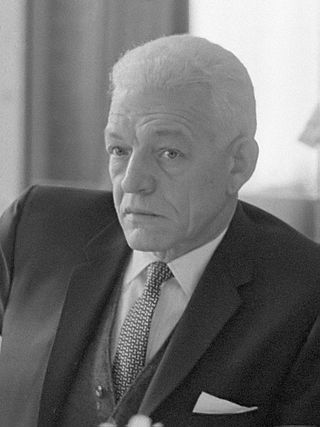
Juan Emilio Bosch Gaviño was a Dominican politician, historian, writer, essayist, educator, and the first democratically-elected president of the Dominican Republic for a brief time in 1963. Previously, he had been the leader of the Dominican opposition in exile to the dictatorial regime of Rafael Trujillo for over 25 years. To this day, he is remembered as an honest politician and regarded as one of the most prominent writers in Dominican literature. He founded both the Dominican Revolutionary Party (PRD) in 1939 and the Dominican Liberation Party (PLD) in 1973.
Winston Graham, English author (d. 2003) births
Winston Mawdsley Graham OBE, born Winston Grime, was an English novelist best known for the Poldark series of historical novels set in Cornwall, though he also wrote numerous other works, including contemporary thrillers, period novels, short stories, non-fiction and plays. Winston Graham was the author's pseudonym until he changed his name by deed poll from Grime to Graham on 7 May 1947.
Luigi Rovere, Italian film producer (d. 1996) births
Luigi Rovere was an Italian film producer.
Rob Nieuwenhuys, Dutch writer (d. 1999) births
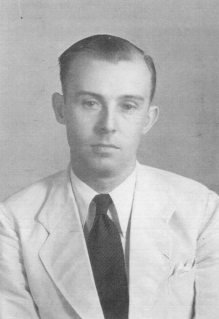
Robert Nieuwenhuys was a Dutch writer of Indo descent. The son of a 'Totok' Dutchman and an Indo-European mother, he and his younger brother Roelof, grew up in Batavia, where his father was the managing director of the renowned Hotel des Indes.
Thomas Hill, American painter (b. 1829) deaths
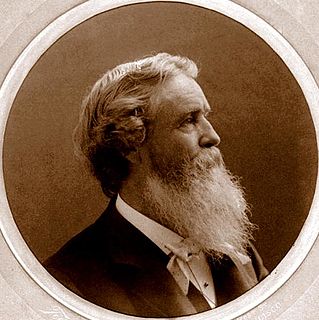
Thomas Hill was an English-born American artist of the 19th century. He produced many fine paintings of the California landscape, in particular of the Yosemite Valley, as well as the White Mountains of New Hampshire.
Roman Shukhevych, Ukrainian general and politician (d. 1950) births
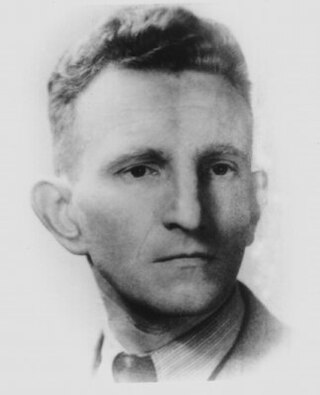
Roman-Taras Yosypovych Shukhevych, was a Ukrainian nationalist, one of the commanders of Nachtigall Battalion, a Hauptmann of the German Schutzmannschaft 201 auxiliary police battalion, a military leader of the Ukrainian Insurgent Army (UPA), and one of the perpetrators of the Galicia-Volhynia massacres of approximately 100,000 Poles.
Anthony Mann, American actor and director (d. 1967) births
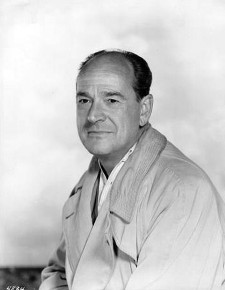
Anthony Mann was an American film director and stage actor.
John Van Ryn, American tennis player (d. 1999) births

John Van Ryn was an American tennis champion of the 1930s. He was primarily known as the doubles partner of Wilmer Allison.
Madge Bellamy, American actress (d. 1990) births

Madge Bellamy was an American stage and film actress. She was a popular leading lady in the 1920s and early 1930s. Her career declined in the sound era and ended following a romantic scandal in the 1940s.
Heinz Warneke, German-American sculptor and educator (d. 1983) births

Heinz Warneke was an American sculptor best remembered as an animalier; his role in the direct carving movement "assured him a place in the annals of 20th-century American sculpture". In 1935 Heinz received the Widener Gold Medal for his sculpture Wild Boars.
Nellah Massey Bailey, American politician and librarian (d. 1956) births
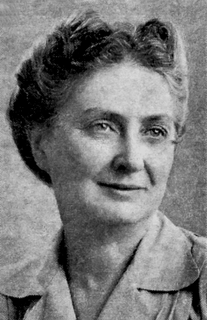
Nellah Izora Massey Bailey was an American politician and librarian. She was the first lady of Mississippi from 1944 to 1946 and the Mississippi state tax collector from 1948 to 1956. A member of the Democratic Party, she was the first woman elected to statewide office in Mississippi.
Walter Ulbricht, German soldier and politician (d. 1973) births

Walter Ernst Paul Ulbricht was a German communist politician. Ulbricht played a leading role in the creation of the Weimar-era Communist Party of Germany (KPD) and later in the early development and establishment of the German Democratic Republic. As the First Secretary of the Socialist Unity Party from 1950 to 1971, he was the chief decision-maker in East Germany. From President Wilhelm Pieck's death in 1960 on, he was also the East German head of state until his own death in 1973. As the leader of a significant Communist satellite, Ulbricht had a degree of bargaining power with the Kremlin that he used effectively. For example, he demanded the building of the Berlin Wall in 1961 when the Kremlin was reluctant.
Pierre Blanchar, Algerian-French actor and director (d. 1963) births

Pierre Blanchar was a French actor. He appeared in more than 50 films between 1922 and 1961. Blanchar was married to actress Marthe Vinot, with whom he had a daughter, actress Dominique Blanchar. He played Napoleon in the 1938 British film A Royal Divorce alongside Ruth Chatterton as Josephine. He later appeared alongside Michèle Morgan in the 1946 film Pastoral Symphony.
Man Mountain Dean, American wrestler and sergeant (d. 1953) births

Frank Simmons Leavitt was an American professional wrestler of the early 1900s, known by the ring name Man Mountain Dean.
Ed Lewis, American wrestler and manager (d. 1966) births

Robert Herman Julius Friedrich, better known by the ring name Ed "Strangler" Lewis, was an American professional wrestler and trainer. During his wrestling career, which spanned four decades, Lewis was a four-time World Heavyweight Wrestling Champion and overall recognised officially as a five-time world champion. Considered to be one of the most iconic and recognizable sports stars of the 1920s, often alongside boxer Jack Dempsey and baseball player Babe Ruth, Lewis notably wrestled in over 6,000 matches and lost only 32 of them.
Stanley Spencer, English painter (d. 1959) births

Sir Stanley Spencer, CBE RA was an English painter. Shortly after leaving the Slade School of Art, Spencer became well known for his paintings depicting Biblical scenes occurring as if in Cookham, the small village beside the River Thames where he was born and spent much of his life. Spencer referred to Cookham as "a village in Heaven" and in his biblical scenes, fellow-villagers are shown as their Gospel counterparts. Spencer was skilled at organising multi-figure compositions such as in his large paintings for the Sandham Memorial Chapel and the Shipbuilding on the Clyde series, the former being a First World War memorial while the latter was a commission for the War Artists' Advisory Committee during the Second World War.
Paul Boffa, Maltese physician and politician, 5th Prime Minister of Malta (d. 1962) births

Sir Paul Boffa, OBE was a Maltese prime minister (1947–1950) who took office after self-rule was reinstated by the British colonial authority following the end of World War II.

The prime minister of Malta is the head of government, which is the highest official of Malta. The Prime Minister chairs Cabinet meetings, and selects its ministers to serve in their respective portfolios. The Prime Minister holds office by virtue of their ability to command the confidence of the Parliament, as such they sit as Members of Parliament.
Samuel Parkman Tuckerman, American organist and composer (b. 1819) deaths
Samuel Parkman Tuckerman was an American composer.
Archibald Frazer-Nash, English motor car designer, engineer and founder of Frazer Nash (d. 1965) births
Archibald Goodman Frazer Nash, was an early English motor car designer, engineer, and inventor who specialised in manufacturer of light "cycle cars" and sports cars in England.

Frazer Nash was a brand of British sports car manufactured from 1922 first by Frazer Nash Limited founded by engineer Archibald Frazer-Nash. On its financial collapse in 1927 a new company, AFN Limited, was incorporated. Control of AFN passed to Harold John Aldington in 1929.
Georges Duhamel, French author and critic (d. 1966) births

Georges Duhamel was a French author, born in Paris. Duhamel trained as a doctor, and during World War I was attached to the French Army. In 1920, he published Confession de minuit, the first of a series featuring the anti-hero Salavin. In 1935, he was elected as a member of the Académie française. He was nominated for the Nobel Prize in Literature twenty-seven times. He was also the father of the musicologist and composer Antoine Duhamel.
Charles J. Guiteau, American preacher and lawyer, assassin of James A. Garfield (b. 1841) deaths

Charles Julius Guiteau was an American man who assassinated James A. Garfield, president of the United States, on July 2, 1881. Guiteau falsely believed he had played a major role in Garfield's election victory, for which he should have been rewarded with a consulship. He was so offended by the Garfield administration's rejections of his applications to serve in Vienna or Paris that he decided to kill Garfield, and shot him at the Baltimore and Potomac Railroad Station in Washington, D.C. Garfield died two months later from infections related to the wounds. In January 1882, Guiteau was sentenced to death for the crime, and was hanged five months later.

James Abram Garfield was the 20th president of the United States, serving from March 4, 1881, until his death six months later—two months after he was shot by an assassin. A lawyer and Civil War general, he served nine terms in the United States House of Representatives and was the only sitting member of the House to be elected president. Before his candidacy for the White House, he had been elected to the U.S. Senate by the Ohio General Assembly—a position he declined when he became president-elect.
Alberto Henschel, German-Brazilian photographer and businessman (b. 1827) deaths

Alberto Henschel was a German-Brazilian photographer born in Berlin. Considered the hardest-working photographer and businessman in 19th-century Brazil, with offices in Pernambuco, Bahia, Rio de Janeiro, and São Paulo, Henschel was also responsible for the presence of other professional photographers in the country, including his compatriot Karl Ernst Papf—with whom he later worked.
Frederick Bligh Bond, English architect and archaeologist (d. 1945) births

Frederick Bligh Bond, generally known by his second given name Bligh, was an English architect, illustrator, archaeologist and psychical researcher.
Alcide d'Orbigny, French zoologist and paleontologist (b. 1802) deaths

Alcide Charles Victor Marie Dessalines d'Orbigny was a French naturalist who made major contributions in many areas, including zoology, palaeontology, geology, archaeology and anthropology.
Ernest Mason Satow, English orientalist and diplomat (d. 1929) births
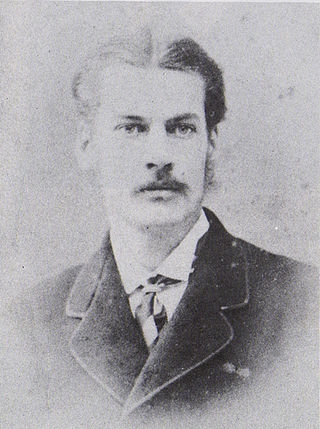
Sir Ernest Mason Satow,, was a British scholar, diplomat and Japanologist.
Joseph Dalton Hooker, English botanist and explorer (d. 1911) births
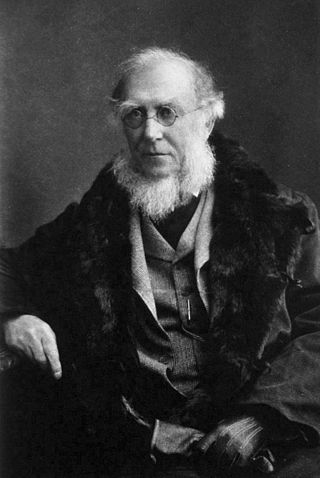
Sir Joseph Dalton Hooker was a British botanist and explorer in the 19th century. He was a founder of geographical botany and Charles Darwin's closest friend. For twenty years he served as director of the Royal Botanical Gardens, Kew, succeeding his father, William Jackson Hooker, and was awarded the highest honours of British science.
Friedrich Theodor Vischer, German author, poet, and playwright (d.1887) births

Friedrich Theodor Vischer was a German novelist, poet, playwright, and writer on the philosophy of art. Today, he is mainly remembered as the author of the novel Auch Einer, in which he developed the concept of Die Tücke des Objekts, a comic theory that inanimate objects conspire against humans.
Thomas Lovell Beddoes, English poet, playwright, and physician (d. 1849) births

Thomas Lovell Beddoes was an English poet, dramatist and physician.
Abraham Yates Jr., American lawyer and politician (b. 1724) deaths

Abraham Yates Jr. was an American lawyer, civil servant, and pamphleteer from Albany, New York.
Félix Savart, French physicist and psychologist (d. 1841) births

Félix Savart was a French physicist and mathematician who is primarily known for the Biot–Savart law of electromagnetism, which he discovered together with his colleague Jean-Baptiste Biot. His main interest was in acoustics and the study of vibrating bodies. A particular interest in the violin led him to create an experimental trapezoidal model. He gave his name to the savart, a unit of measurement for musical intervals, and to Savart's wheel—a device he used while investigating the range of human hearing.
Horace Vernet, French painter and academic (d. 1863) births

Émile Jean-Horace Vernet, more commonly known as simply Horace Vernet, was a French painter of battles, portraits, and Orientalist subjects.
James Oglethorpe, English general and politician, 1st Colonial Governor of Georgia (b. 1696) deaths

James Edward Oglethorpe was a British soldier, Member of Parliament, and philanthropist, as well as the founder of the colony of Georgia in what was then British America. As a social reformer, he hoped to resettle Britain's "worthy poor" in the New World, initially focusing on those in debtors' prisons.
This is of the governors of the Province of Georgia from 1732 until 1782, including the restored Loyalist administration during the War of American Independence.
Paul Barras, French soldier and politician (d. 1829) births

Paul François Jean Nicolas, vicomte de Barras, commonly known as Paul Barras, was a French politician of the French Revolution, and the main executive leader of the Directory regime of 1795–1799.
Jiří Antonín Benda, Czech composer, violinist and Kapellmeister (d. 1795) births

Georg Anton Benda was a composer, violinist and Kapellmeister of the classical period from the Kingdom of Bohemia.
Edward Lhuyd, Welsh botanist, linguist, and geographer (b. 1660) deaths

Edward Lhuyd FRS was a Welsh naturalist, botanist, linguist, geographer and antiquary. He is also named in a Latinate form as Eduardus Luidius.
Tekle Haymanot I of Ethiopia (b. 1684) deaths
Tekle Haymanot I, throne name Le`al Sagad was Emperor of Ethiopia from 27 March 1706 until his death in 1708, and a member of the Solomonic dynasty. He was the son of Iyasu I and Empress Malakotawit. He is often referred to as "Irgum Tekle Haymanot" or "Tekle Haymanot the Cursed".
John Quelch, English pirate (b. 1665) deaths

John Quelch was an English pirate who had a lucrative but very brief career of about one year. His chief claim to historical significance is that he was the first person to be tried for piracy outside England under Admiralty Law and thus without a jury. These Admiralty courts had been instituted to tackle the rise of piracy in colonial ports where civil and criminal courts had proved ineffective.
Abu l-Hasan Ali I, ruler of Tunisia (d. 1756) births

Abu l-Hasan Ali I, also known as Ali Pasha and Ali Bey I,) was the second leader of the Husainid Dynasty and the ruler of Tunisia from 1735 to 1756.
John Gay, English poet and playwright (d. 1732) births

John Gay was an English poet and dramatist and member of the Scriblerus Club. He is best remembered for The Beggar's Opera (1728), a ballad opera. The characters, including Captain Macheath and Polly Peachum, became household names.
Henrietta of England (b. 1644) deaths

Henrietta Anne of England was the youngest daughter of King Charles I of England and Queen Henrietta Maria.
Alexander Brome, English poet and playwright (b. 1620) deaths
Alexander Brome was an English poet.
William Oughtred, English minister and mathematician (b. 1575) deaths

William Oughtred, also Owtred, Uhtred, etc., was an English mathematician and Anglican clergyman. After John Napier invented logarithms and Edmund Gunter created the logarithmic scales upon which slide rules are based, Oughtred was the first to use two such scales sliding by one another to perform direct multiplication and division. He is credited with inventing the slide rule in about 1622. He also introduced the "×" symbol for multiplication and the abbreviations "sin" and "cos" for the sine and cosine functions.
Simon Vouet, French painter (b. 1590) deaths

Simon Vouet was a French painter who studied and rose to prominence in Italy before being summoned by Louis XIII to serve as Premier peintre du Roi in France. He and his studio of artists created religious and mythological paintings, portraits, frescoes, tapestries, and massive decorative schemes for the king and for wealthy patrons, including Richelieu. During this time, "Vouet was indisputably the leading artist in Paris," and was immensely influential in introducing the Italian Baroque style of painting to France. He was also "without doubt one of the outstanding seventeenth-century draughtsmen, equal to Annibale Carracci and Lanfranco."
Meinhardt Schomberg, 3rd Duke of Schomberg, German-English general (d. 1719) births

Meinhardt Schomberg, 3rd Duke of Schomberg, Duke of Leinster, KG, was a general in the service of Willem, Prince of Orange and Stadtholder of Holland, later King William III of England. He fought in the Franco-Dutch War, then played a crucial role at the Battle of the Boyne in July 1690 during the Williamite War in Ireland and finally commanded the British troops deployed to Portugal during the War of the Spanish Succession.
Caesar Baronius, Italian cardinal and historian (b. 1538) deaths

Cesare Baronio was an Italian cardinal and historian of the Catholic Church. His best-known works are his Annales Ecclesiastici, which appeared in 12 folio volumes (1588–1607). Pope Benedict XIV conferred upon him the title of Venerable.
Giovanni Maria Sabino, Italian organist, composer, and educator (d. 1649) births
Giovanni Maria Sabino was an Italian composer, organist and teacher.
Charles II, Duke of Guelders (b. 1467) deaths
Charles II was a member of the House of Egmond who ruled as Duke of Guelders and Count of Zutphen from 1492 until his death. He was the son of Adolf of Egmond and Catharine of Bourbon. He had a principal role in the Frisian peasant rebellion and the Guelders Wars.
Martín de Rada, Spanish missionary (d. 1578) births

Martín de Rada was one of the first members of the Order of Saint Augustine (OSA) to evangelize the Philippines, as well as one of the first Christian missionaries to visit Ming China.
Johann Reuchlin, German humanist and Hebrew scholar (b. 1455) deaths

Johann Reuchlin was a German Catholic humanist and a scholar of Greek and Hebrew, whose work also took him to modern-day Austria, Switzerland, and Italy and France. Most of Reuchlin's career centered on advancing German knowledge of Greek and Hebrew.
John Frederick I, Elector of Saxony (d. 1554) births

John Frederick I, called the Magnanimous, was the Elector of Saxony (1532–1547) and head of the Schmalkaldic League.
John, Prince of Asturias, Son of Ferdinand II of Aragon and Isabella I of Castile (d. 1497) births

John, Prince of Asturias and Girona, was the only son of King Ferdinand II of Aragon and Queen Isabella I of Castile, and heir-apparent to both their thrones for nearly his entire life.

Ferdinand II, also called Ferdinand the Catholic, was King of Aragon and Sardinia from 1479, King of Sicily from 1468, King of Naples from 1504 and King of Navarre from 1512 until his death in 1516. He was also the nominal Duke of the ancient Duchies of Athens and Neopatria. He was King of Castile and León from 1475 to 1504, alongside his wife Queen Isabella I. From 1506 to 1516, he was the Regent of the Crown of Castile, making him the effective ruler of Castile. From 1511 to 1516, he styled himself as Imperator totius Africa after having conquered Tlemcen and making the Zayyanid Sultan, Abu Abdallah V, his vassal. He was also the Grandmaster of the Spanish Military Orders of Santiago (1499-1516), Calatrava (1487-1516), Alcantara (1492-1516) and Montesa (1499-1516), after he permanently annexed them into the Spanish Crown. He reigned jointly with Isabella over a dynastically unified Spain; together they are known as the Catholic Monarchs. Ferdinand is considered the de facto first King of Spain, and was described as such during his reign.

Isabella I, also called Isabella the Catholic, was Queen of Castile from 1474 until her death in 1504, as well as Queen consort of Aragon from 1479 until 1504 by virtue of her marriage to King Ferdinand II of Aragon. Reigning together over a dynastically unified Spain, Isabella and Ferdinand are known as the Catholic Monarchs.
Charles VIII of France (d. 1498) births

Charles VIII, called the Affable, was King of France from 1483 to his death in 1498. He succeeded his father Louis XI at the age of 13. His elder sister Anne acted as regent jointly with her husband Peter II, Duke of Bourbon until 1491 when the young king turned 21 years of age. During Anne's regency, the great lords rebelled against royal centralisation efforts in a conflict known as the Mad War (1485–1488), which resulted in a victory for the royal government.
John, Elector of Saxony (d. 1532) births

Johann, known as Johann the Steadfast or Johann the Constant, was Elector of Saxony from 1525 until 1532 from the House of Wettin.
Arnošt of Pardubice, Czech archbishop (b. 1297) deaths
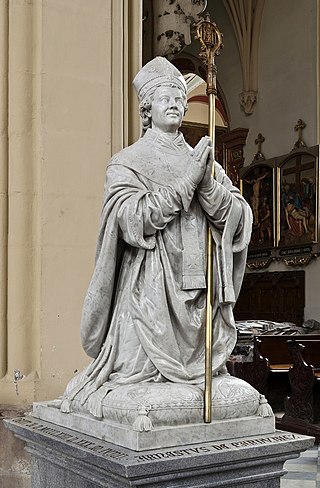
Arnošt of Pardubice was the first Archbishop of Prague. He was also an advisor and diplomat to Emperor Charles IV.
Eleanor de Clare, English noblewoman (b. 1290) deaths

Eleanor de Clare, suo jure 6th Lady of Glamorgan was a Anglo-Welsh noblewoman who married Hugh Despenser the Younger and was a granddaughter of Edward I of England. With her sisters, Elizabeth de Clare and Margaret de Clare, she inherited her father's estates after the death of her brother, Gilbert de Clare, 8th Earl of Gloucester, 7th Earl of Hereford at the Battle of Bannockburn in 1314. She was born in 1292 at Caerphilly Castle in Glamorgan, Wales and was the eldest daughter of Gilbert de Clare, 6th Earl of Hertford, 7th Earl of Gloucester, 5th Lord of Glamorgan and Princess Joan of Acre.
John de Warenne, 7th Earl of Surrey, English magnate (d. 1347) births

John de Warenne, 7th Earl of Surrey, was the last Warenne earl of Surrey.
Pierre de la Broce, French courtier deaths

Pierre de la Broce or de la Brosse was a royal favorite and councilor during the early reign of Philip III of France.
Adolf of Osnabrück, German monk and bishop (b. 1185) deaths

Adolf of Osnabrück, O.Cist, was born in Tecklenburg about 1185, a member of the family of the Counts of Tecklenburg in the Duchy of Westphalia. During his lifetime, he became known as the "Almoner of the Poor", and is honored as a saint by the Catholic Church.
Hugh de Kevelioc, 5th Earl of Chester, Welsh politician (b. 1147) deaths

Hugh of Cyfeiliog, 5th Earl of Chester, also written Hugh de Kevilioc, was an Anglo-French magnate who was active in England, Wales, Ireland and France during the reign of King Henry II of England.
Æthelred, archbishop of Canterbury deaths

Year 888 (DCCCLXXXVIII) was a leap year starting on Monday of the Julian calendar.

Æthelred was an Anglo-Saxon Archbishop of Canterbury in medieval England. Although one source states that he was Bishop of Wiltshire prior to his elevation to Canterbury, this has been shown to be false. Much of Æthelred's time in office was spent dealing with the dislocations caused by the invasion of England by Vikings. There were also conflicts with King Alfred the Great over ecclesiastical matters as well as the desire of the papacy to reform the English clergy.

The Diocese of Canterbury is a Church of England diocese covering eastern Kent which was founded by St. Augustine of Canterbury in 597. The diocese is centred on Canterbury Cathedral and is the oldest see of the Church of England.
Erentrude, Frankish abbess deaths
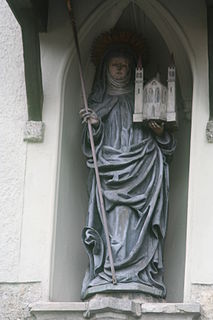
Erentrude, was a saint and abbess, born during the end of the 7th century, probably in present-day Germany or Austria. She was born into a Franconian-Merovingian royal house, and was the niece of Rupert of Salzburg. She left her home country to assist Rupert in establishing religious communities in Salzburg; in about 700, he built a convent, Nonnberg Abbey, and installed her as its first abbess. She and the nuns at Nonnberg served the poor, needy, and ill, striking a balance between living as cloistered nuns and engaging in charitable works. Erentrude died on 30 June 718. Her fame for healing miracles and intercession grew after her death, and many legends have arisen throughout the centuries since her death. In 2006, Erentrude's image appeared on the Austrian Nonnberg Abbey commemorative coin. Her feast day is celebrated on 30 June.
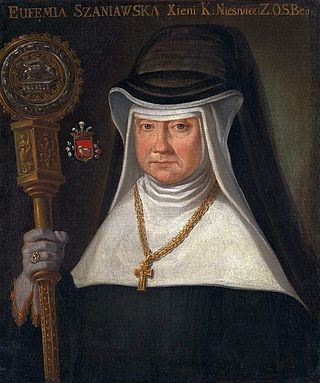
An abbess, also known as a mother superior, is the female superior of a community of Catholic nuns in an abbey.
Nepotianus, Roman ruler deaths

Julius Nepotianus, sometimes known in English as Nepotian, was a member of the Constantinian dynasty who reigned as a short-lived usurper of the Roman Empire. He ruled the city of Rome for twenty-eight days, before being killed by his rival usurper Magnentius' general Marcellinus.
Christian feast day: Martial

Saint Martial, called "the Apostle of the Gauls" or "the Apostle of Aquitaine", was the first bishop of Limoges. His feast day is 30 June.
Christian feast day: Theobald of Provins

Theobald of Provins, O.S.B. Cam. (1033–1066) was a French hermit and saint. He was born at Provins to the French nobility, his father being Arnoul, Count of Champagne. He was named after his uncle, Theobald of Vienne, also considered a saint.
Christian feast day: First Martyrs of the Church of Rome

The First Martyrs of the Church of Rome were Christians martyred in the city of Rome during Nero's persecution in 64. The event is recorded by both Tacitus and Pope Clement I, among others. They are celebrated in the Roman Catholic Church as an optional memorial on 30 June.
Christian feast day: June 30 (Eastern Orthodox liturgics)

June 29 - Eastern Orthodox Church calendar - July 1
Armed Forces Day (Guatemala)
This is a list of public holidays in Guatemala.
Asteroid Day (International observance)

Asteroid Day is an annual global event which is held on June 30, the anniversary of the Tunguska event in 1908 when a meteor air burst levelled about 2,150 km2 (830 sq mi) of forest in Siberia, Russia.
Lists of holidays by various categorizations.
General Prayer Day (Central African Republic)
This is a list of public holidays in the Central African Republic
Independence Day (Democratic Republic of the Congo), celebrates the independence of Democratic Republic of the Congo from Belgium in 1960.
This is a list of holidays in the Democratic Republic of the Congo

The Democratic Republic of the Congo, informally Congo-Kinshasa, DR Congo, the DRC, the DROC, or the Congo, and formerly and also colloquially Zaire, is a country in Central Africa. It is bordered to the northwest by the Republic of the Congo, to the north by the Central African Republic, to the northeast by South Sudan, to the east by Uganda, Rwanda, and Burundi, and by Tanzania, to the south and southeast by Zambia, to the southwest by Angola, and to the west by the South Atlantic Ocean and the Cabinda exclave of Angola. By area, it is the second-largest country in Africa and the 11th-largest in the world. With a population of around 108 million, the Democratic Republic of the Congo is the most populous officially Francophone country in the world. The national capital and largest city is Kinshasa, which is also the nation's economic center.
Navy Day (Israel)

In Israel, Navy Day is celebrated on June 30. At this time in 1948 the Port of Haifa was captured by Israel during the 1947–1949 Palestine war. Traditionally, Navy Day is preceded by Memorial Evening.
Philippine–Spanish Friendship Day (Philippines)
Philippine–Spanish Friendship Day celebrates the strong links between the Republic of the Philippines and the Kingdom of Spain every June 30. It commemorates the day when General Emilio Aguinaldo, president of the First Philippine Republic, issued a decree requiring the last Spanish soldiers who had been besieged for almost a year inside Baler's church be treated not as enemies and prisoners of war, but as friends. It also ordered that they receive the necessary permission for their return to Spain.

The Philippines, officially the Republic of the Philippines, is an archipelagic country in Southeast Asia. It is situated in the western Pacific Ocean and consists of around 7,641 islands that are broadly categorized under three main geographical divisions from north to south: Luzon, Visayas, and Mindanao. The Philippines is bounded by the South China Sea to the west, the Philippine Sea to the east, and the Celebes Sea to the southwest. It shares maritime borders with Taiwan to the north, Japan to the northeast, Palau to the east and southeast, Indonesia to the south, Malaysia to the southwest, Vietnam to the west, and China to the northwest. The Philippines covers an area of 300,000 km2 (120,000 sq mi) and, as of 2021, it had a population of around 109 million people, making it the world's thirteenth-most populous country. The Philippines has diverse ethnicities and cultures throughout its islands. Manila is the country's capital, while the largest city is Quezon City; both lie within the urban area of Metro Manila.
Revolution Day (Sudan)
The following public holidays are the same every year:January 1: Independence Day January 7: Coptic Christmas December 19: Revolution Day December 25: Christmas Day
Teachers' Day (Dominican Republic)
Teachers' Day is a special day for the appreciation of teachers, and may include celebrations to honor them for their special contributions in a particular field area, or the community tone in education. This is the primary reason why countries celebrate this day on different dates, unlike many other International Days. For example, Argentina has commemorated Domingo Faustino Sarmiento's death on 11 September as Teachers' Day since 1915. In India the birthday of the second president Sarvepalli Radhakrishnan, 5 September, is celebrated as Teachers' Day since 1962, while Guru Purnima has been traditionally observed as a day to worship teachers/gurus by Hindus. Many countries celebrate their Teachers' Day on 5 October in conjunction with World Teachers' Day, which was established by UNESCO in 1994.

The Dominican Republic is a country located on the island of Hispaniola in the Greater Antilles archipelago of the Caribbean region. It occupies the eastern five-eighths of the island, which it shares with Haiti, making Hispaniola one of only two Caribbean islands, along with Saint Martin, that is shared by two sovereign states. The Dominican Republic is the second-largest nation in the Antilles by area at 48,671 square kilometers (18,792 sq mi), and third-largest by population, with approximately 10.7 million people, down from 10.8 million in 2020, of whom approximately 3.3 million live in the metropolitan area of Santo Domingo, the capital city. The official language of the country is Spanish.